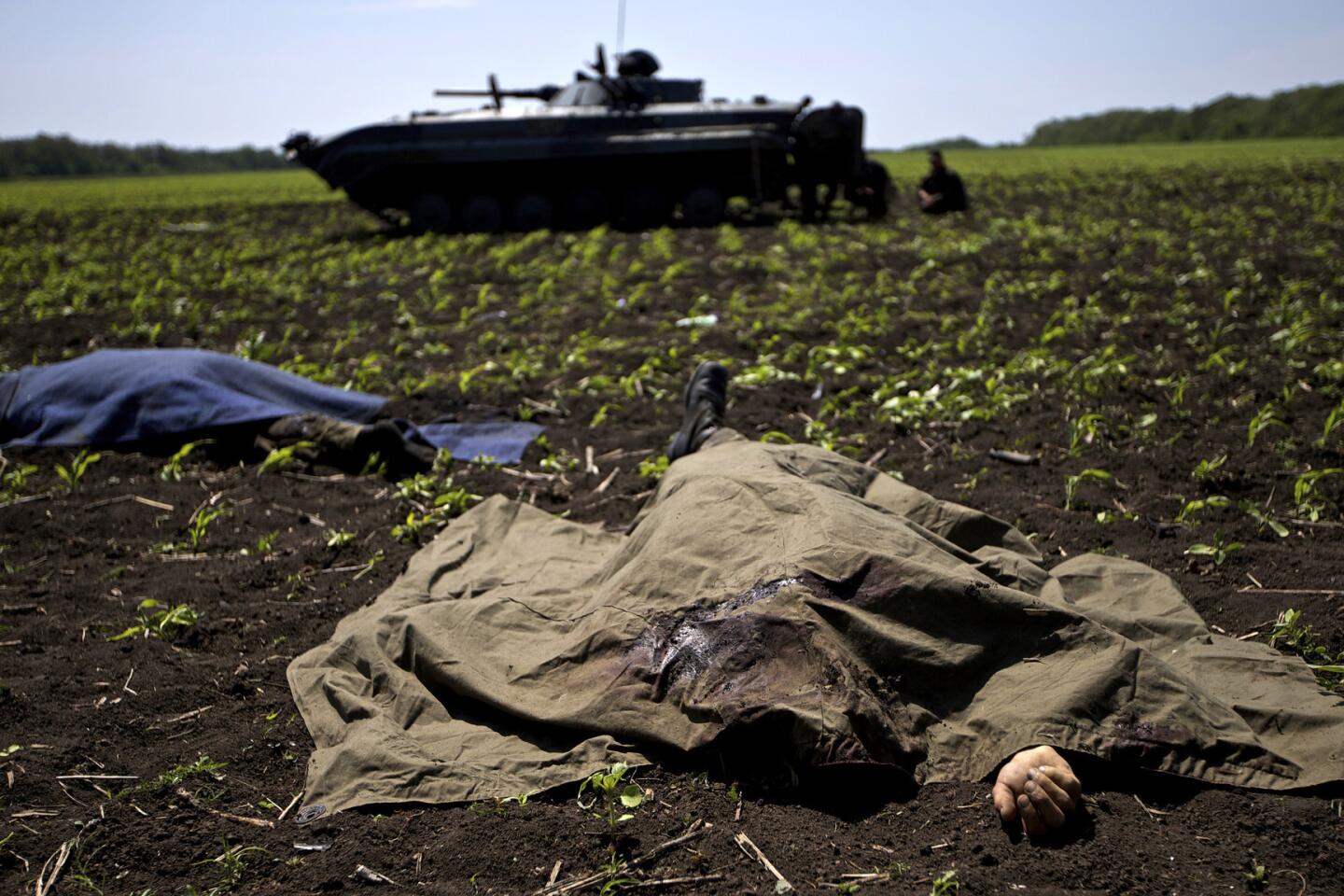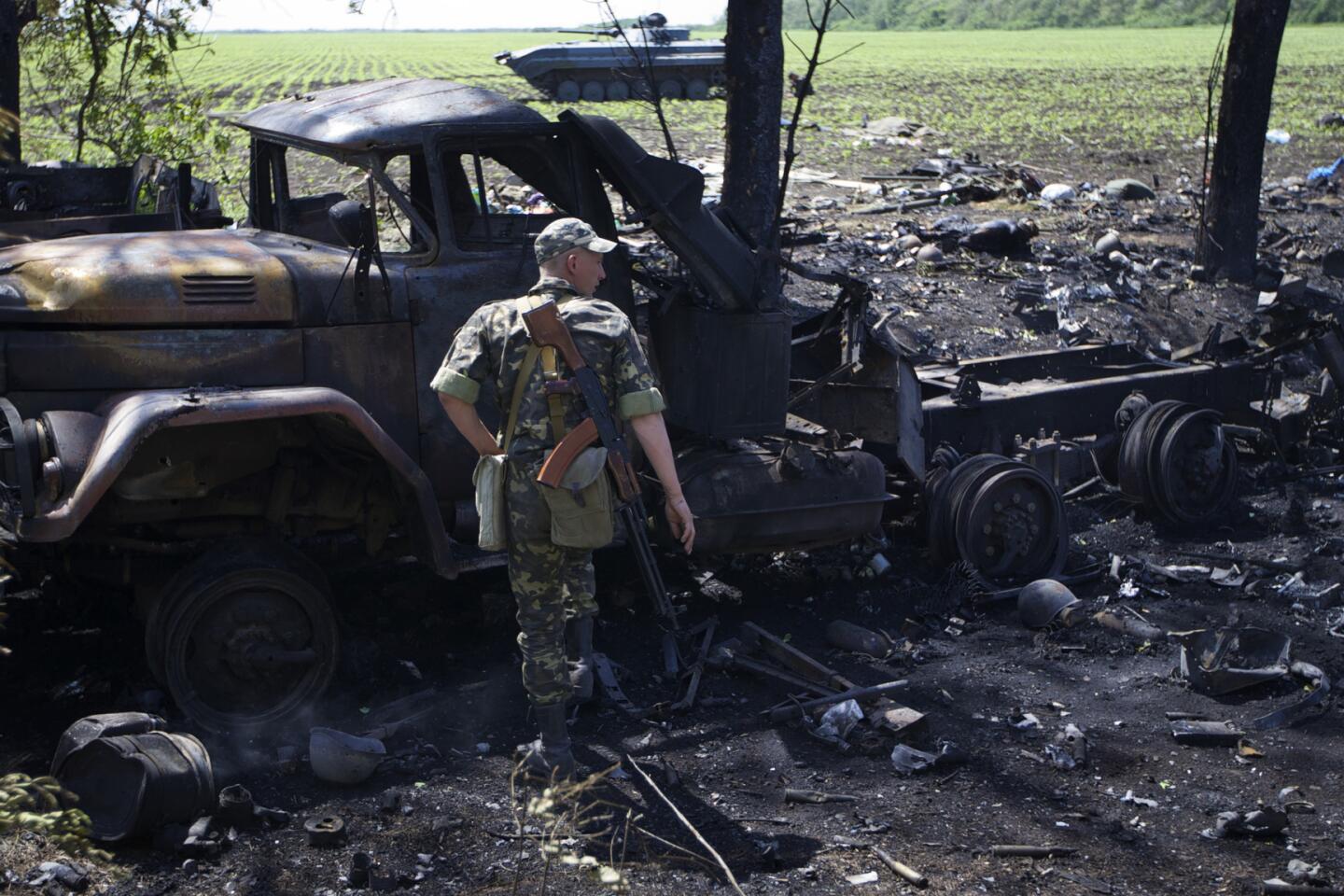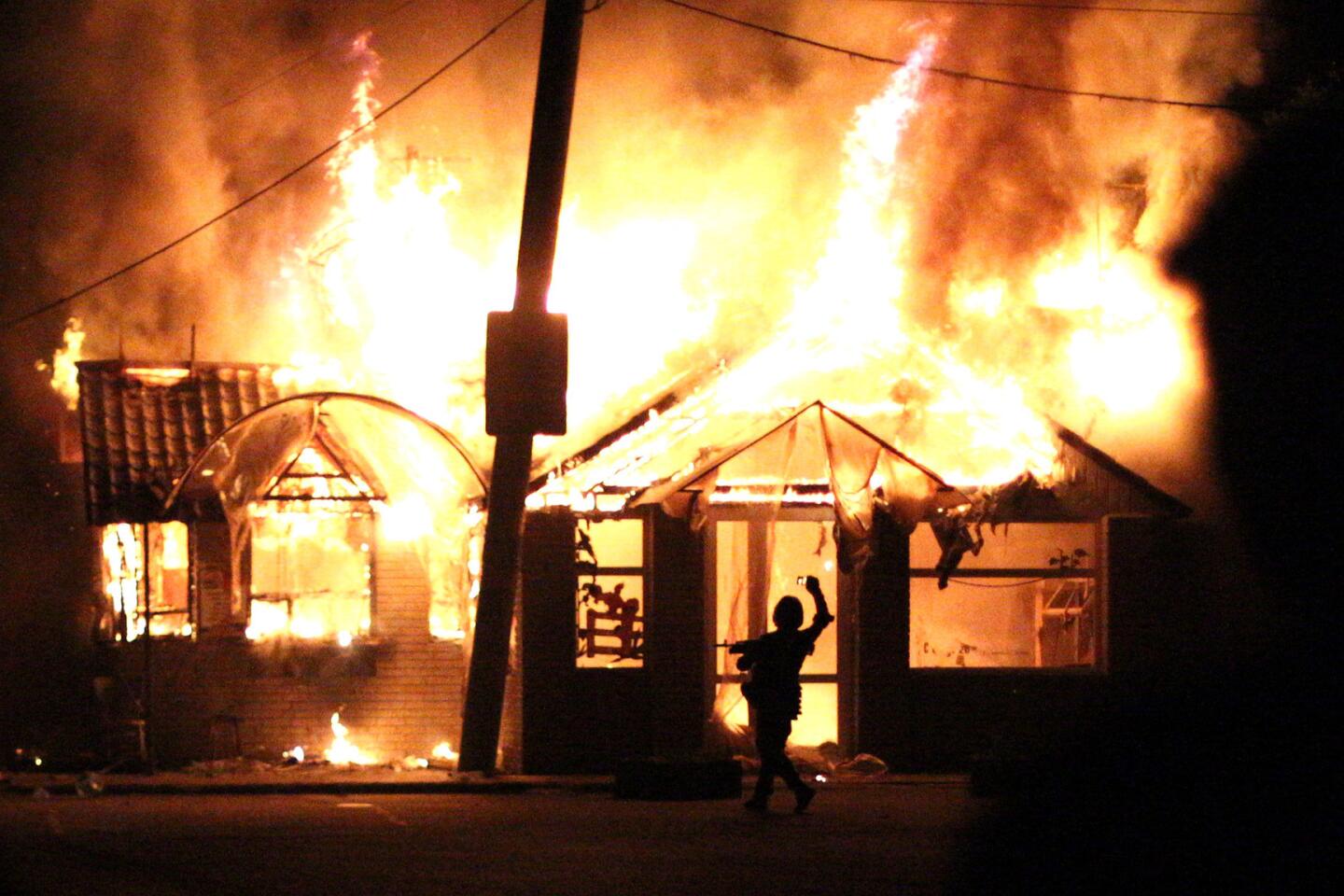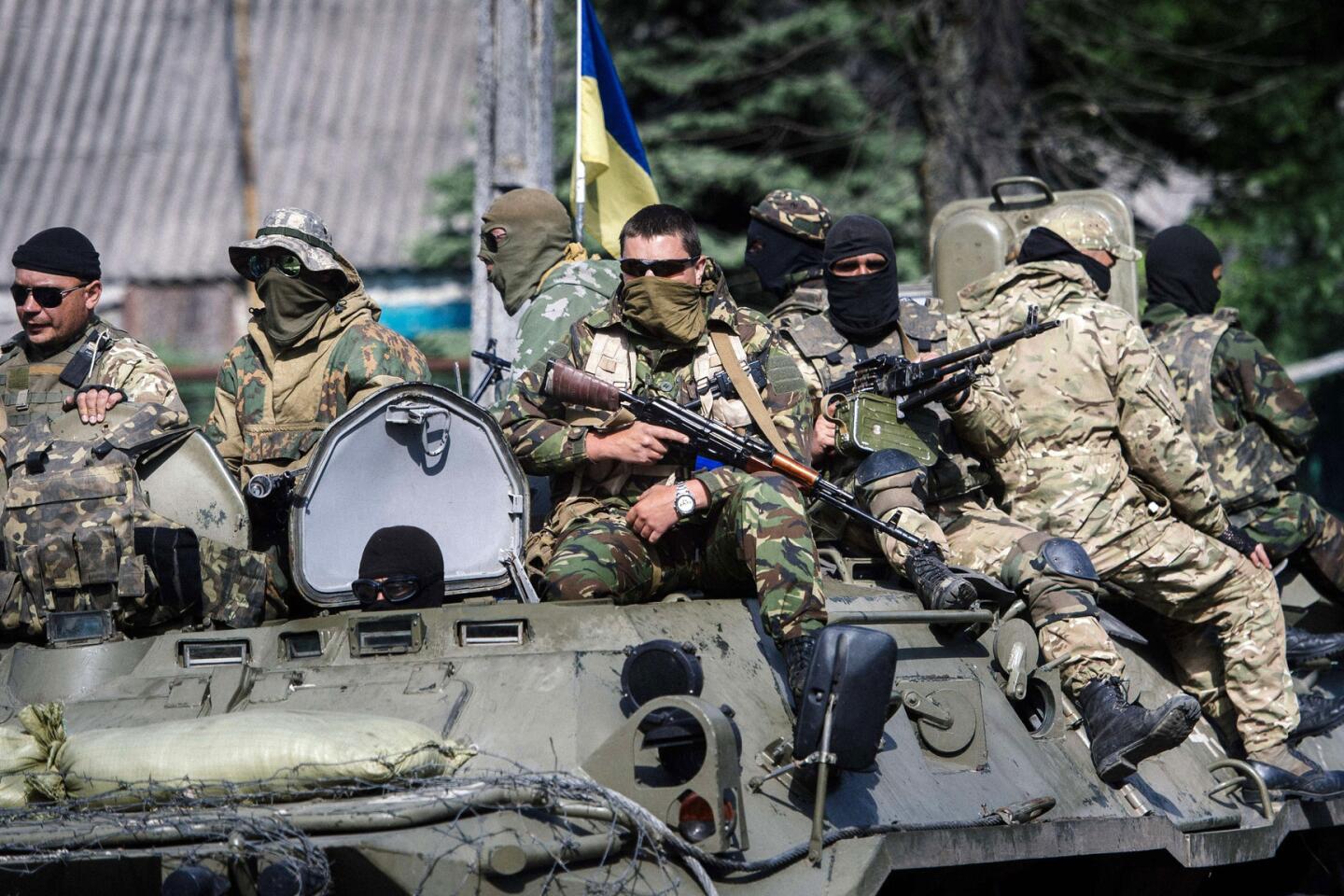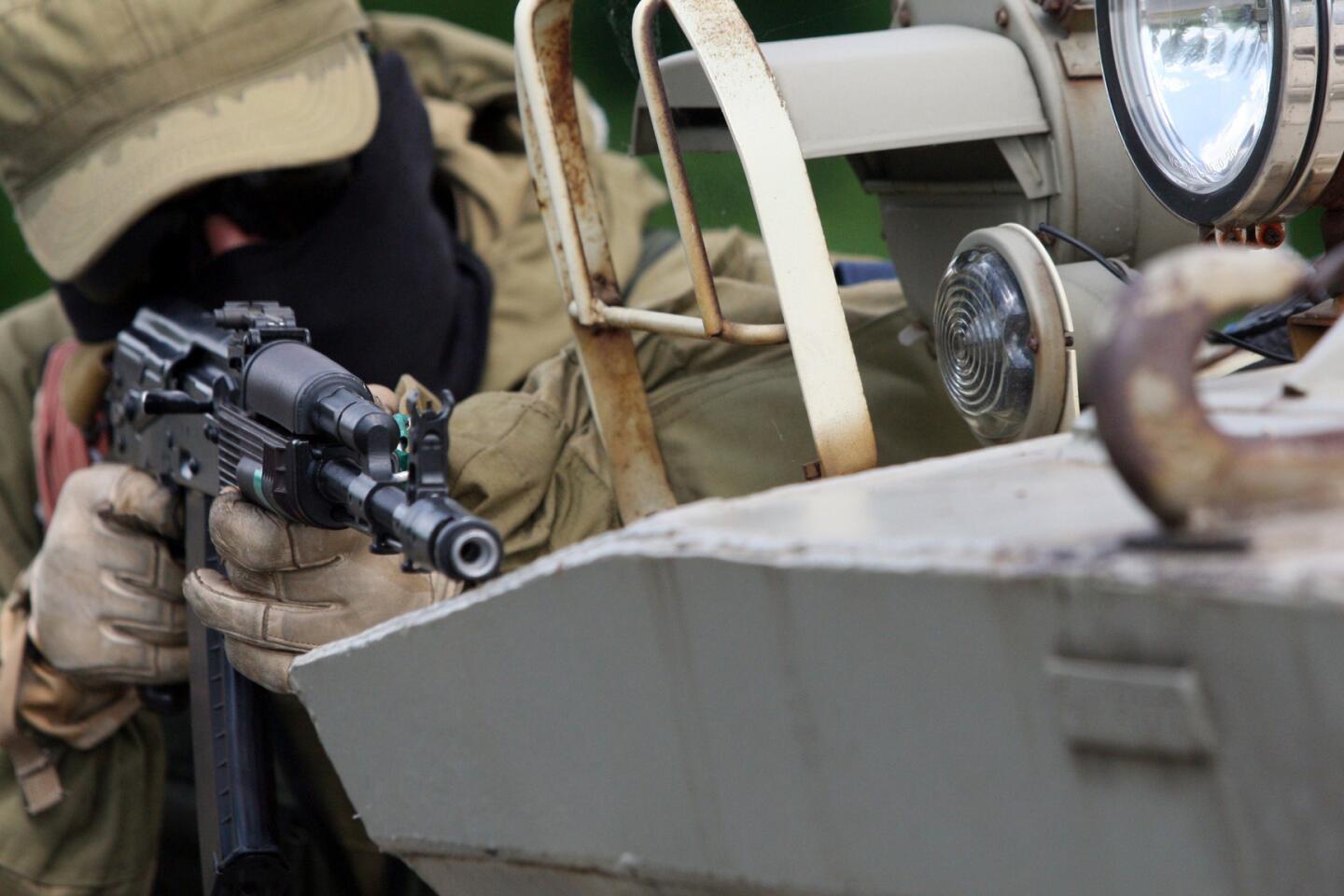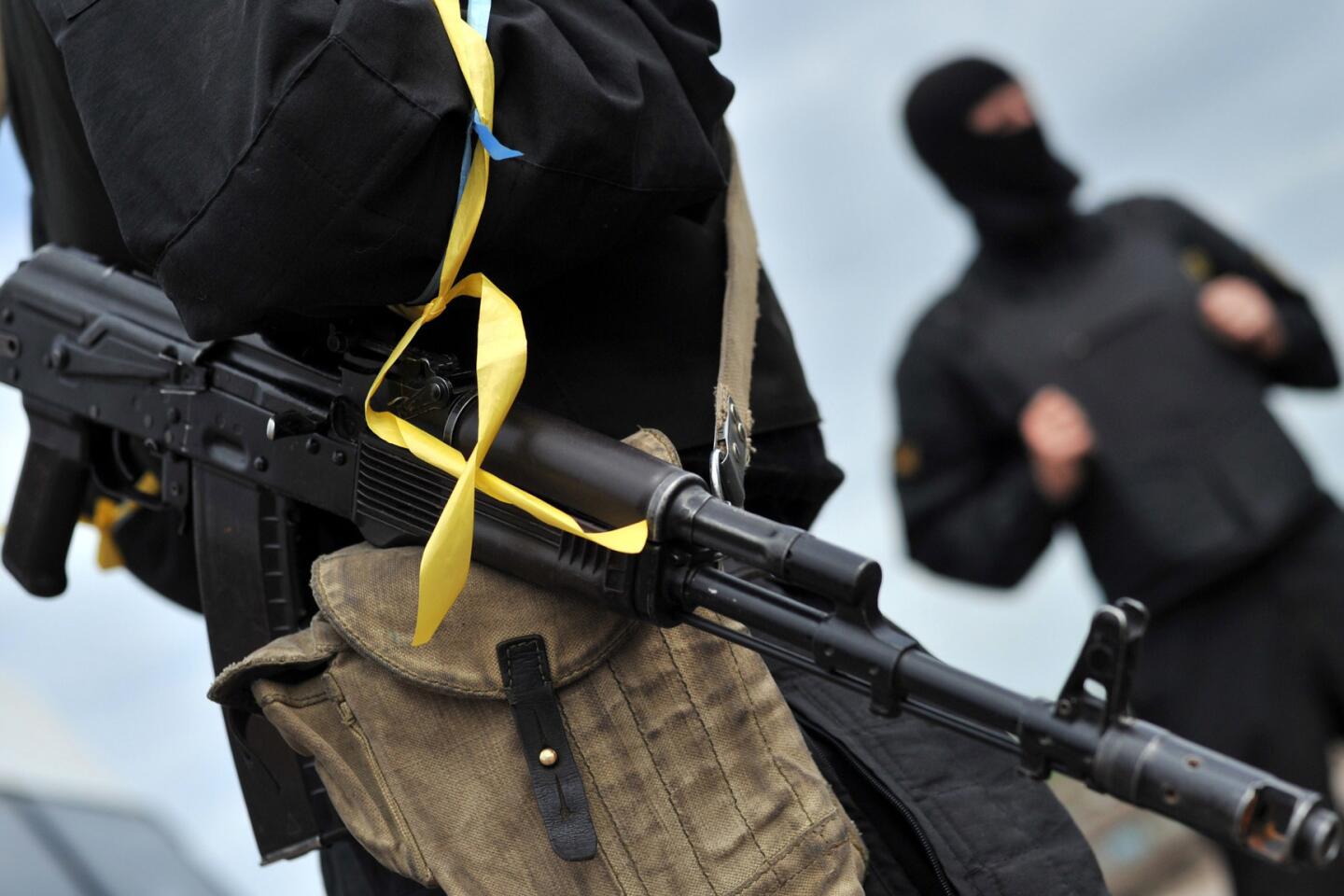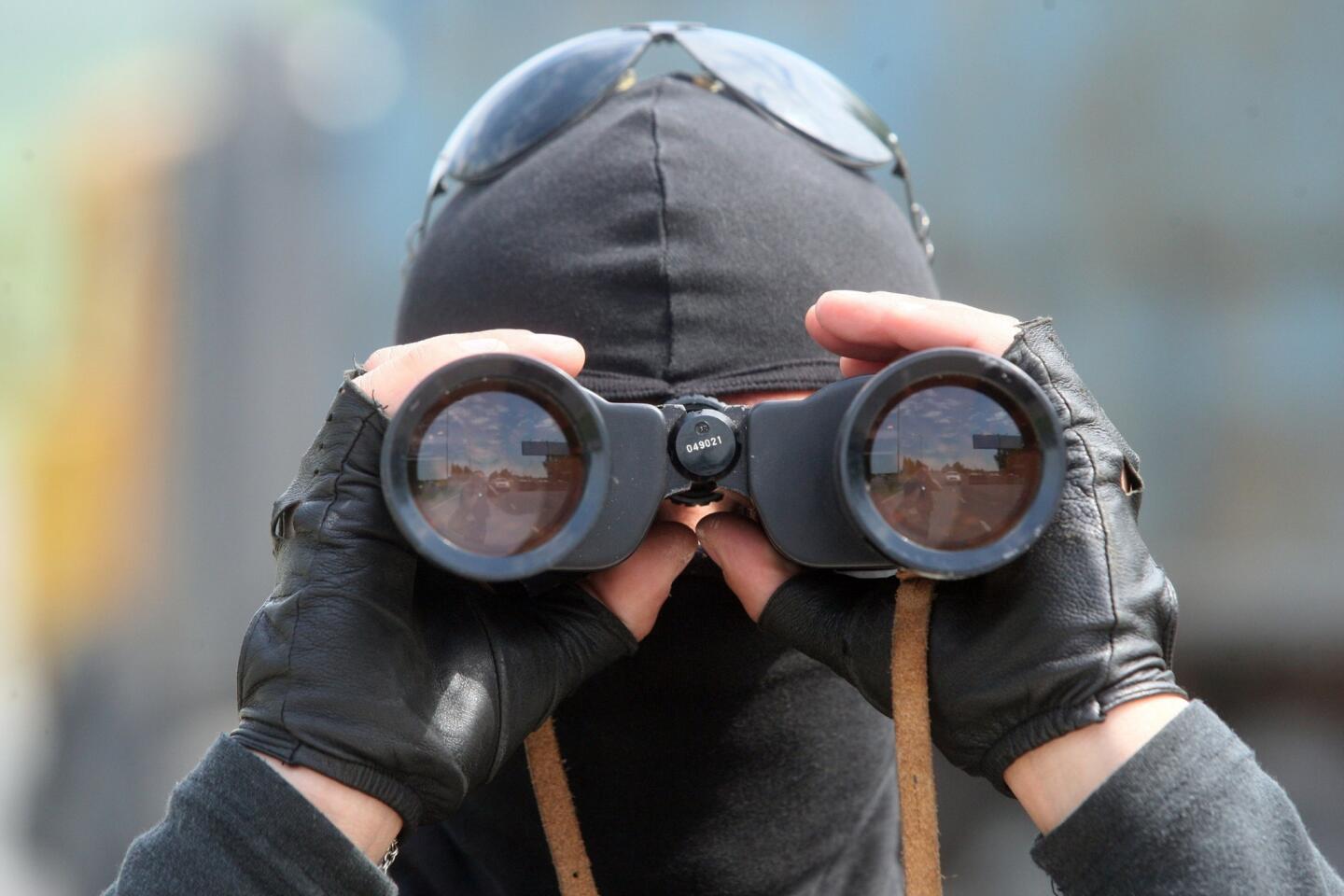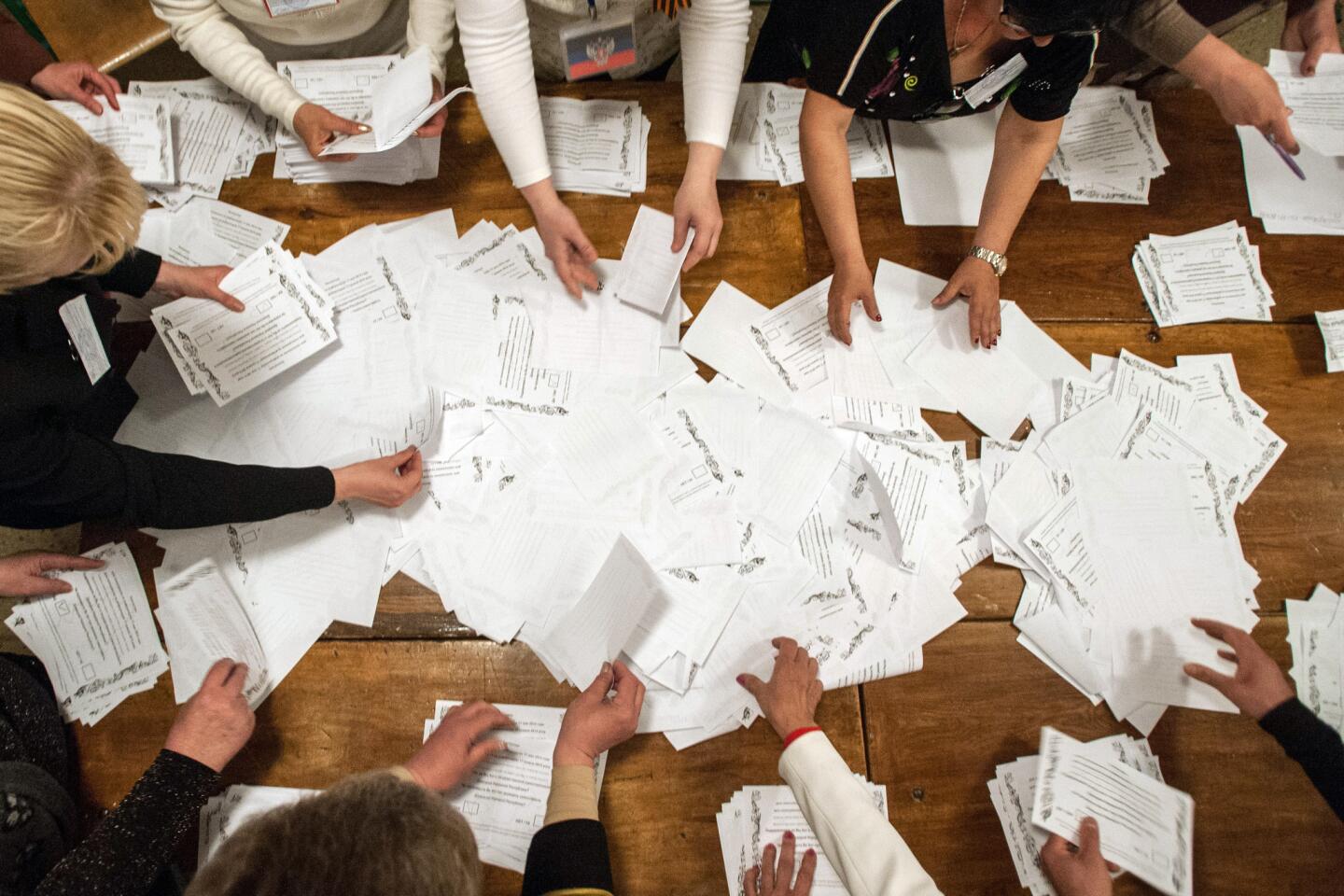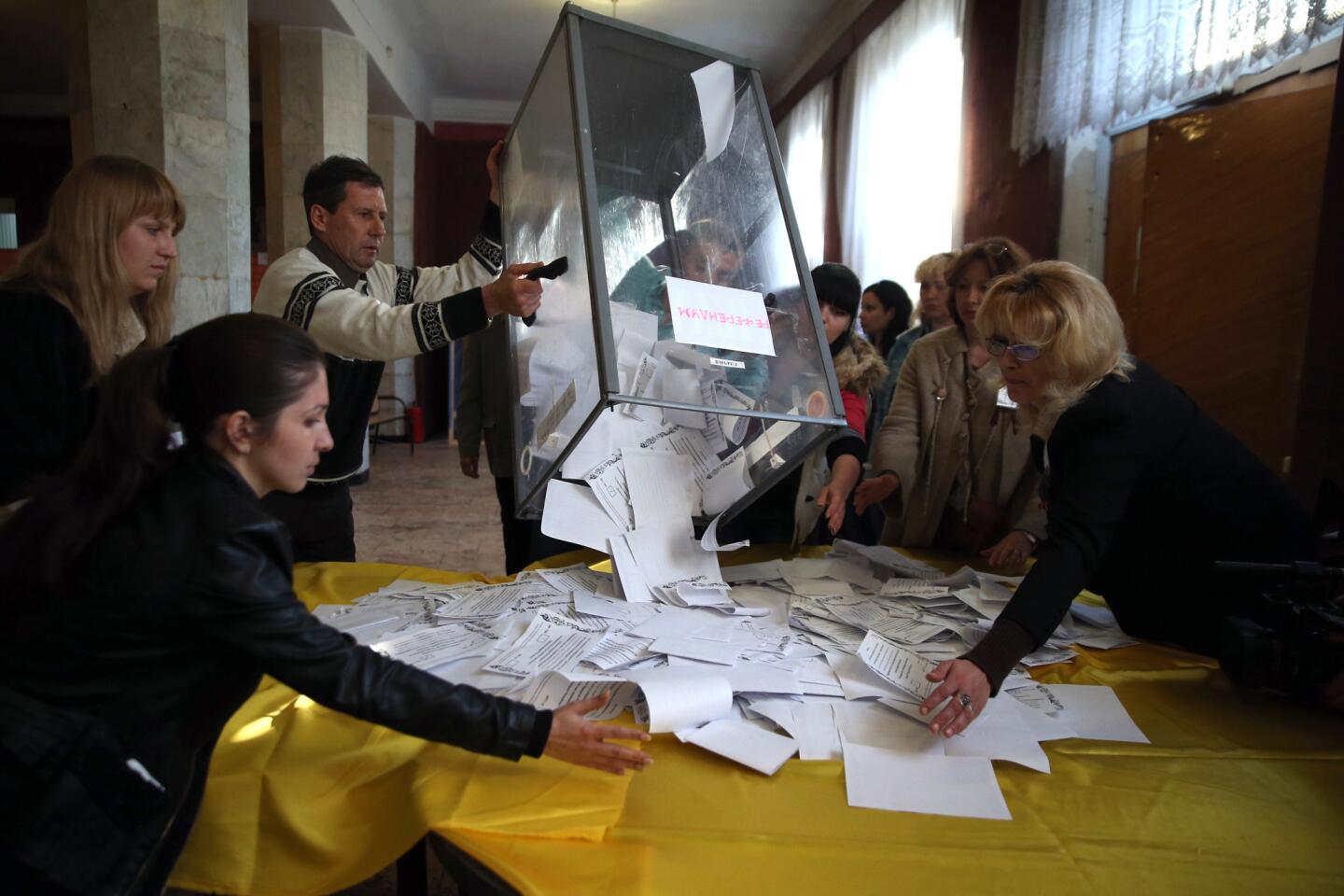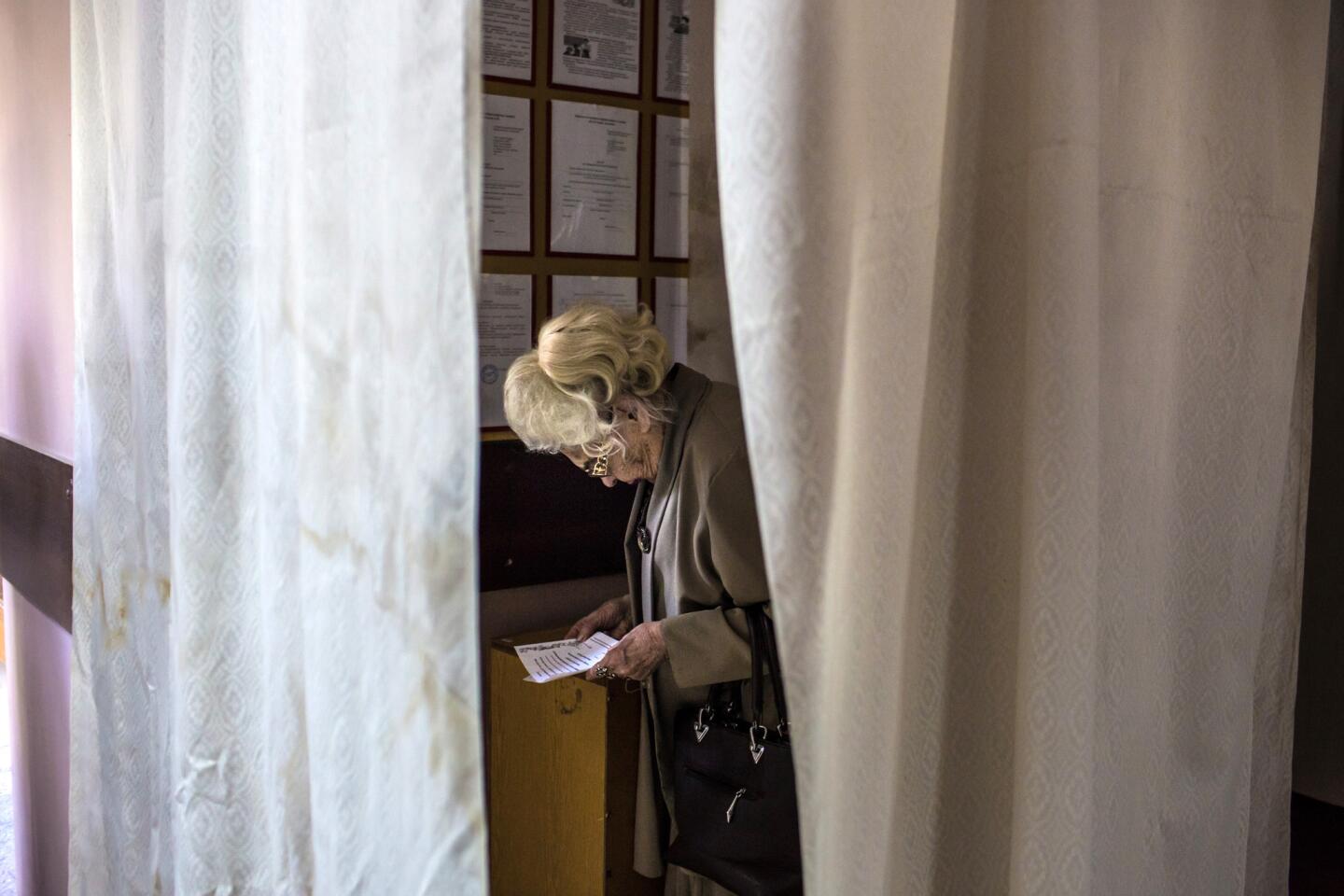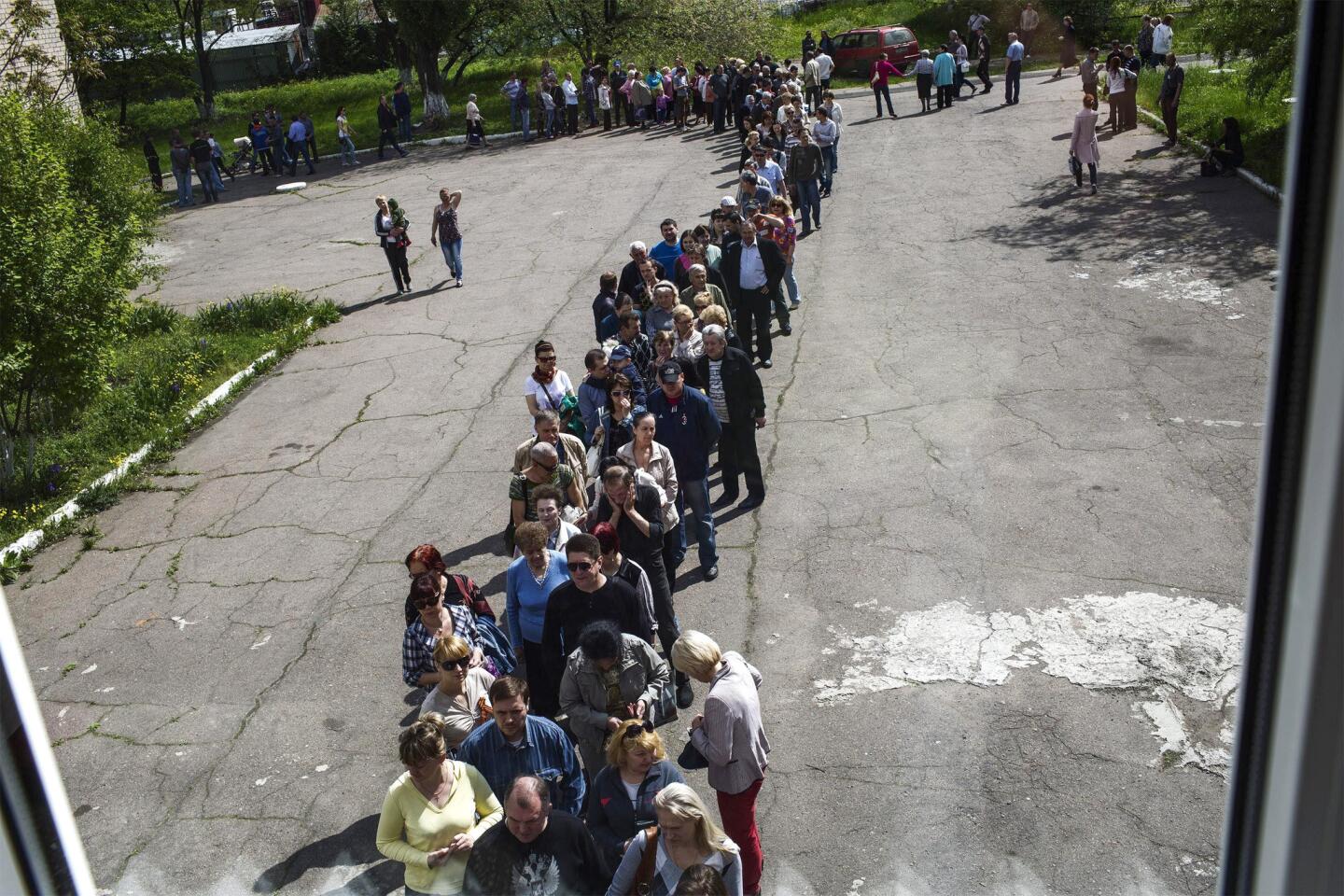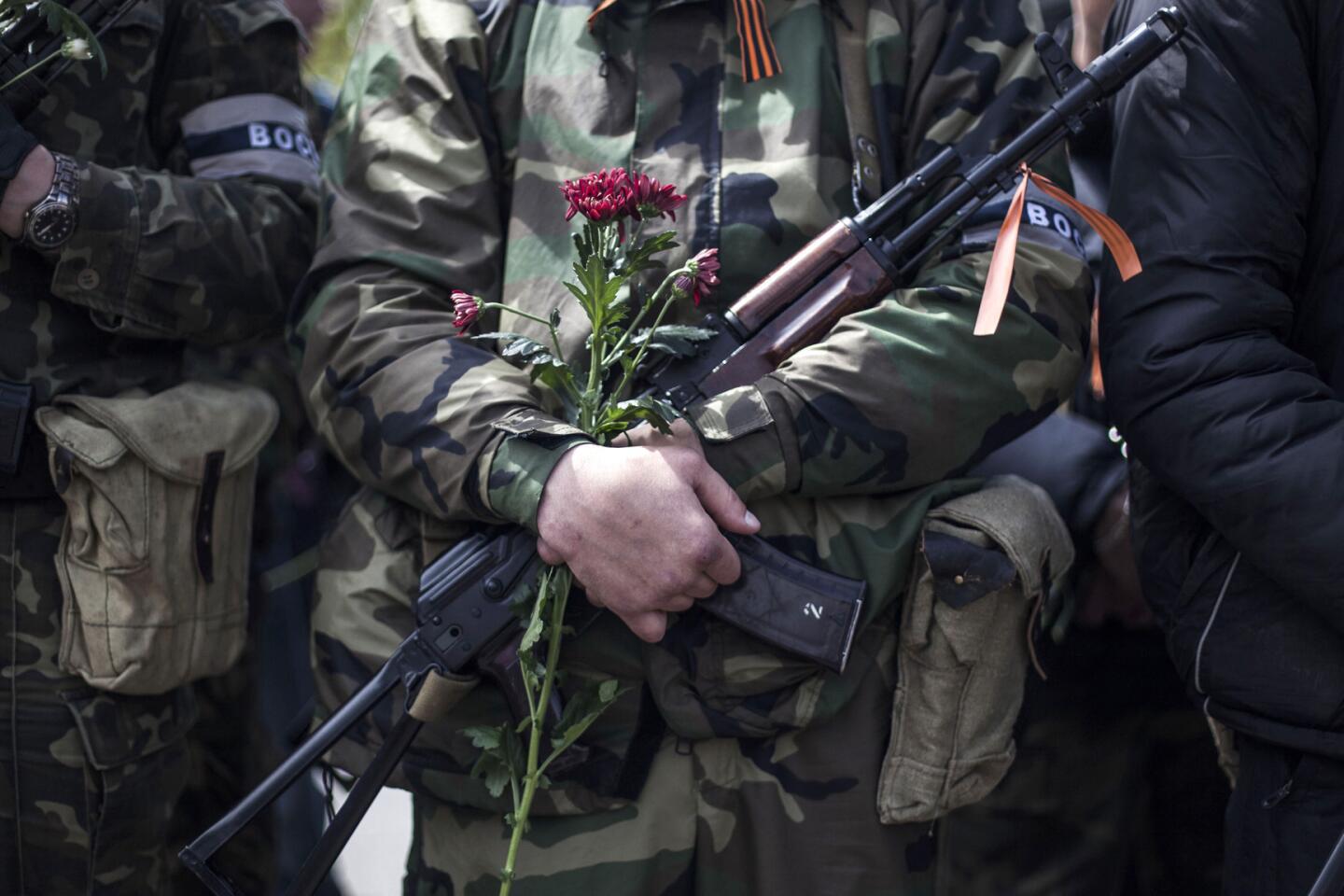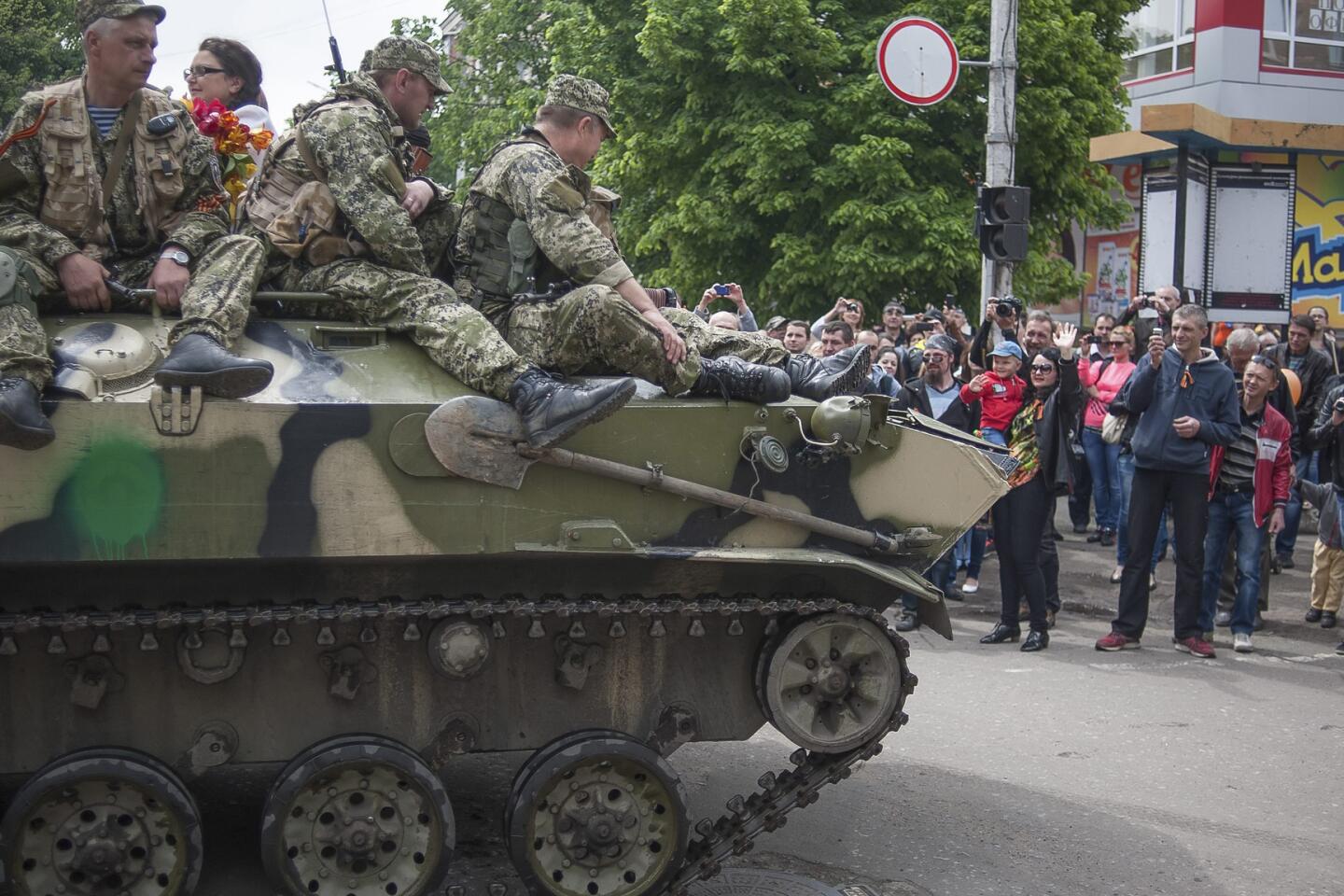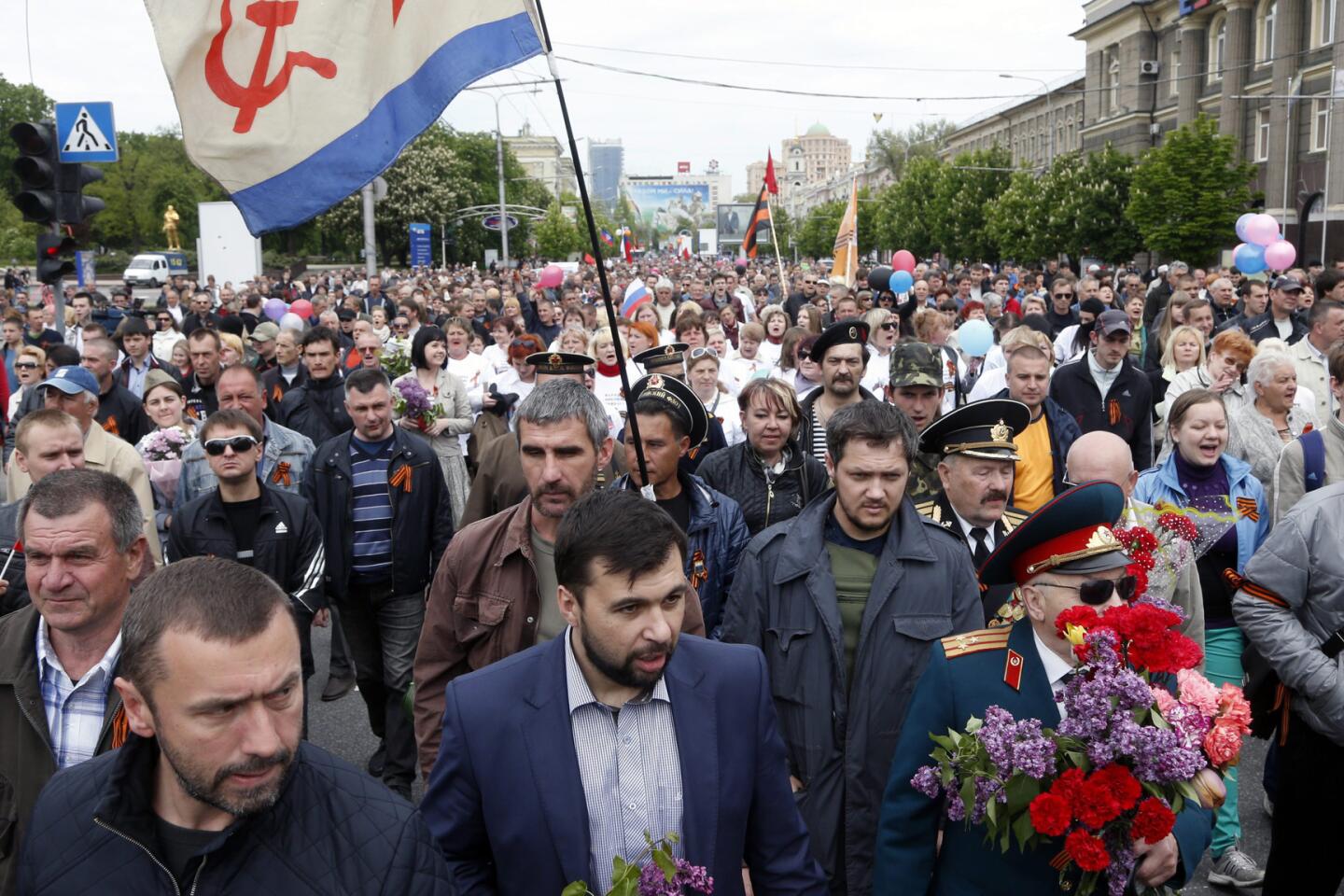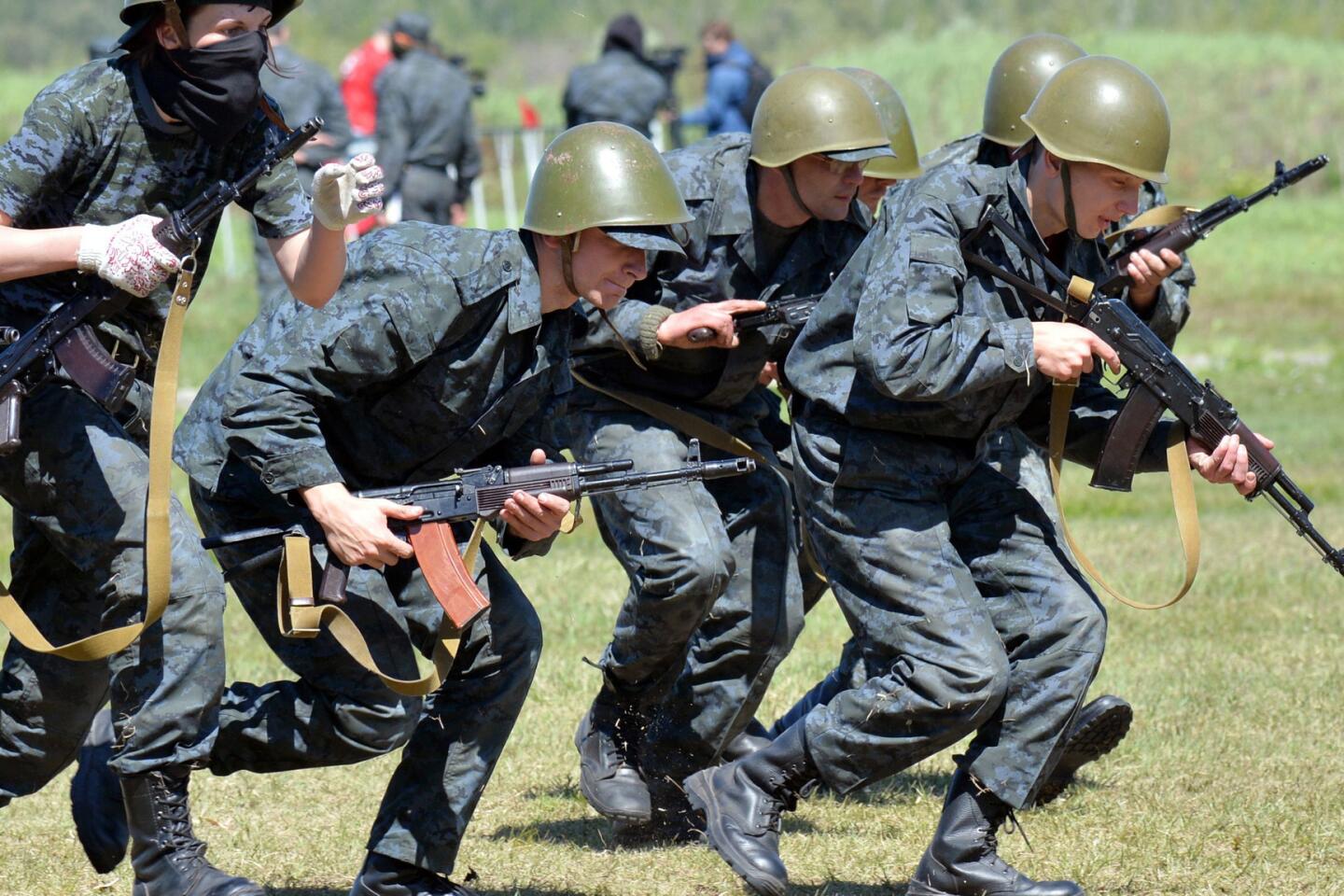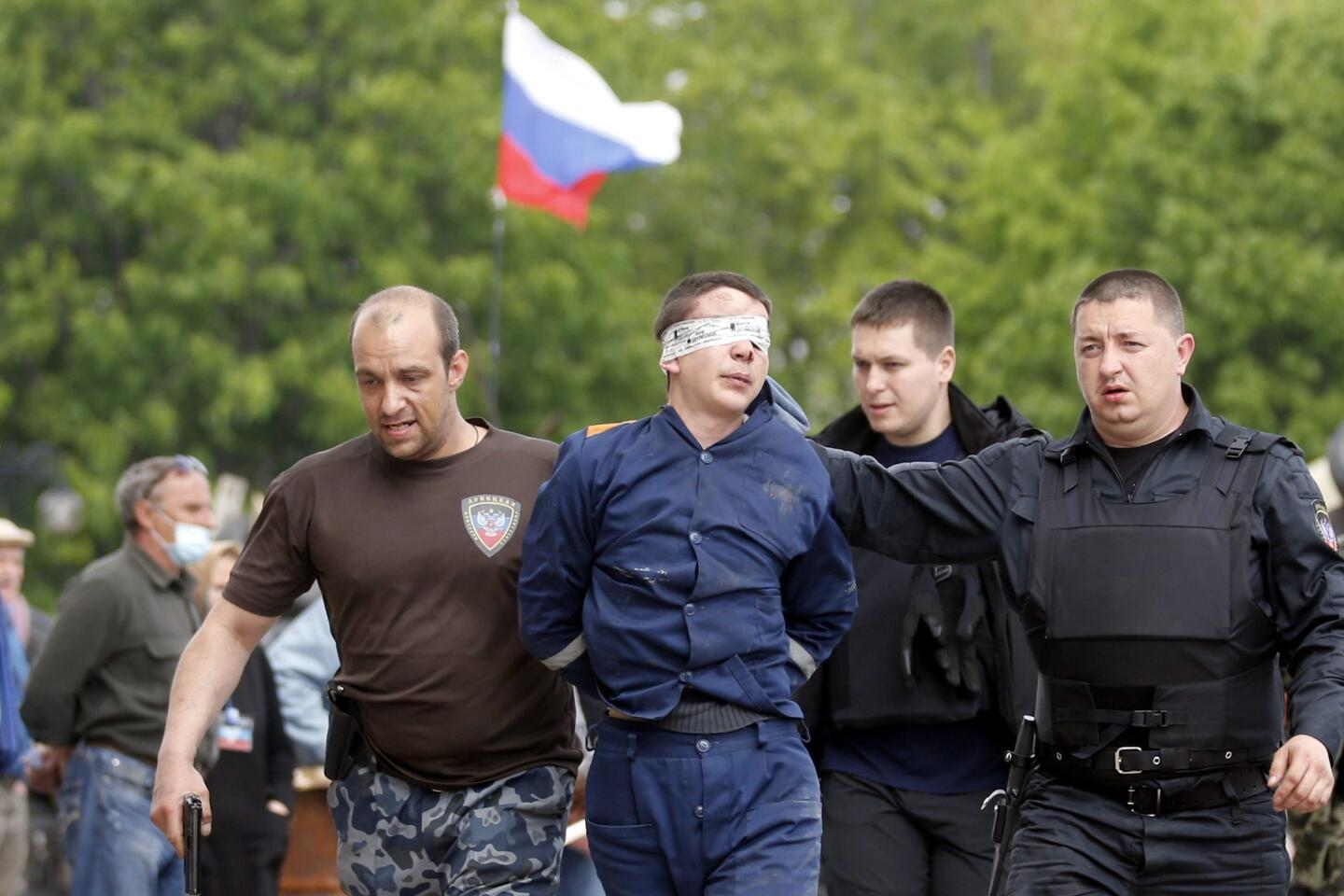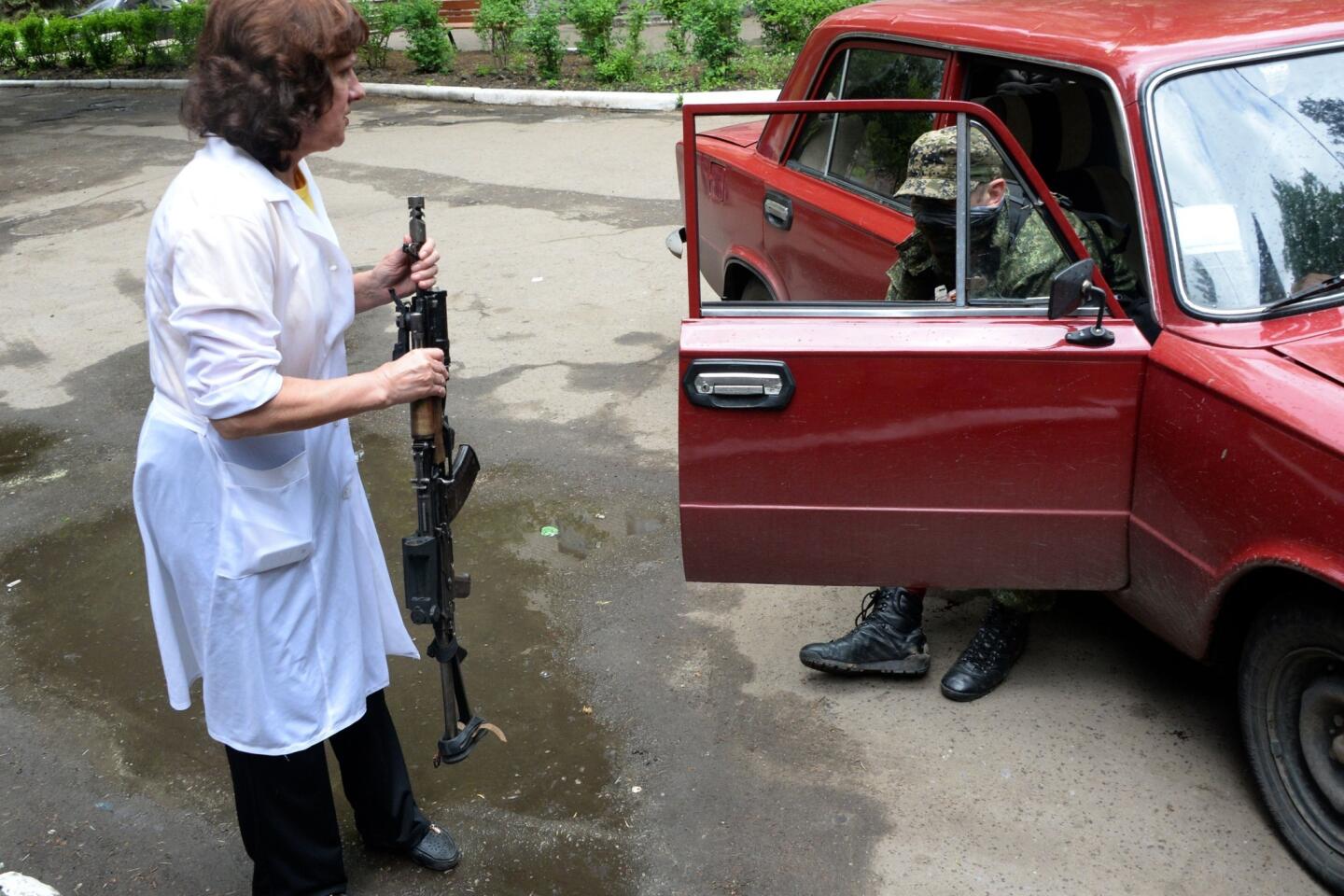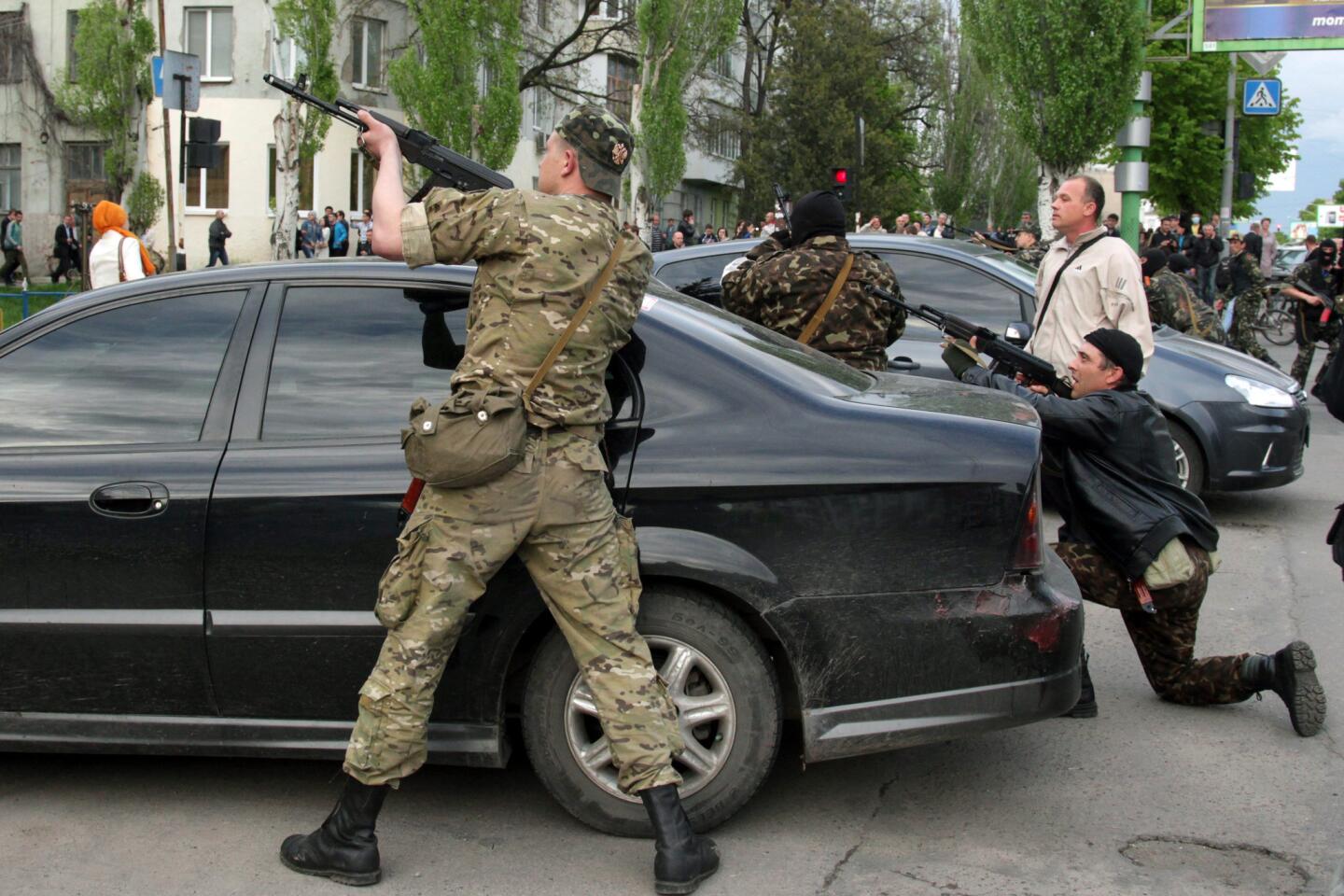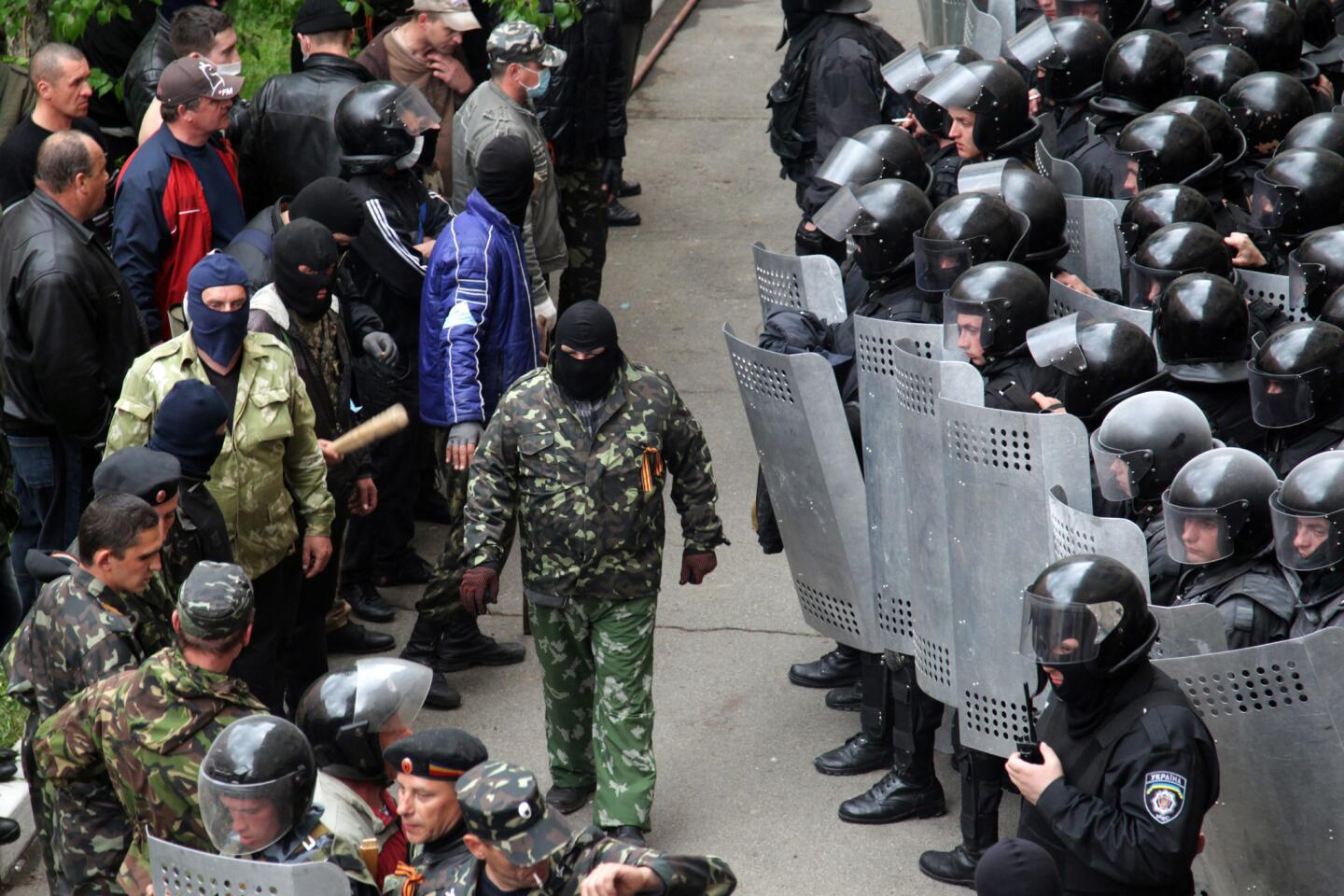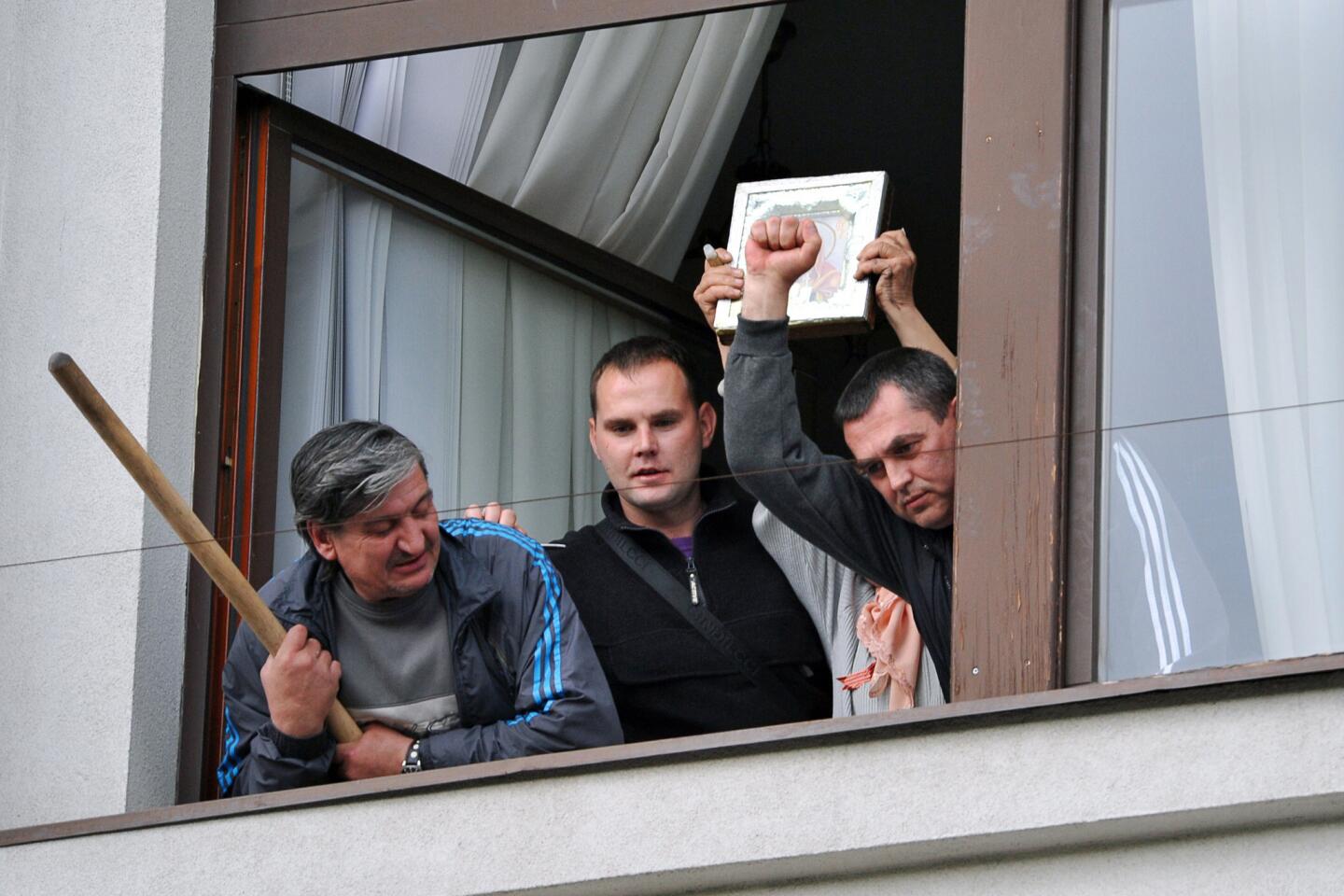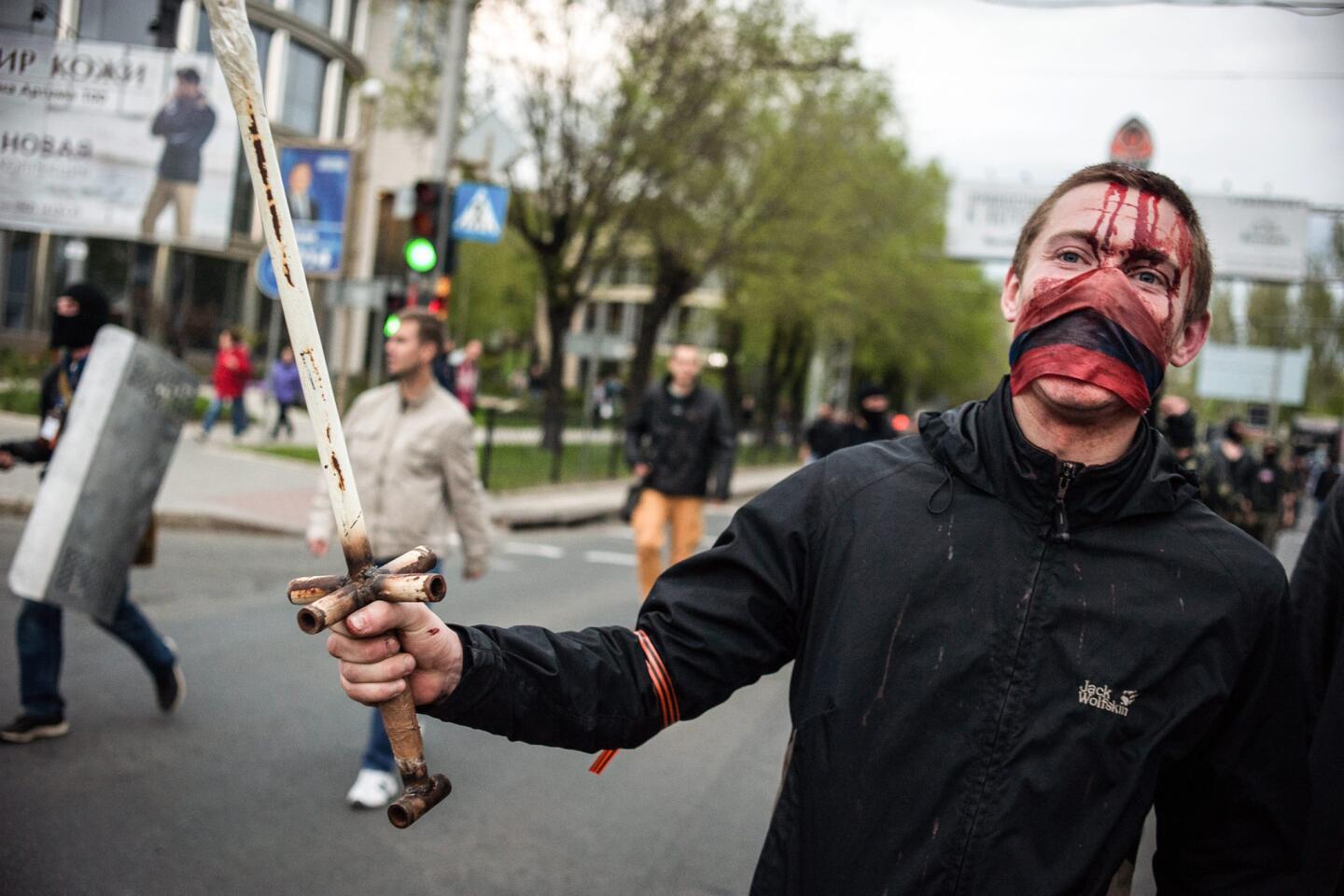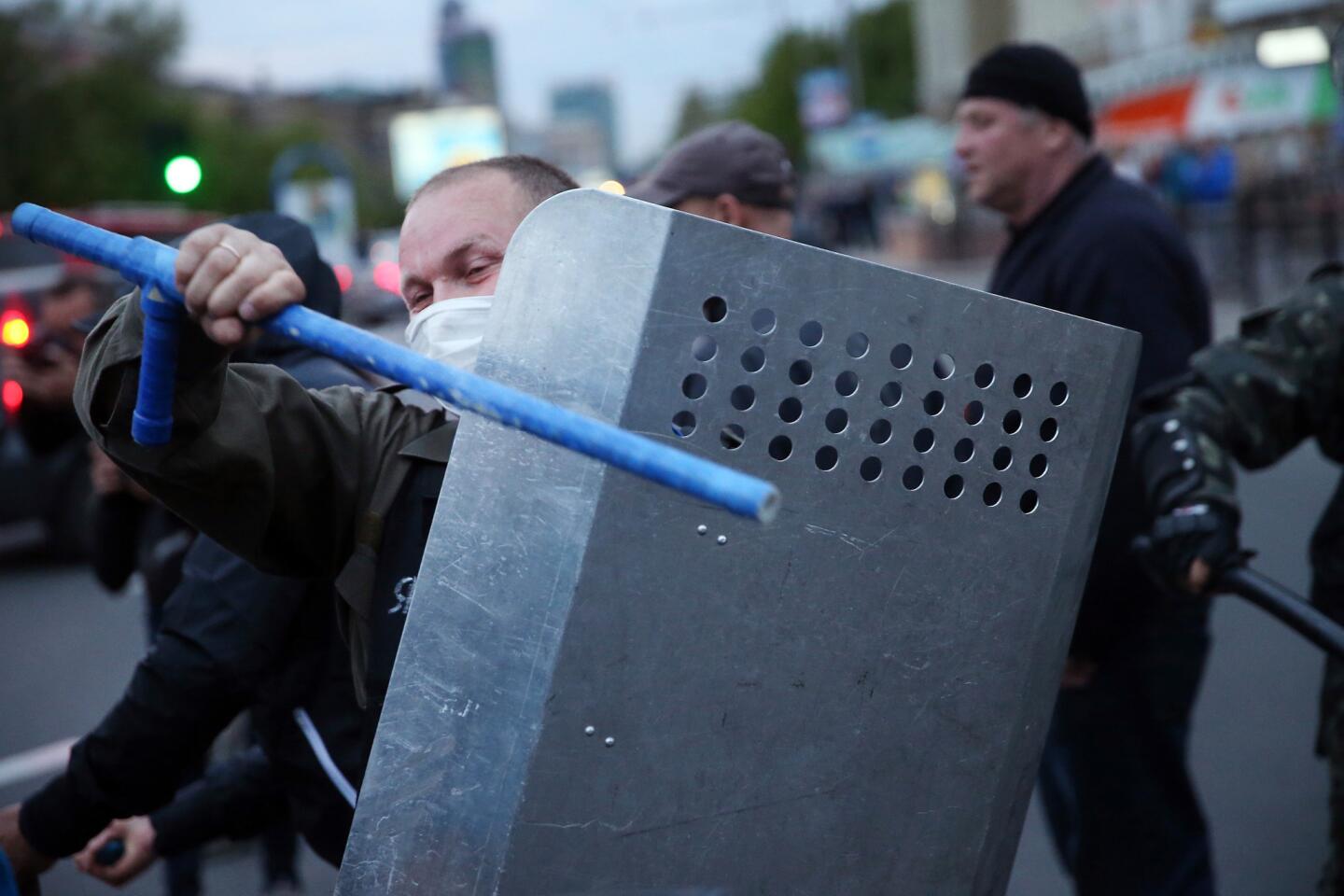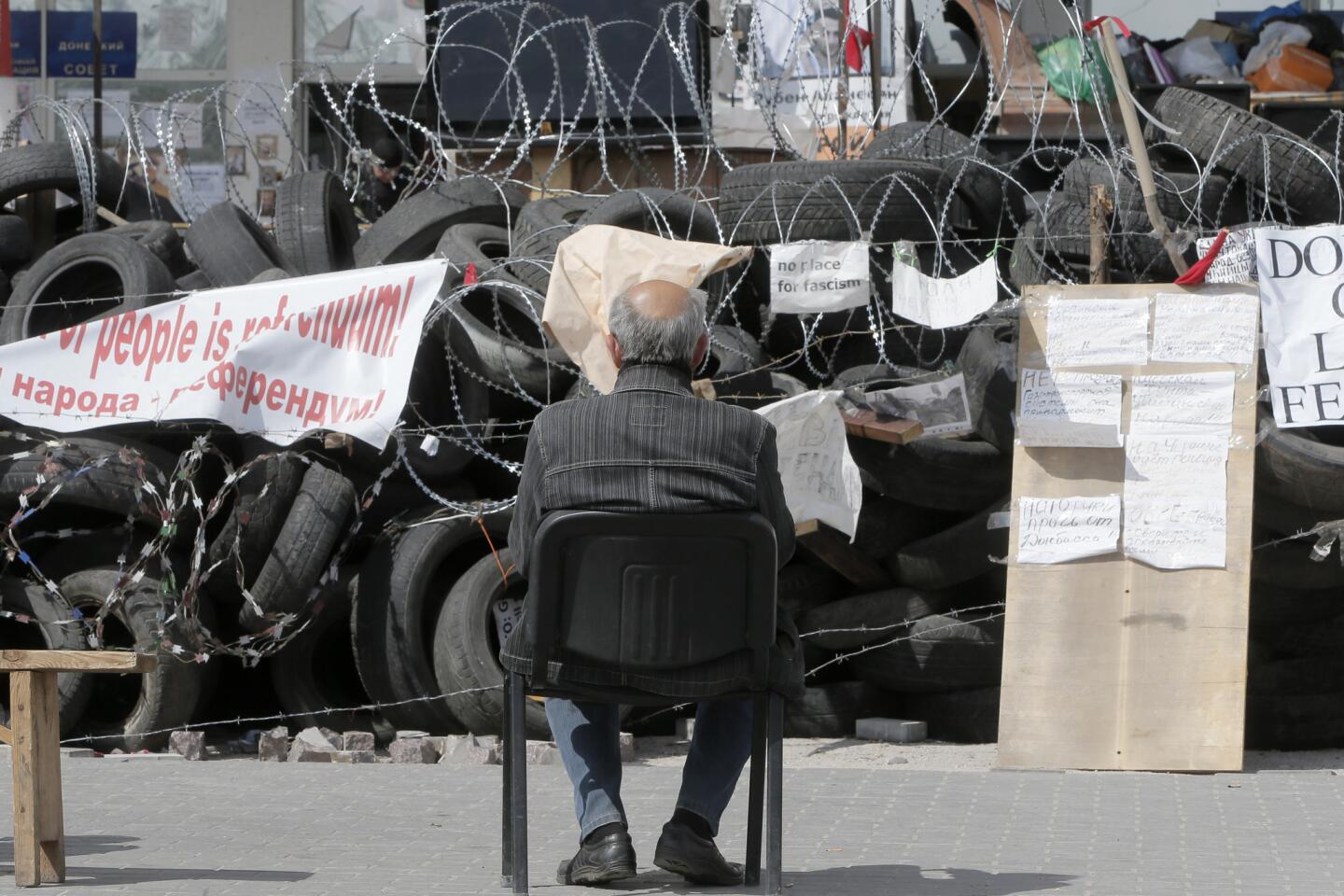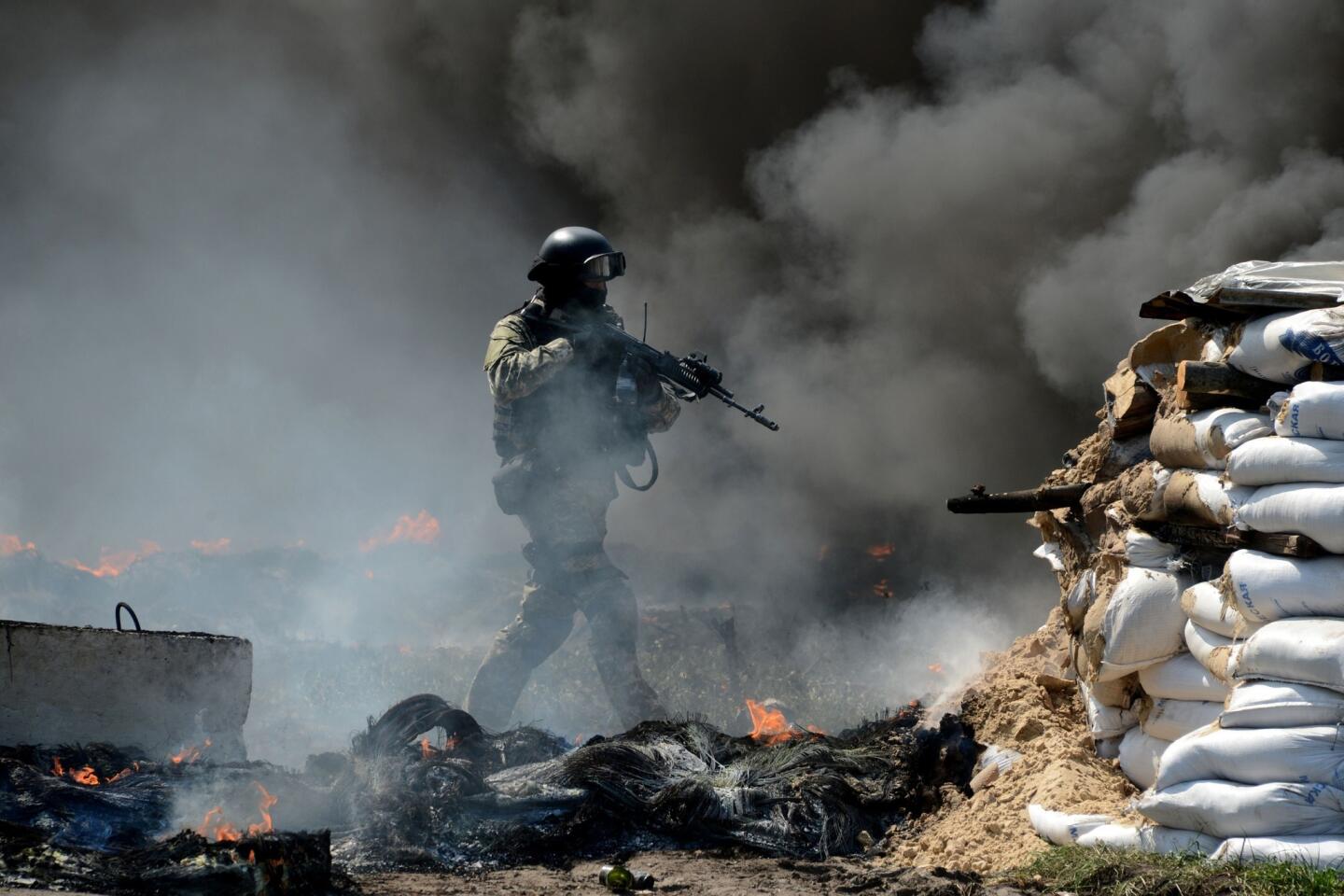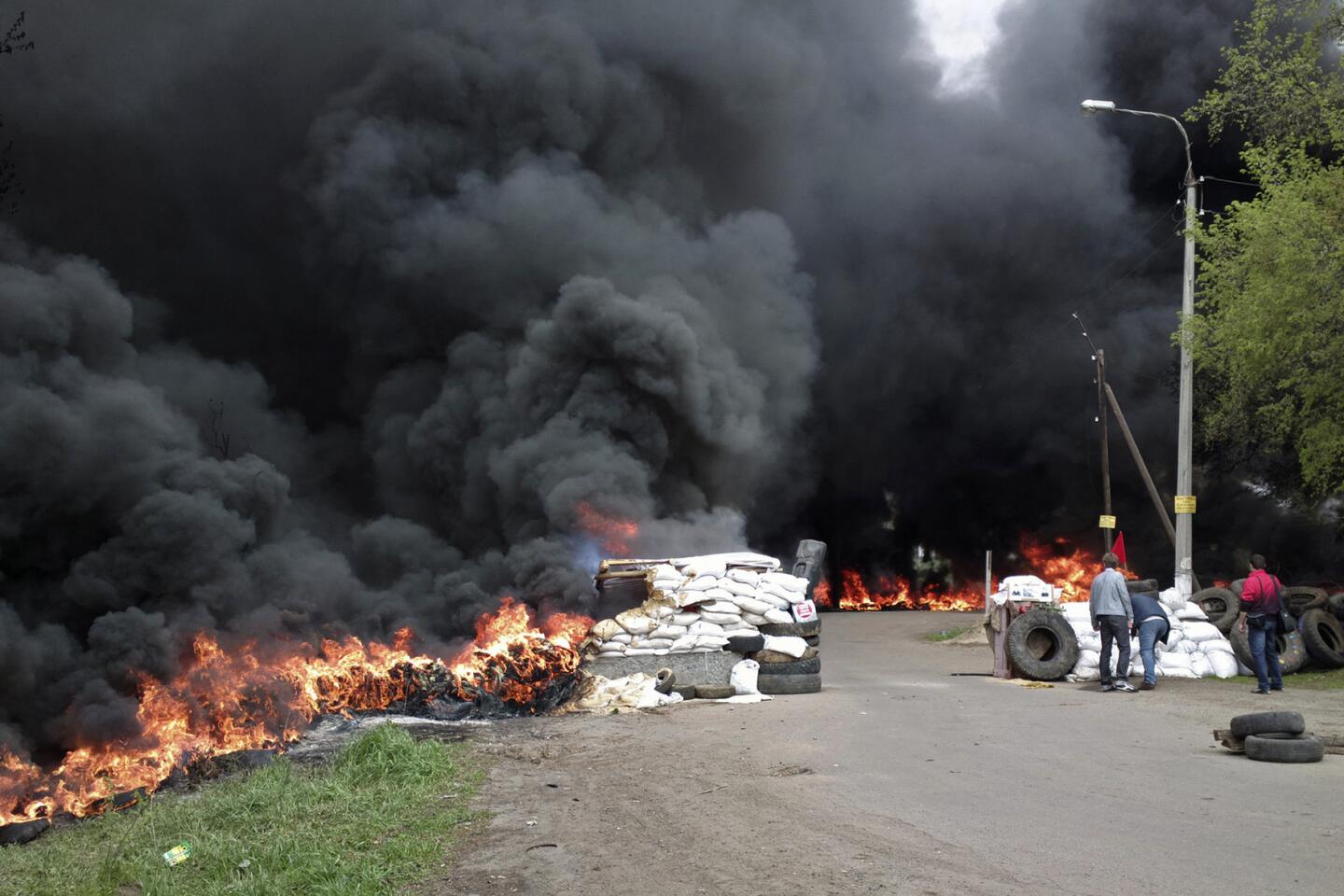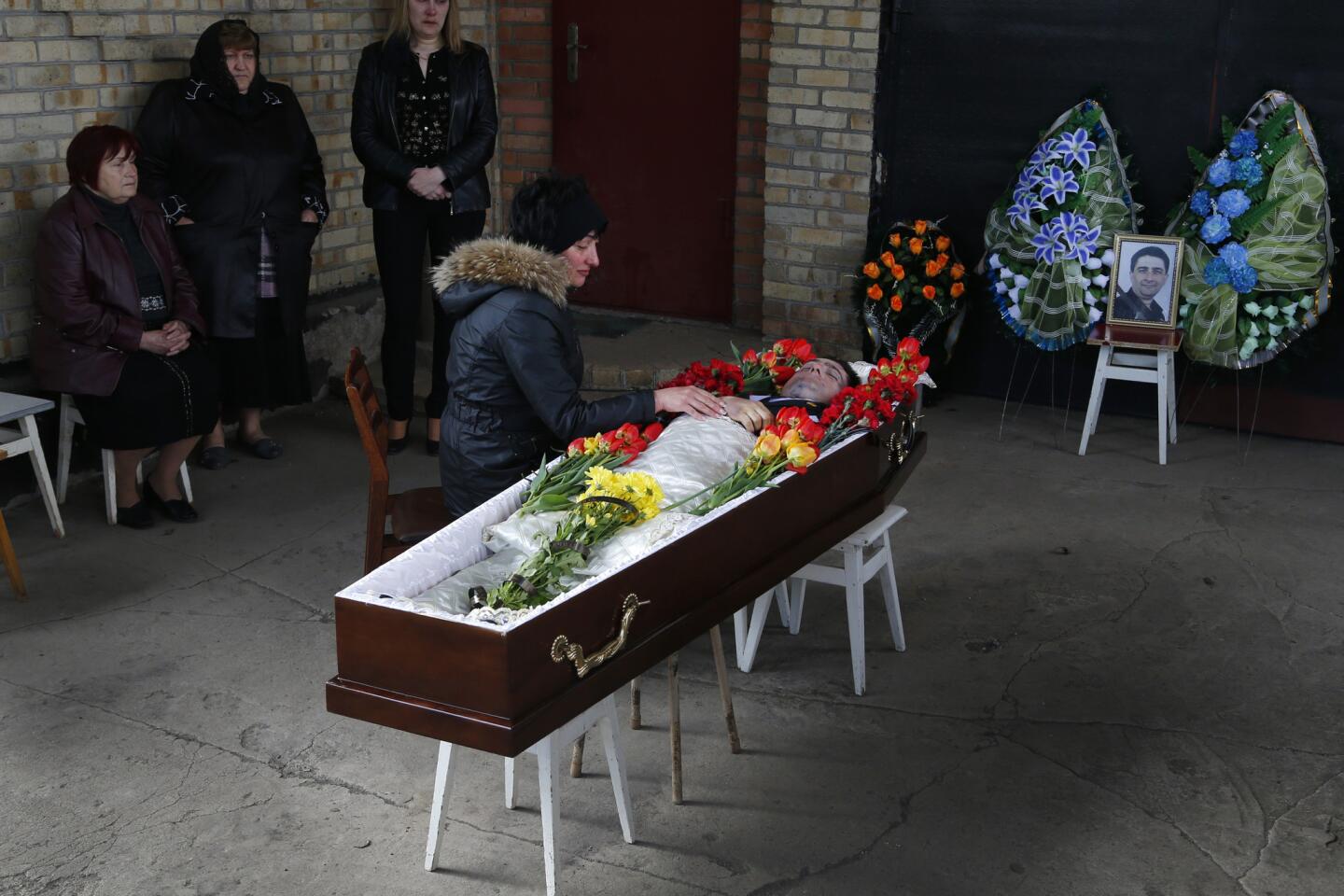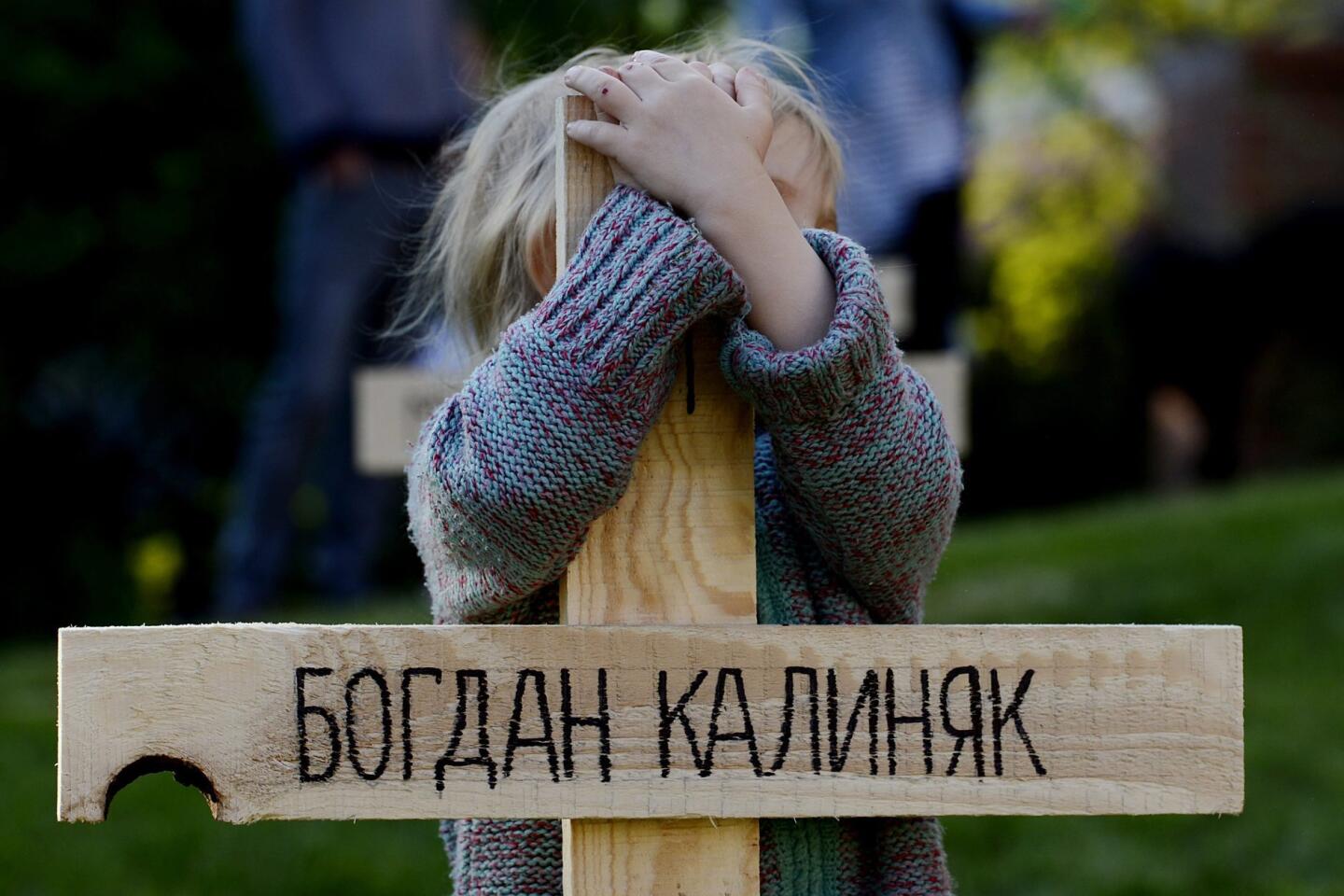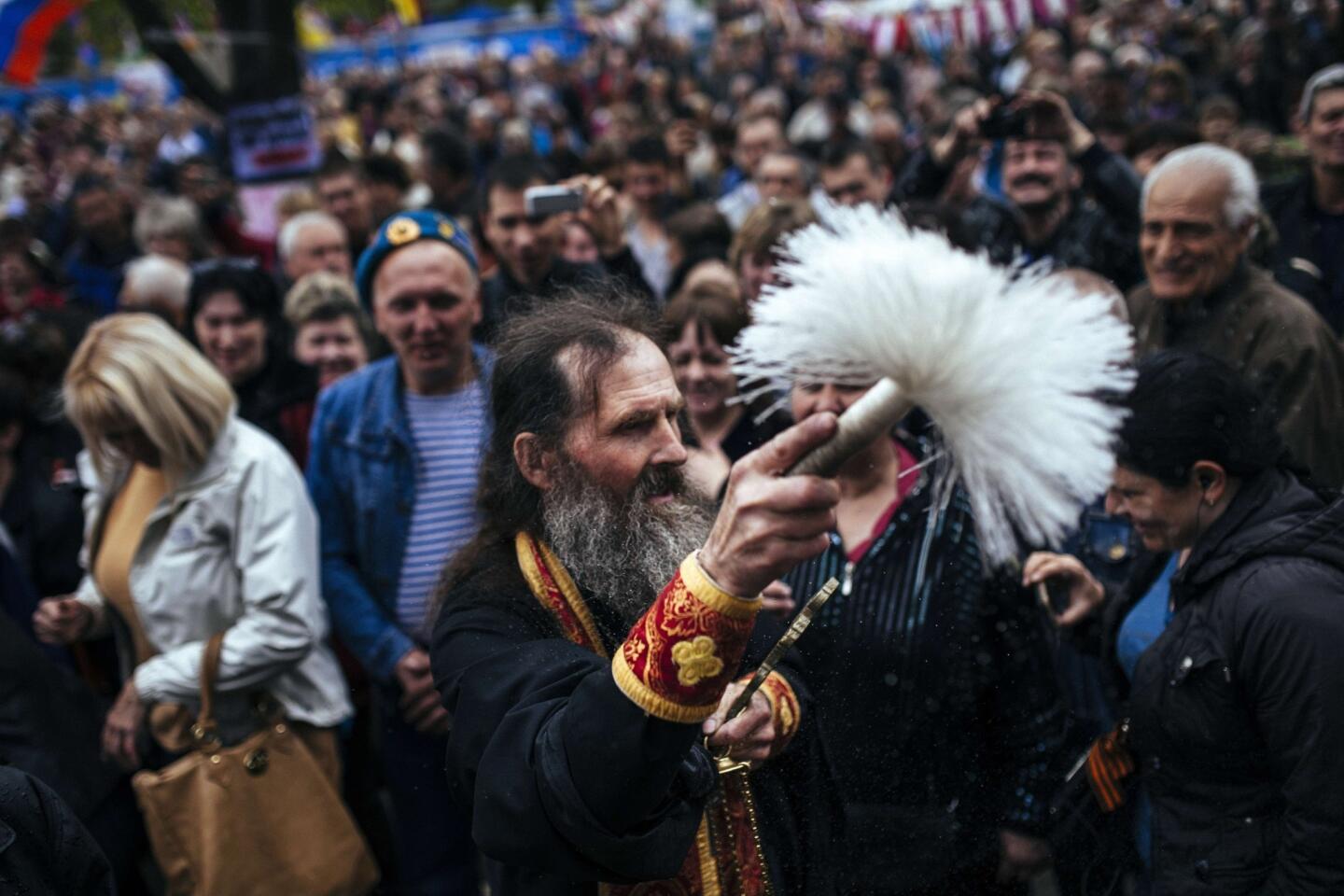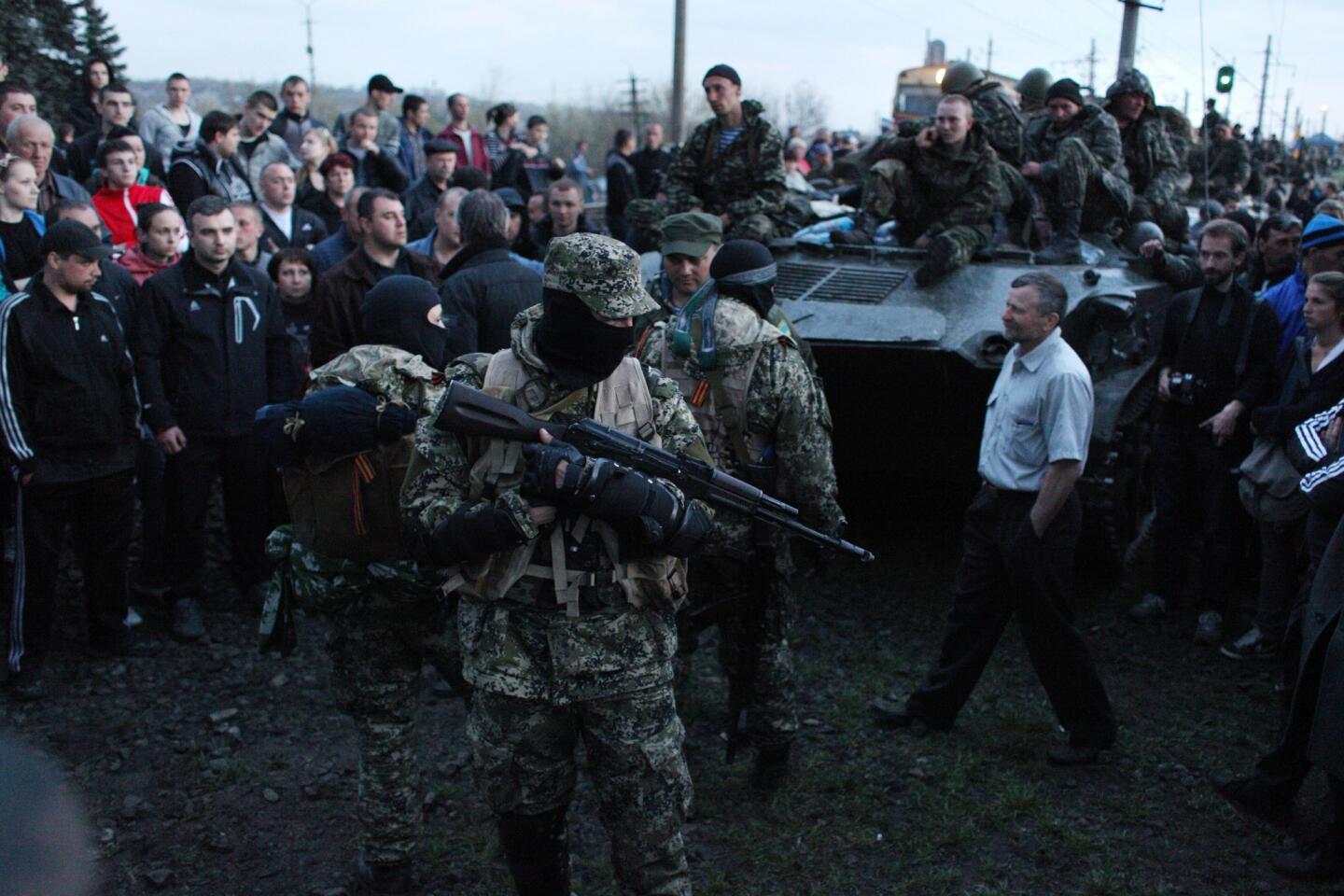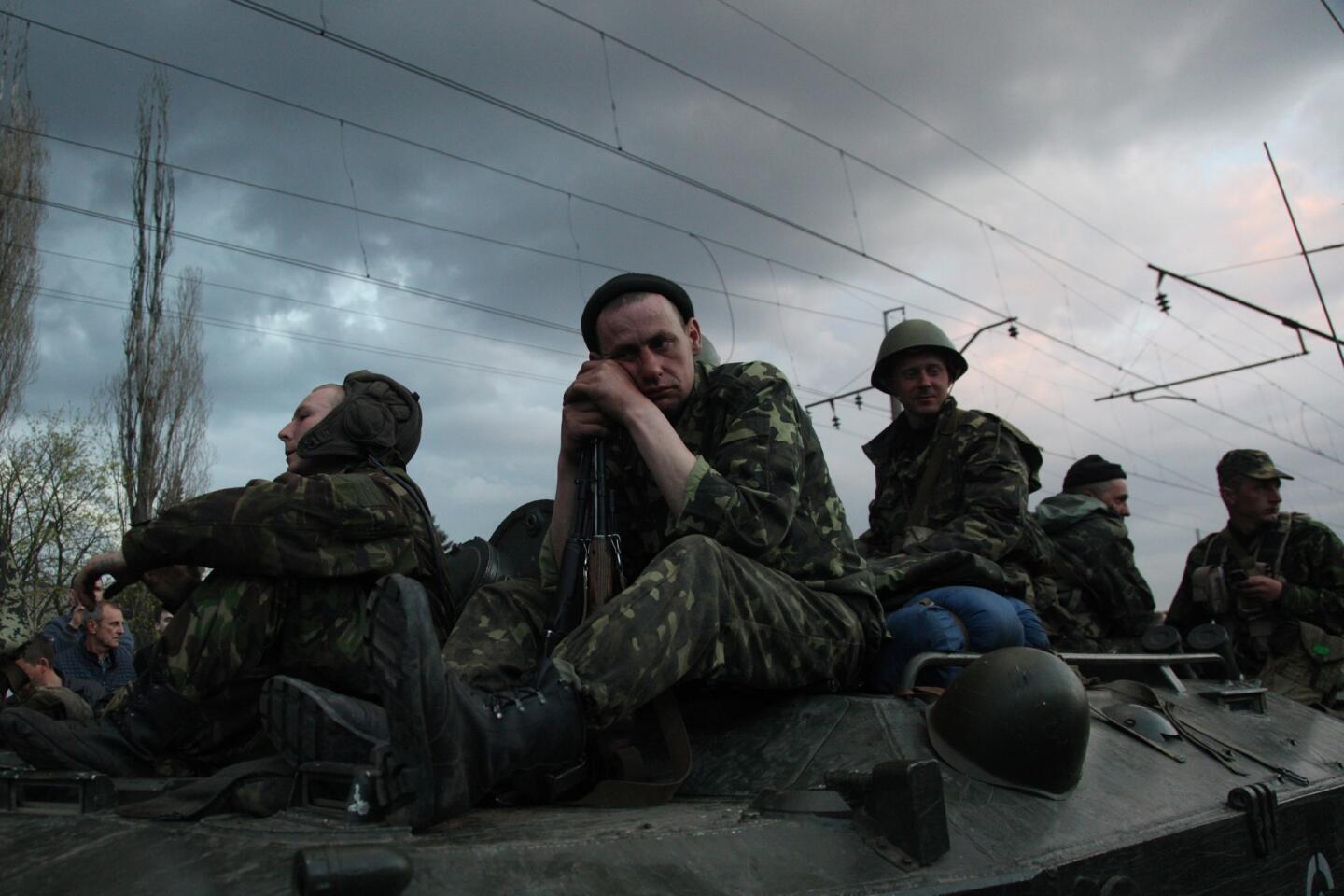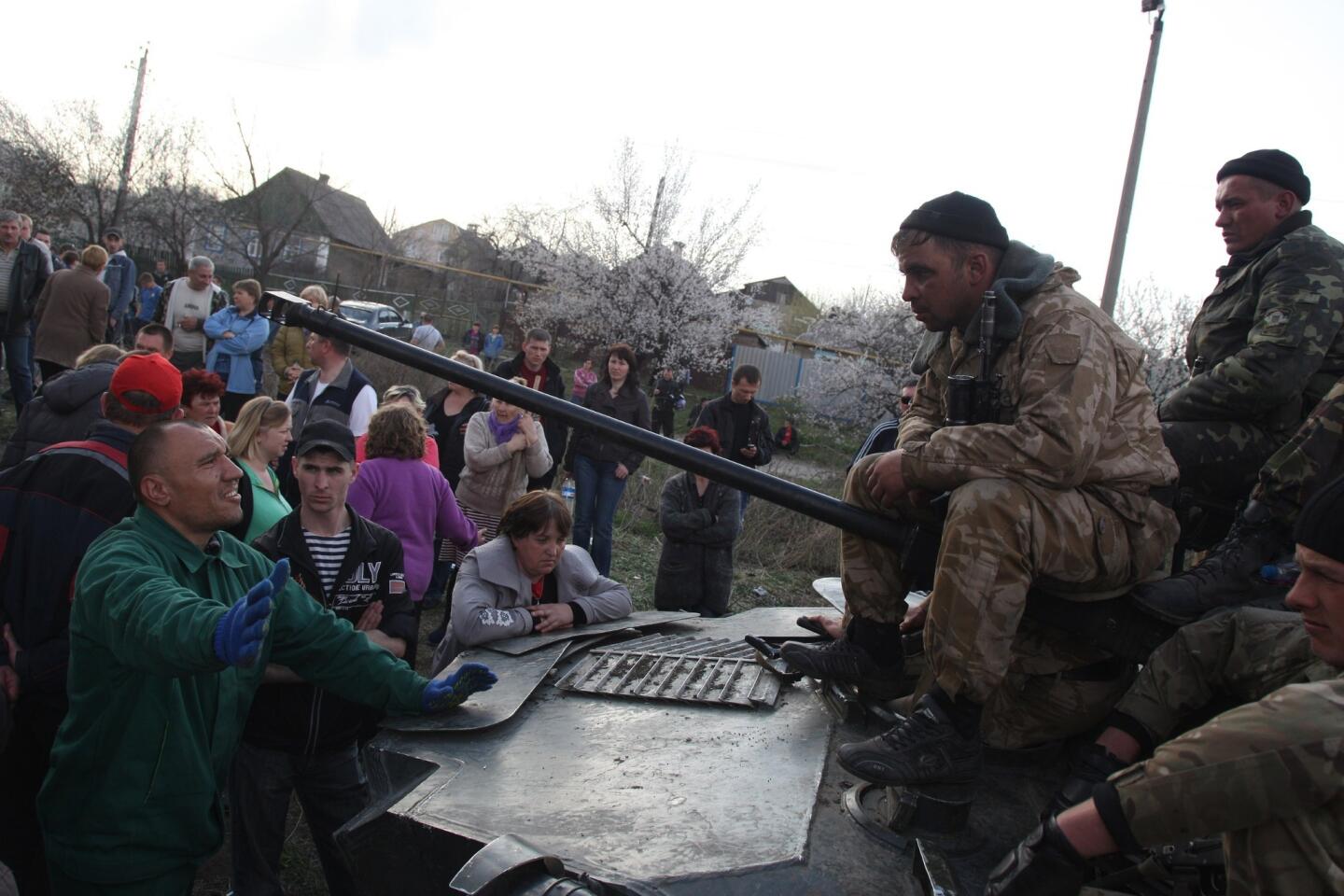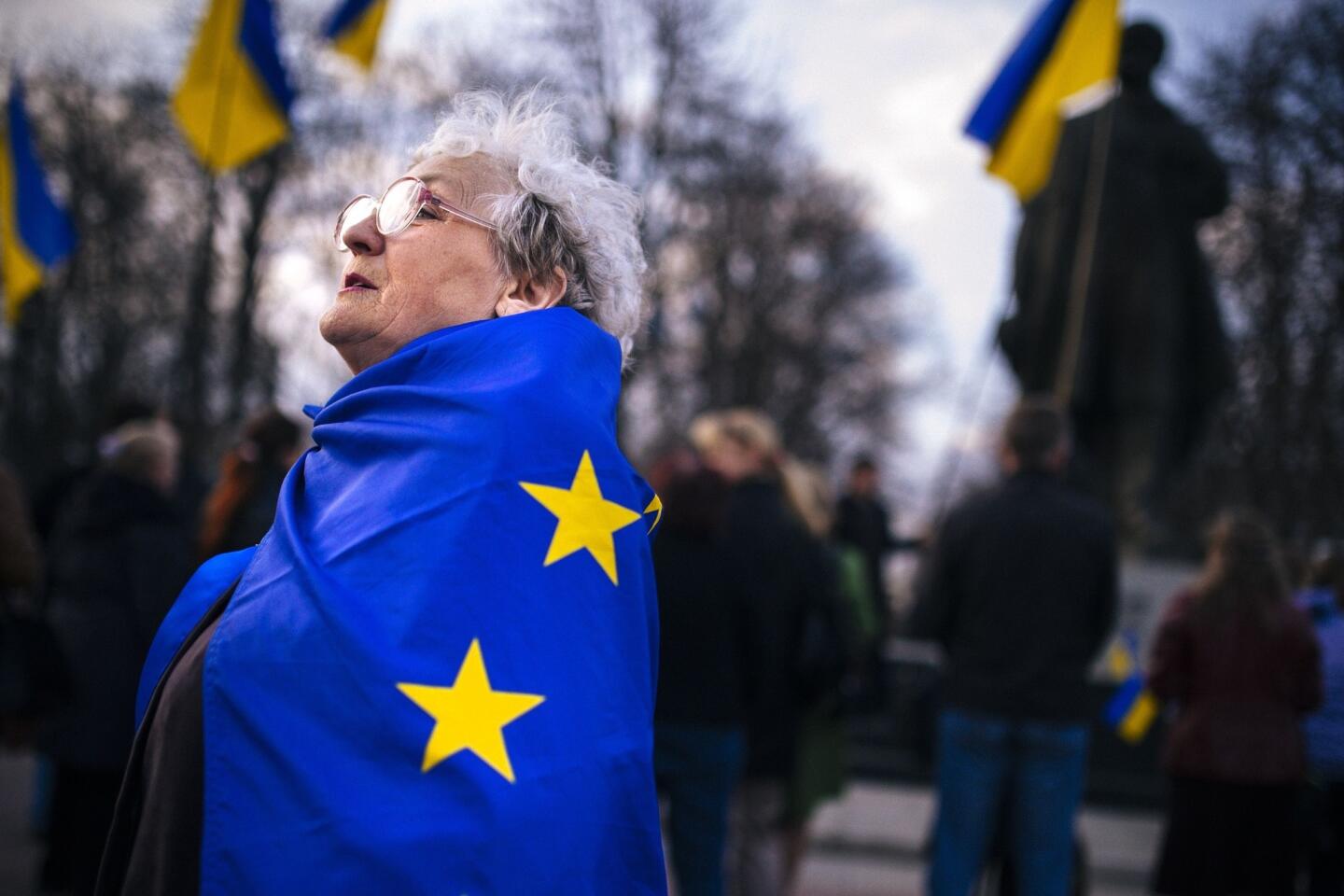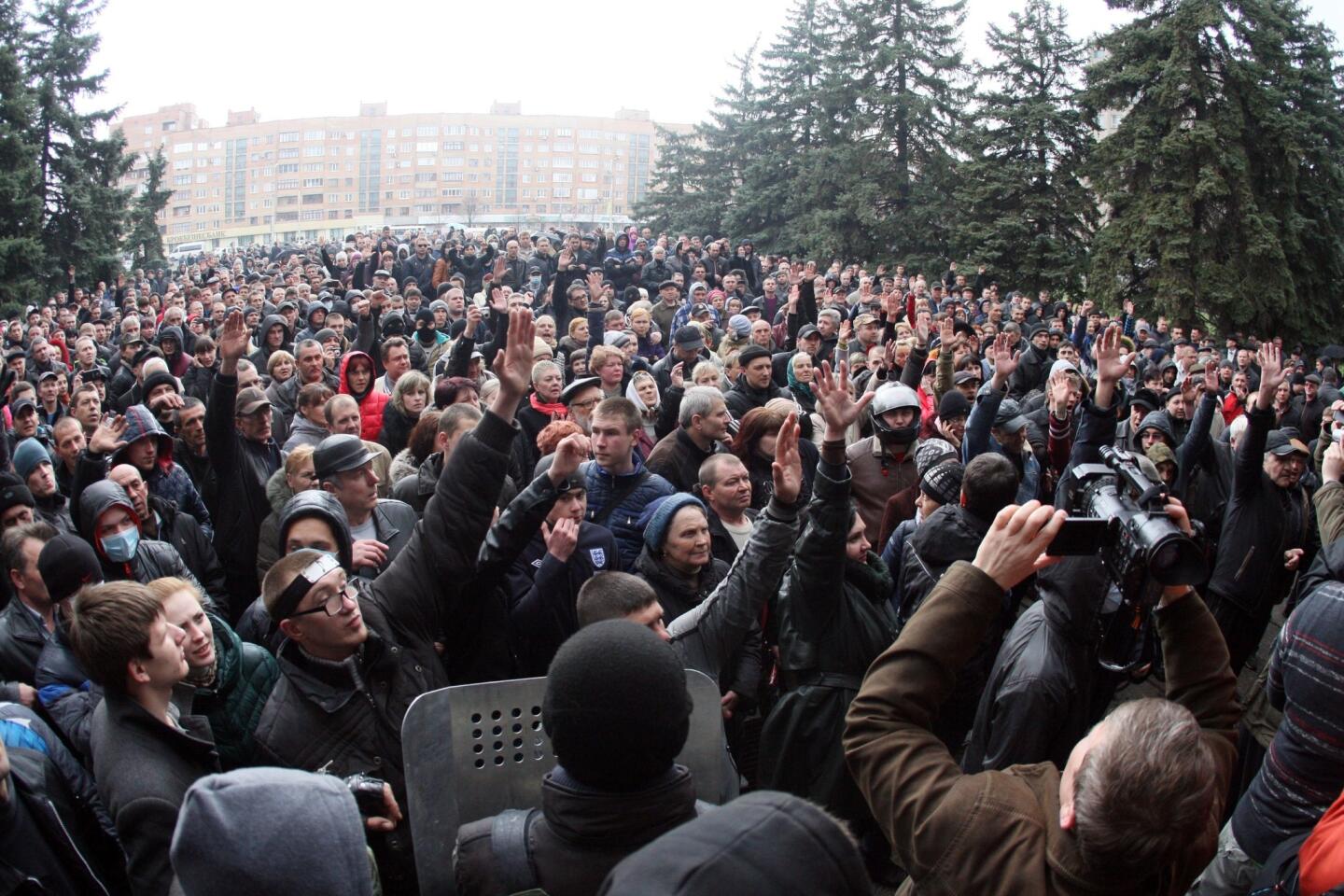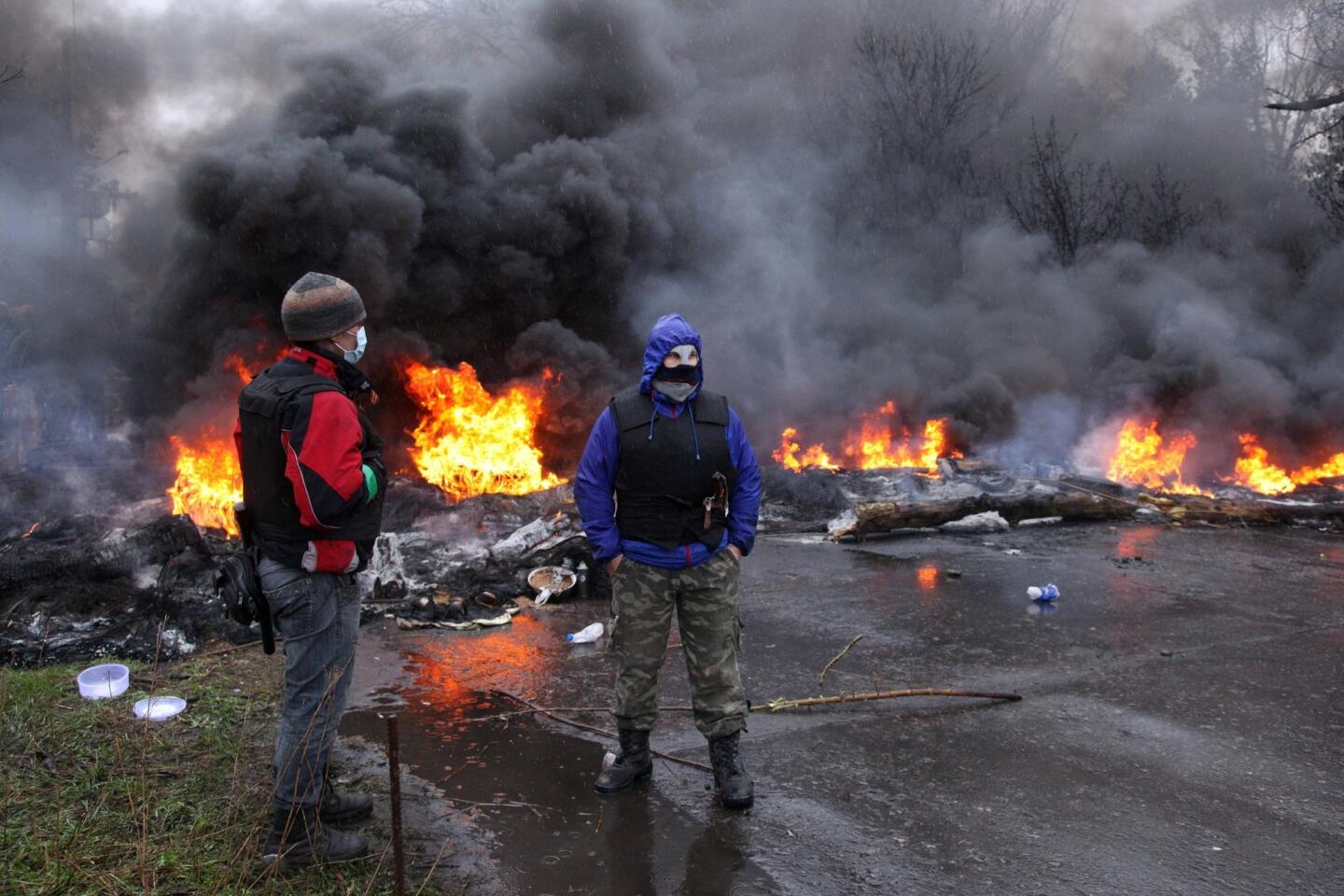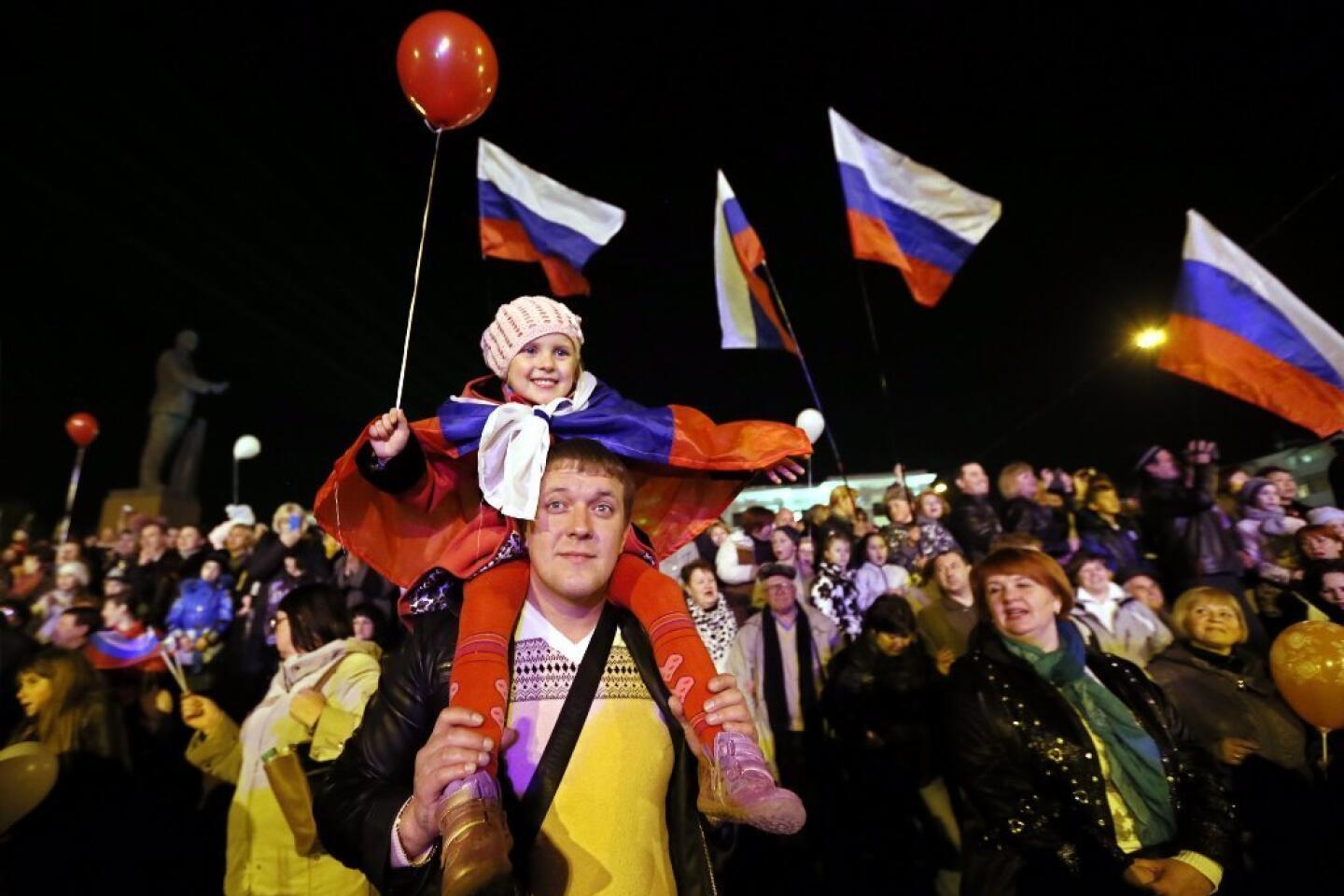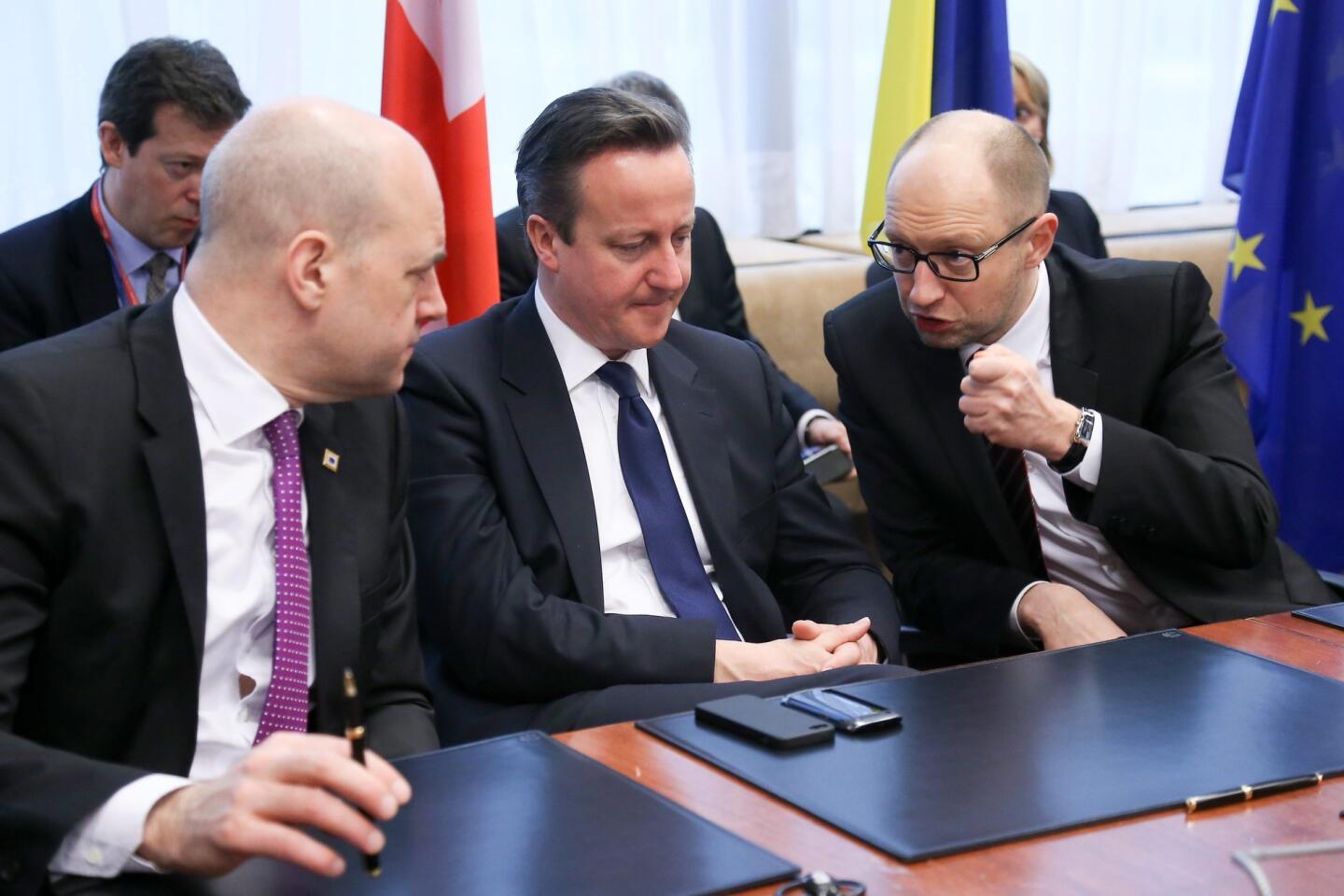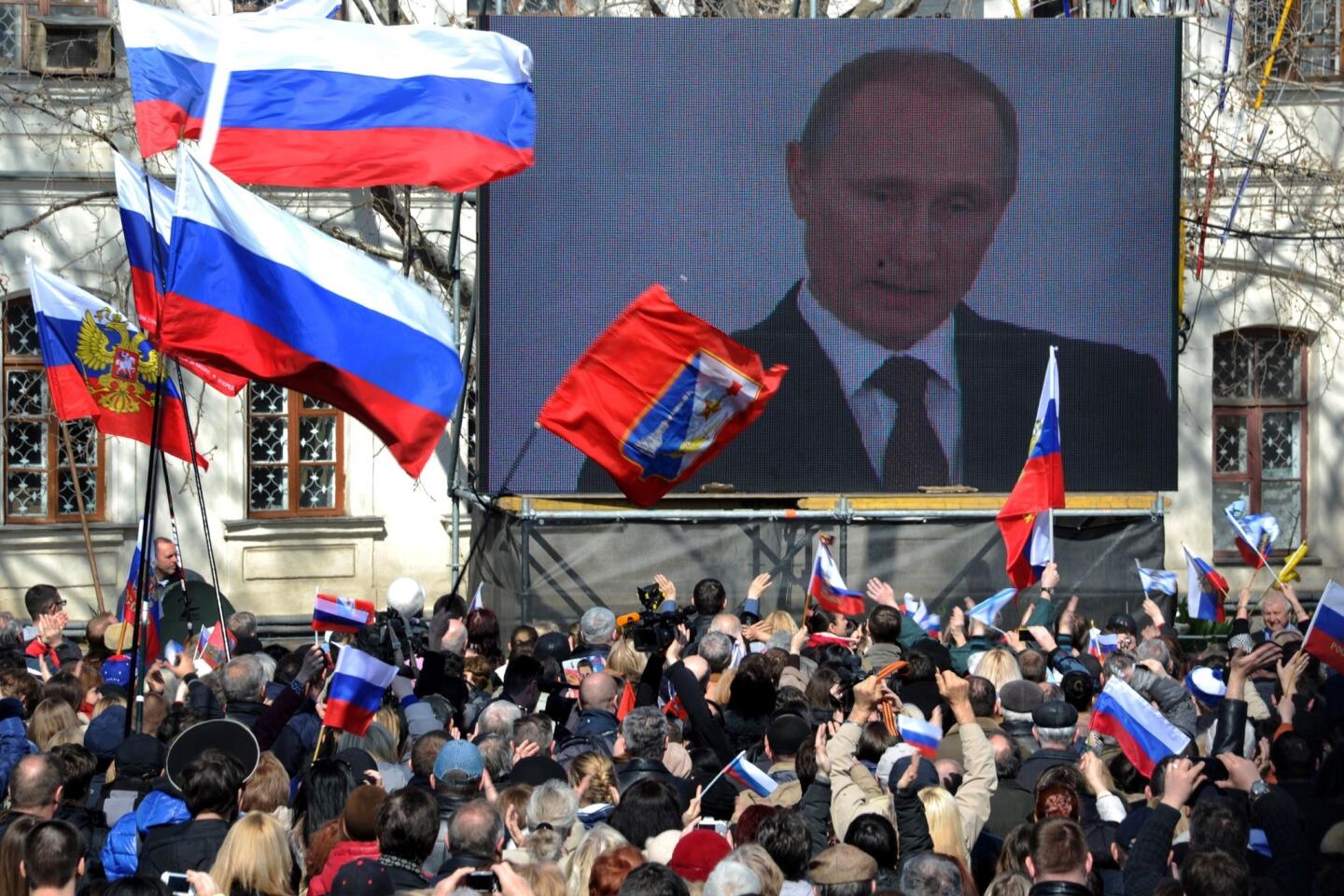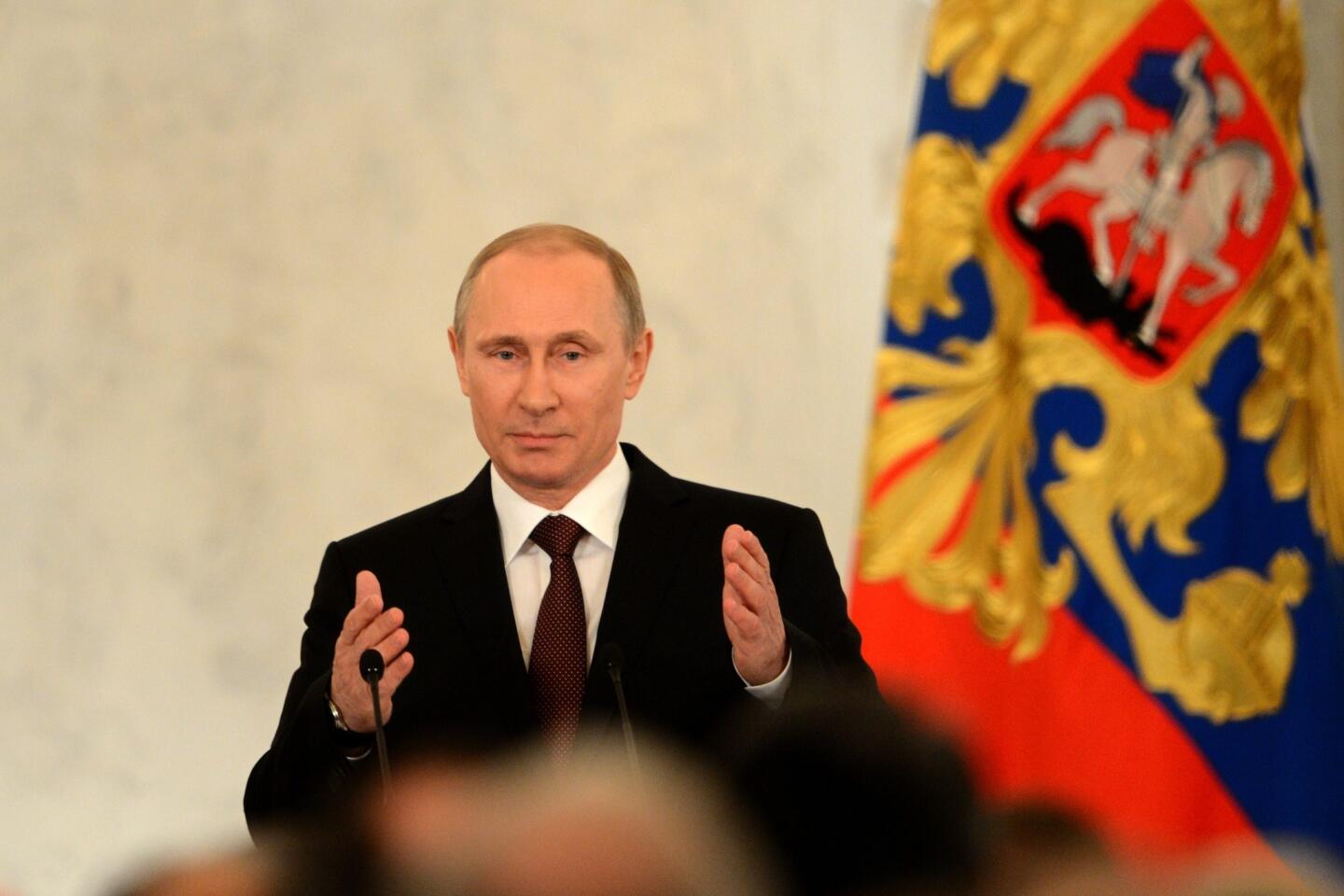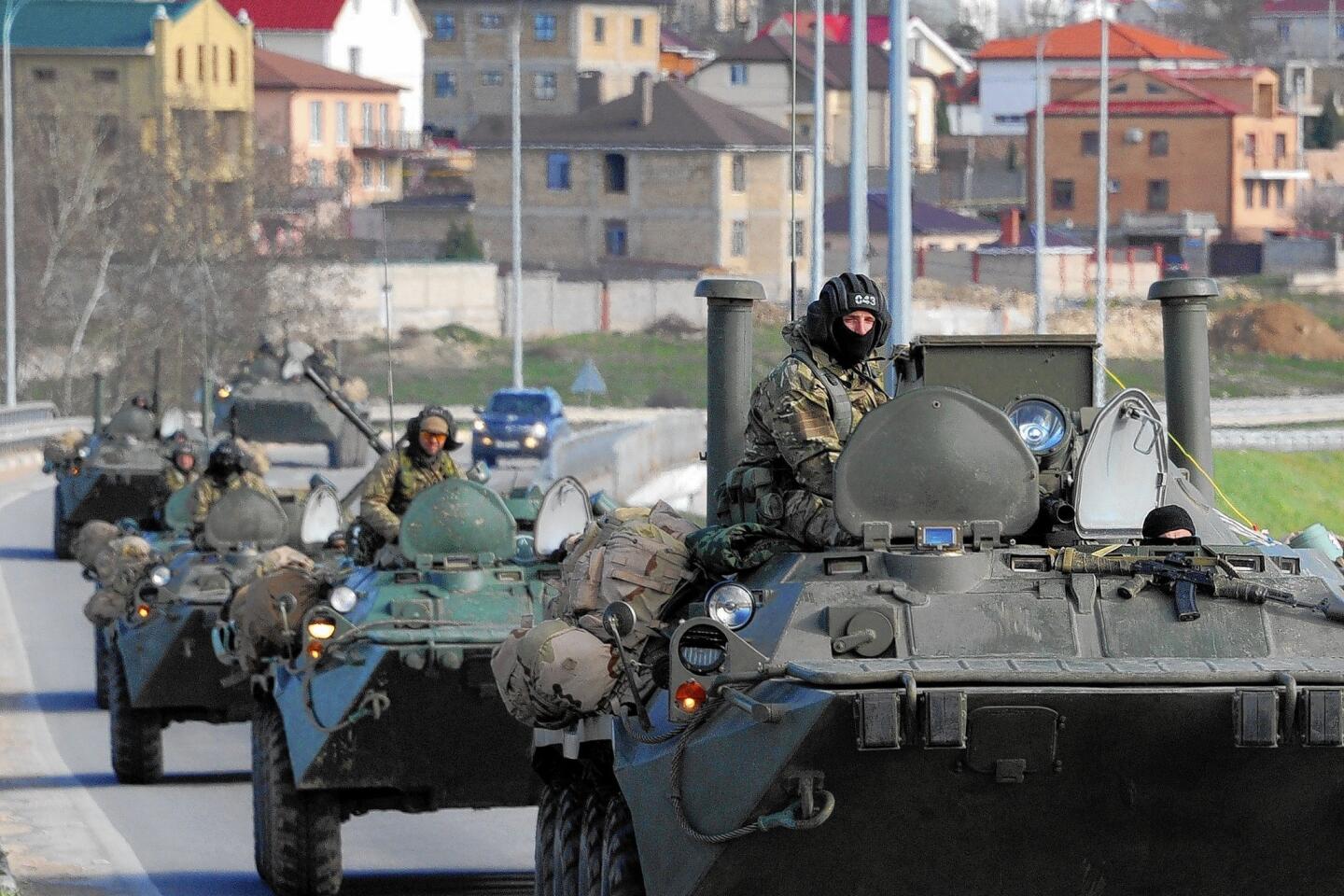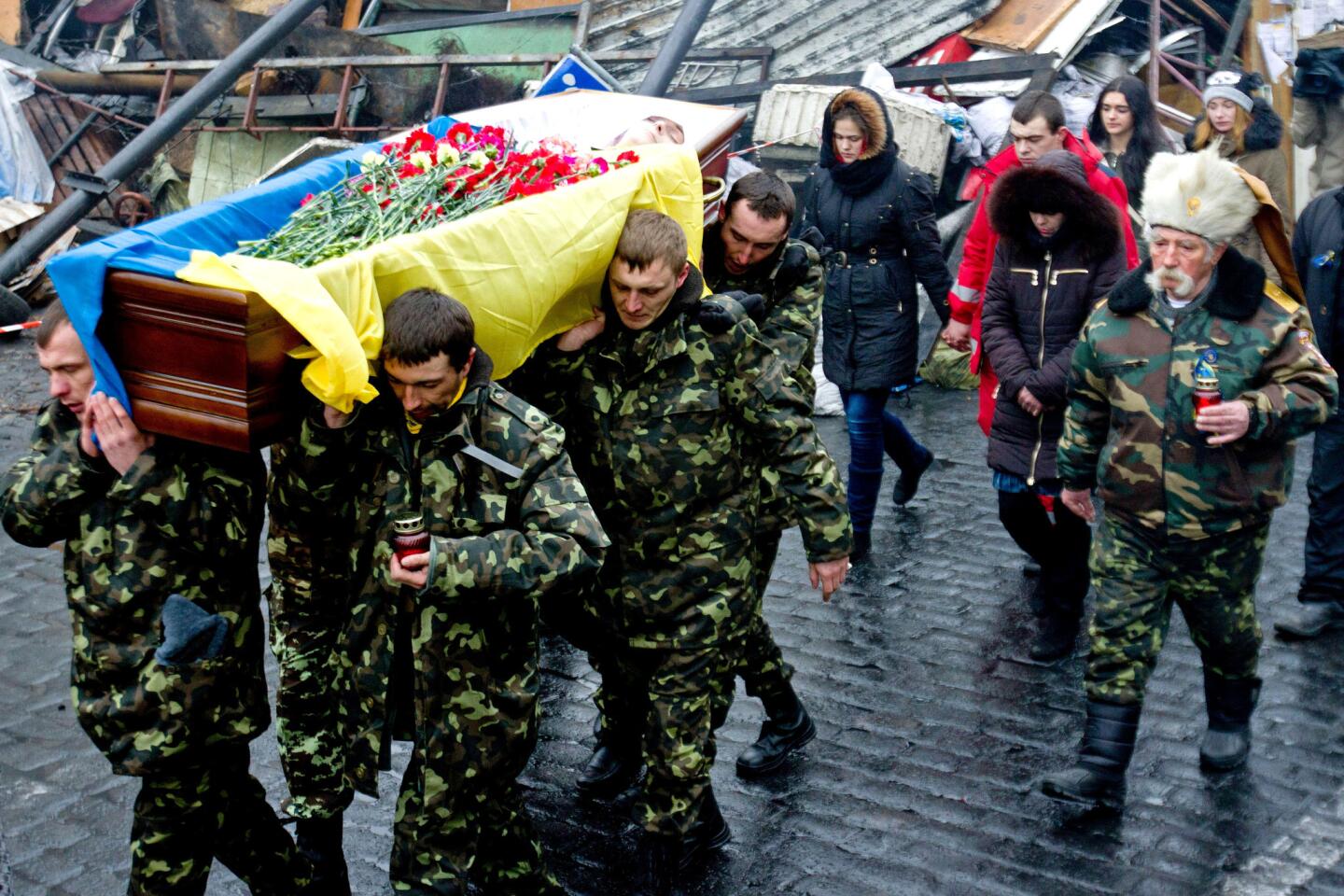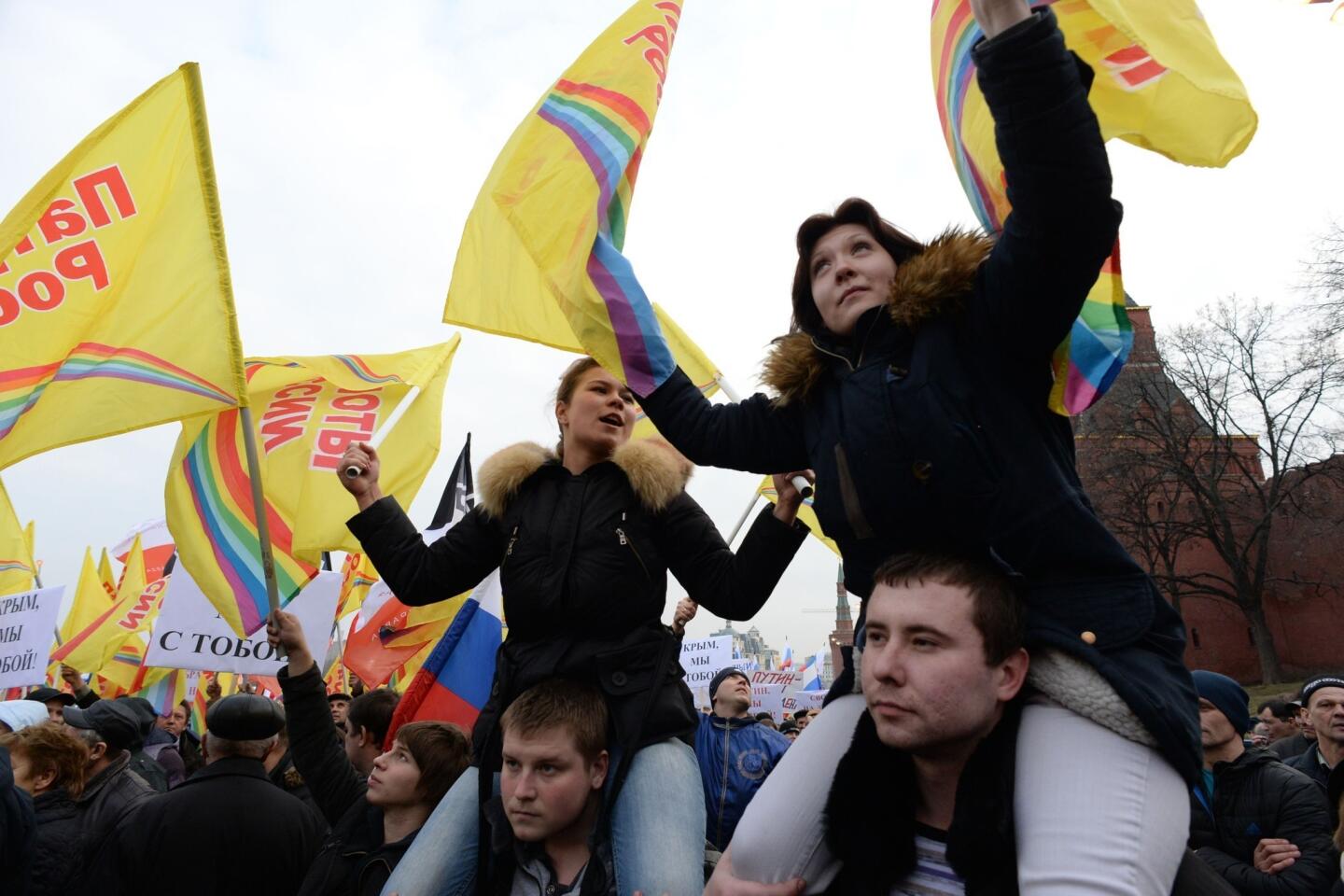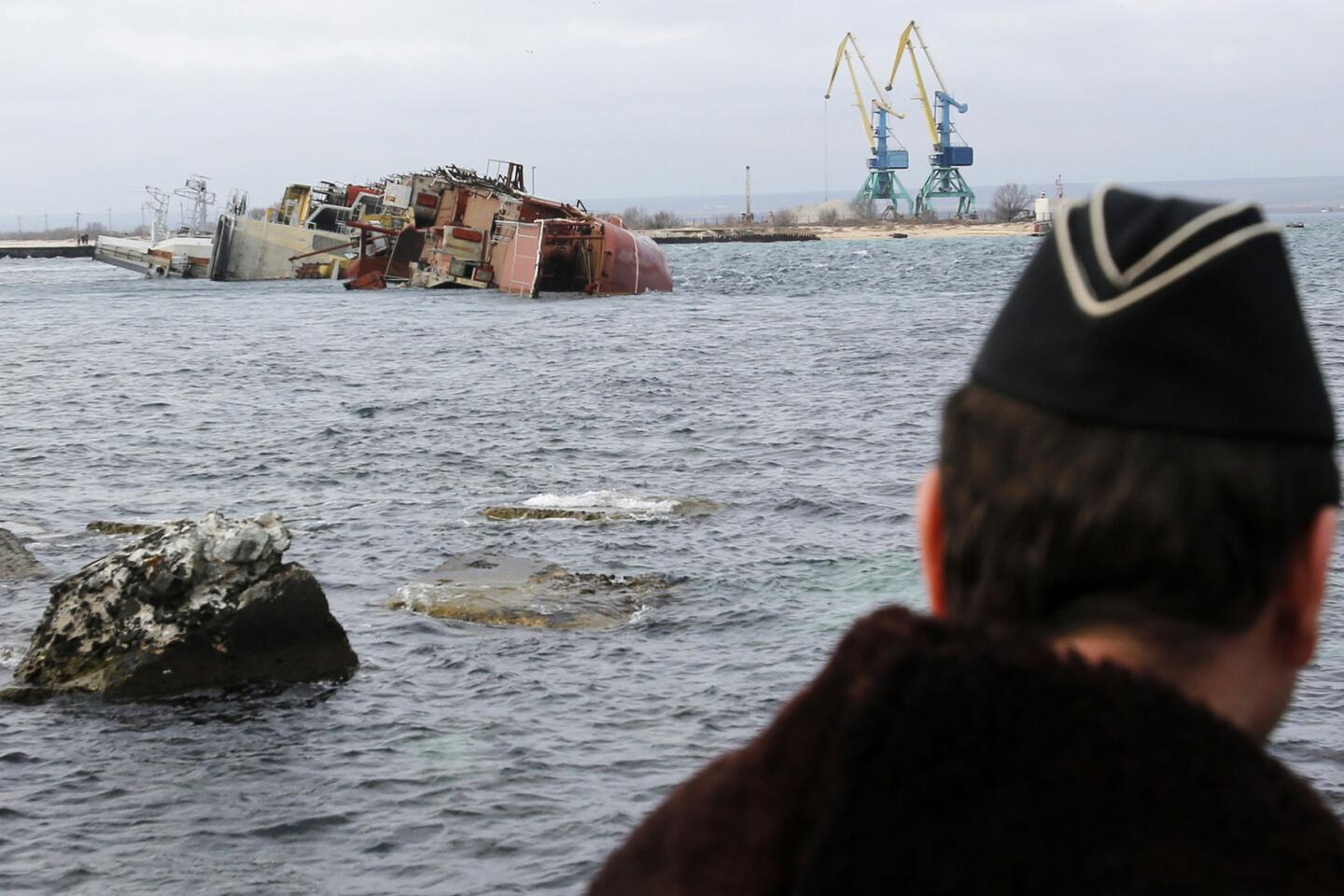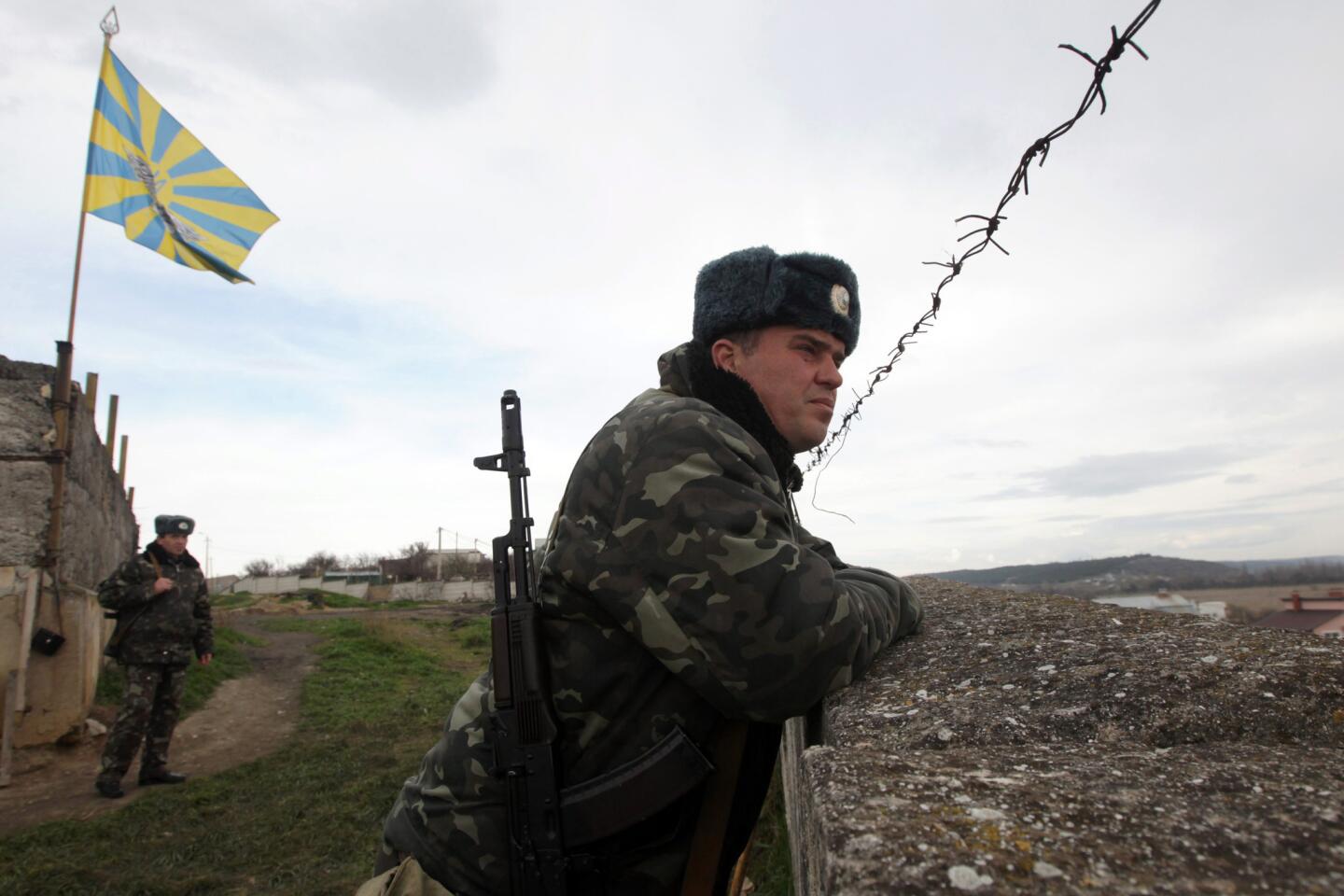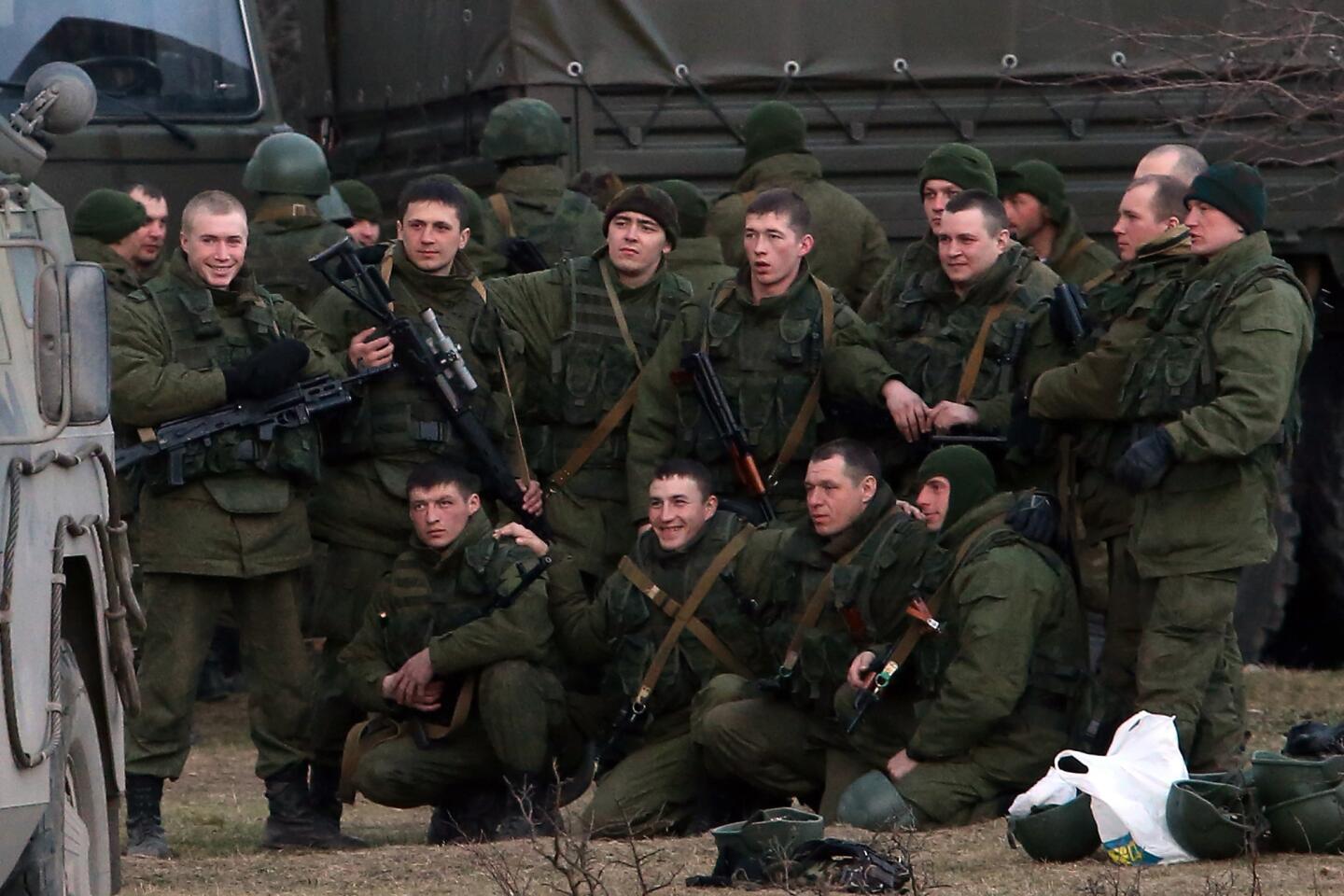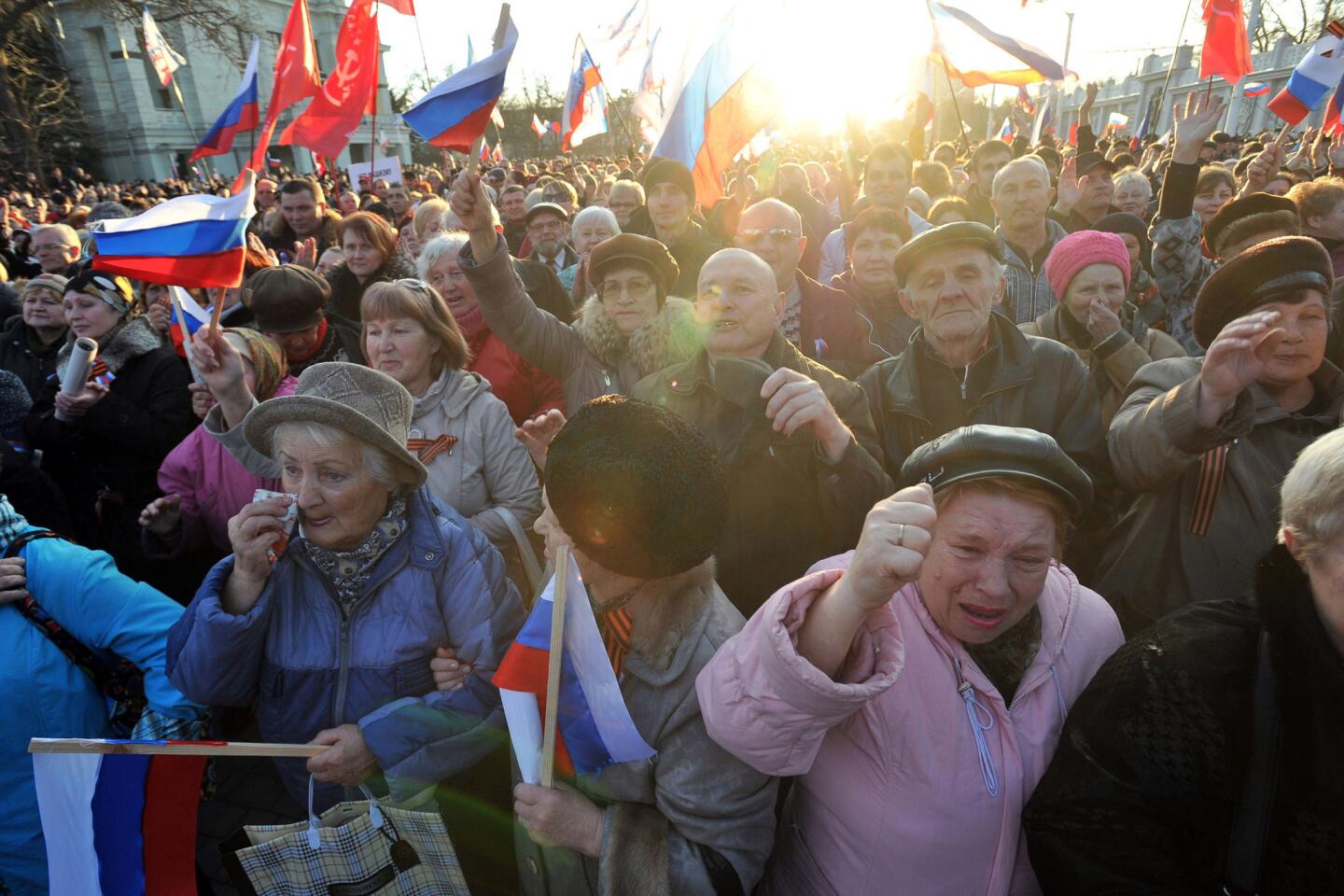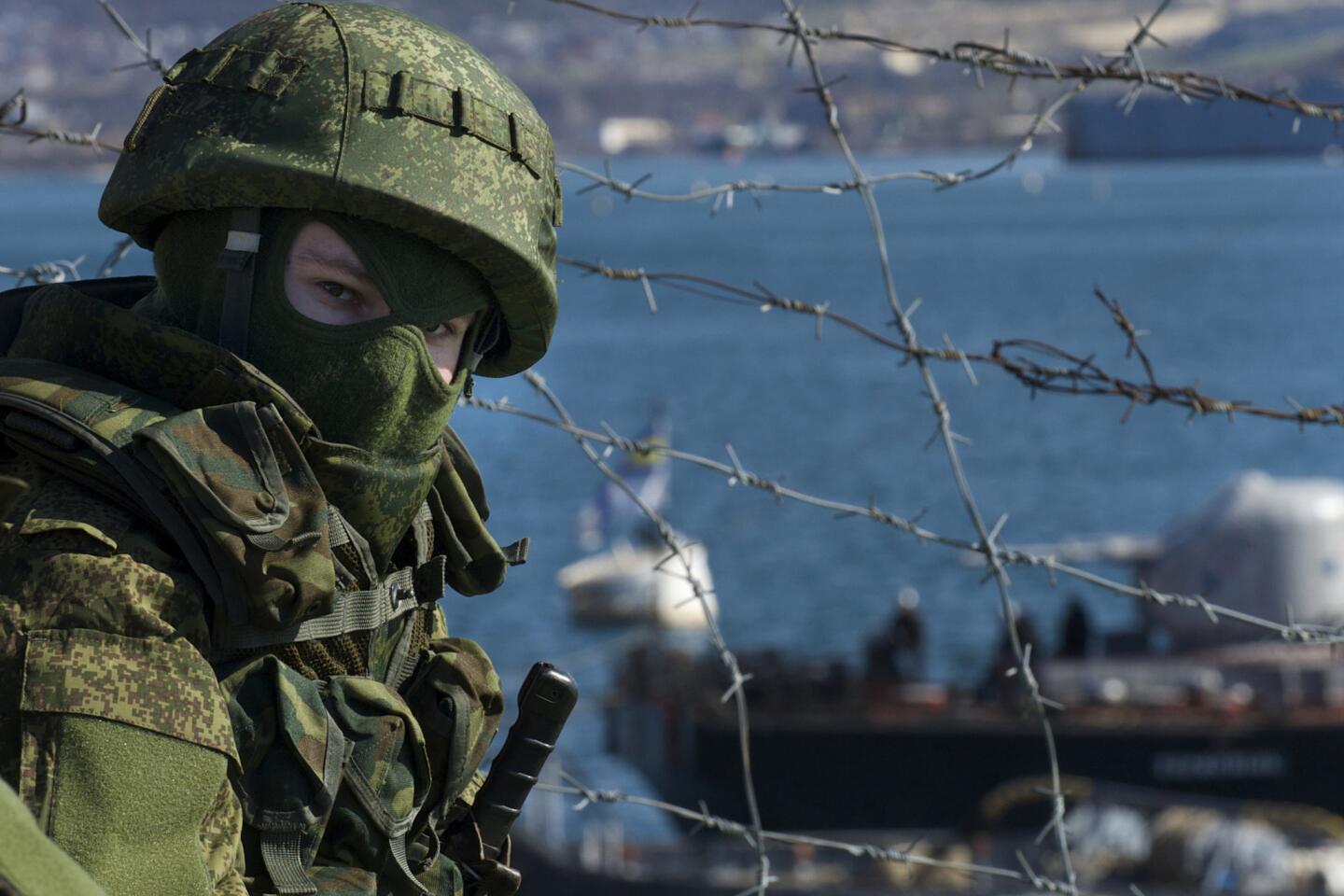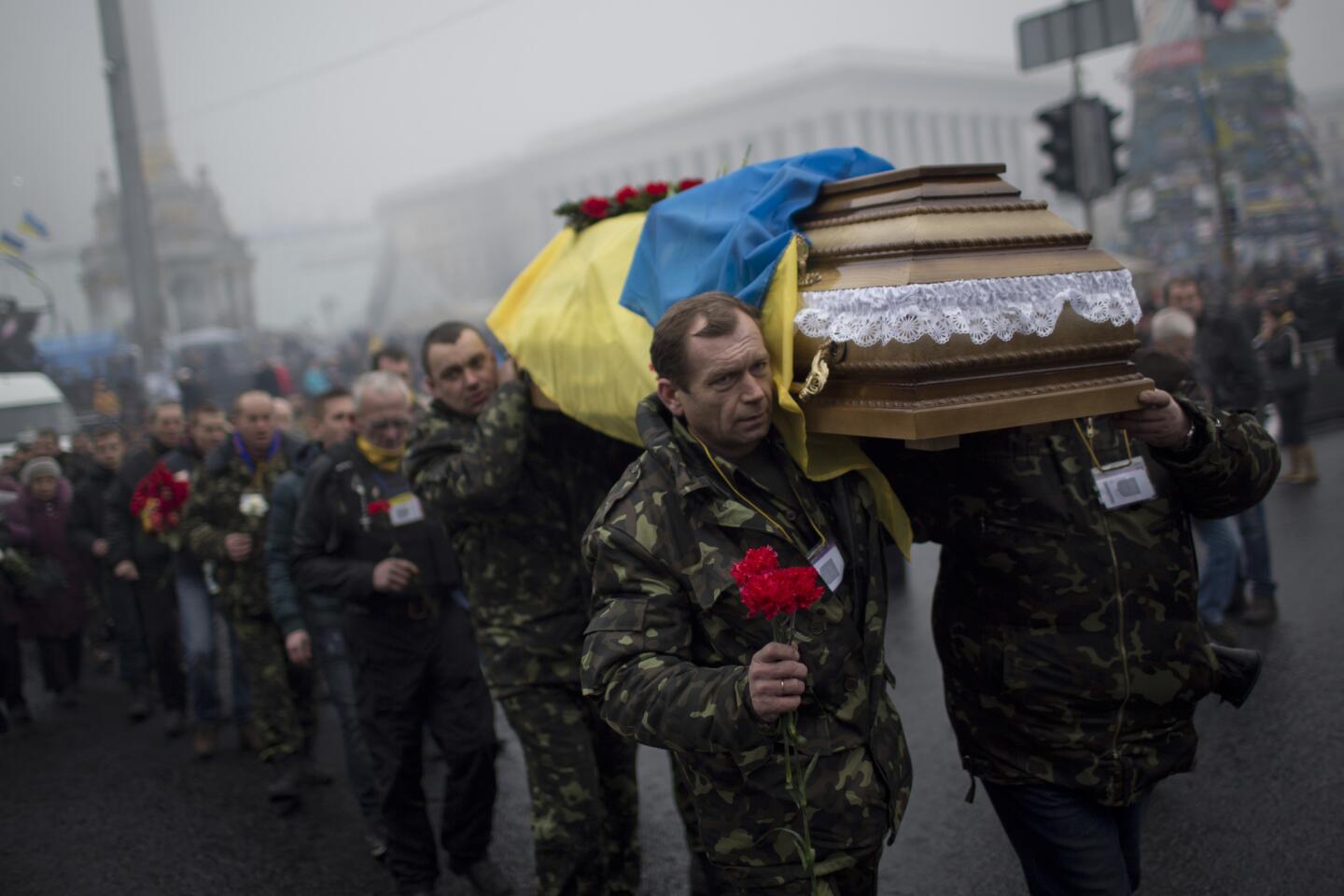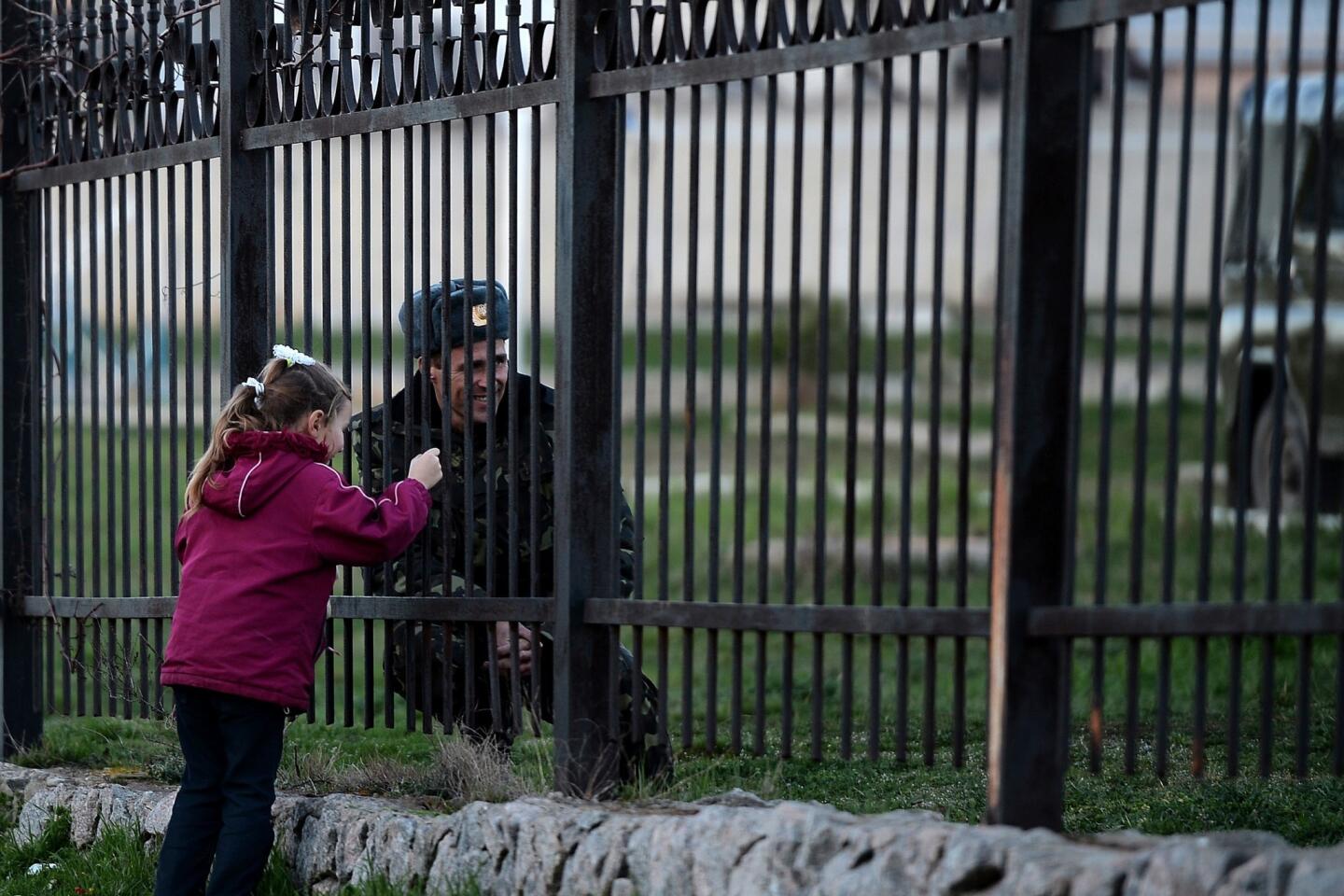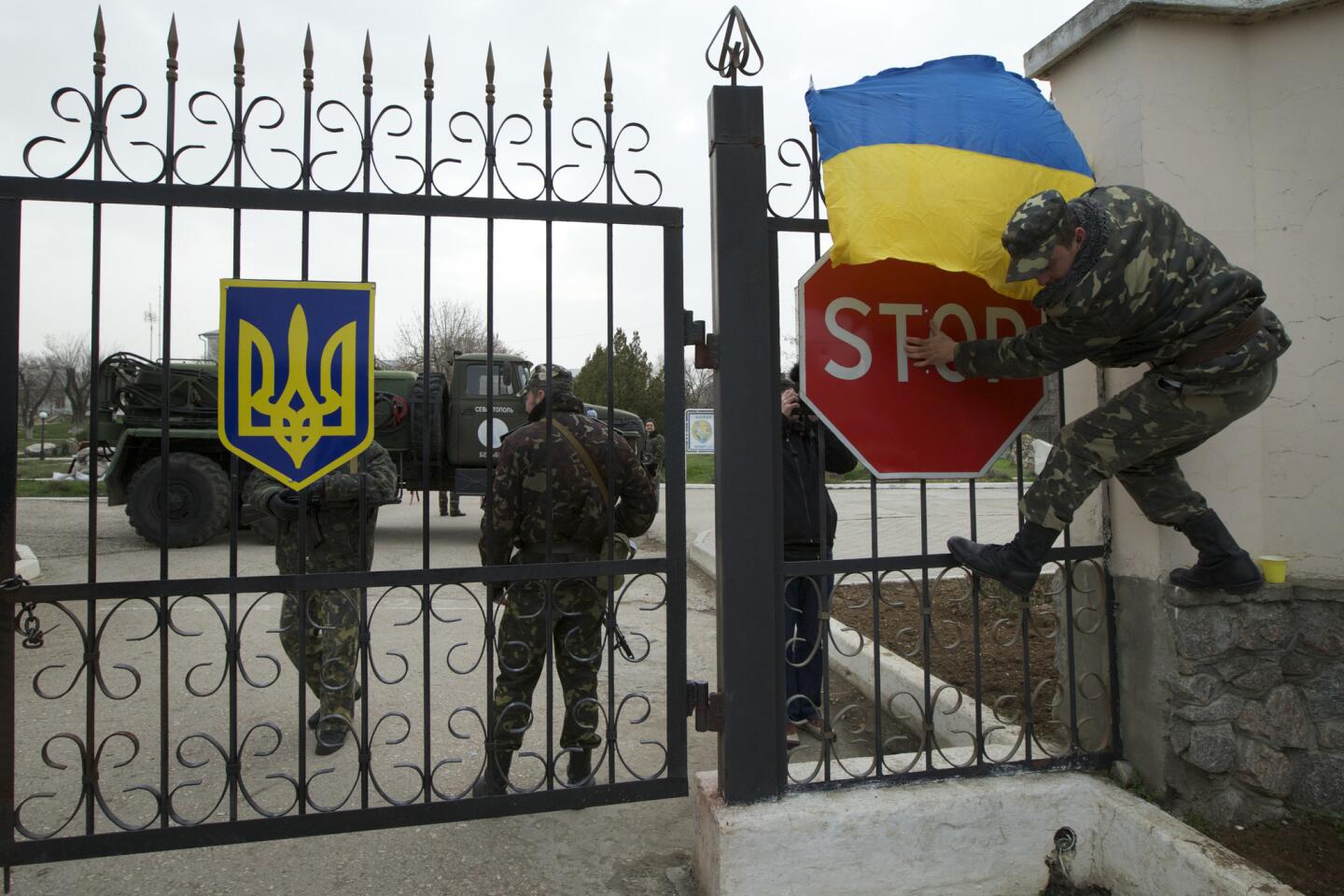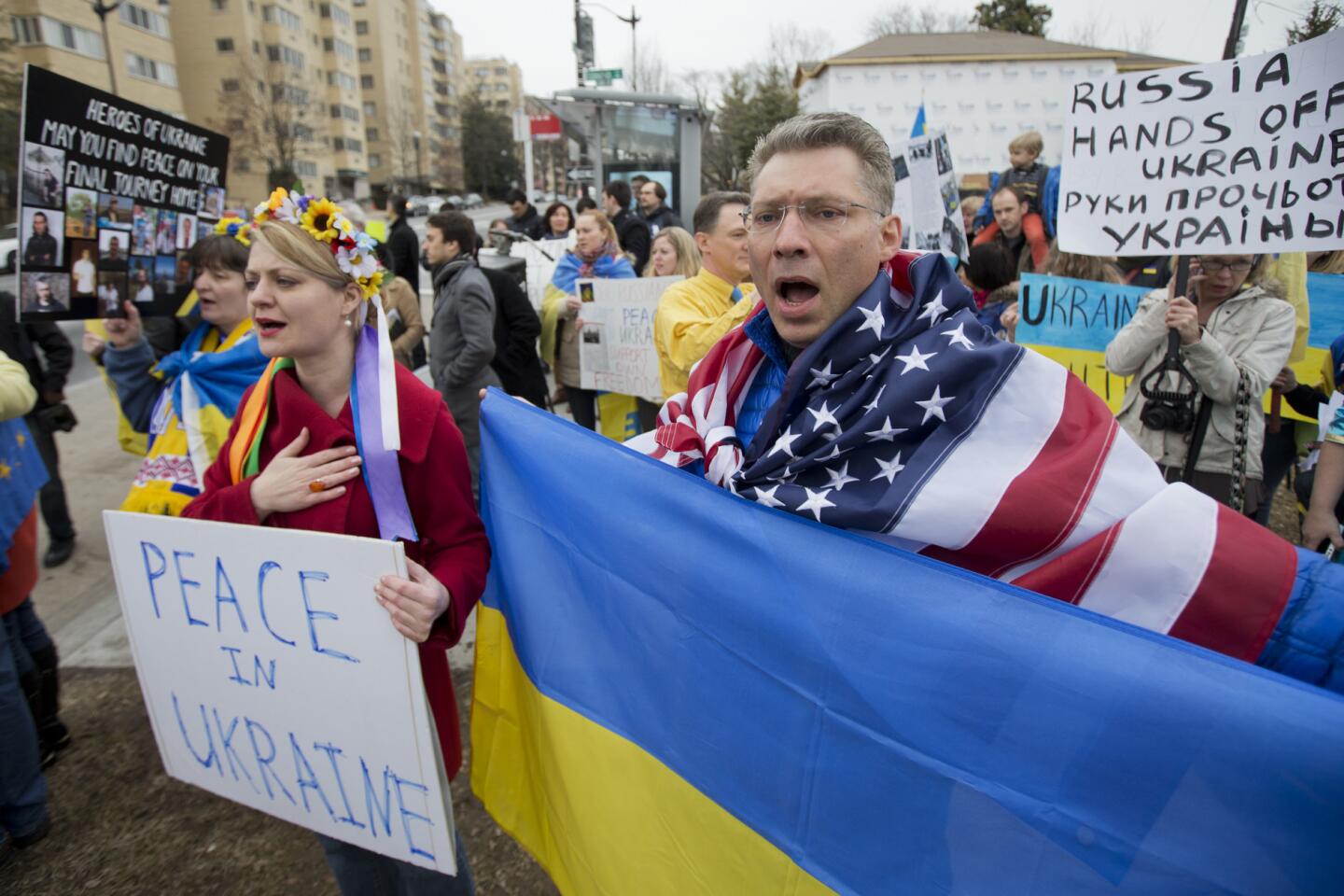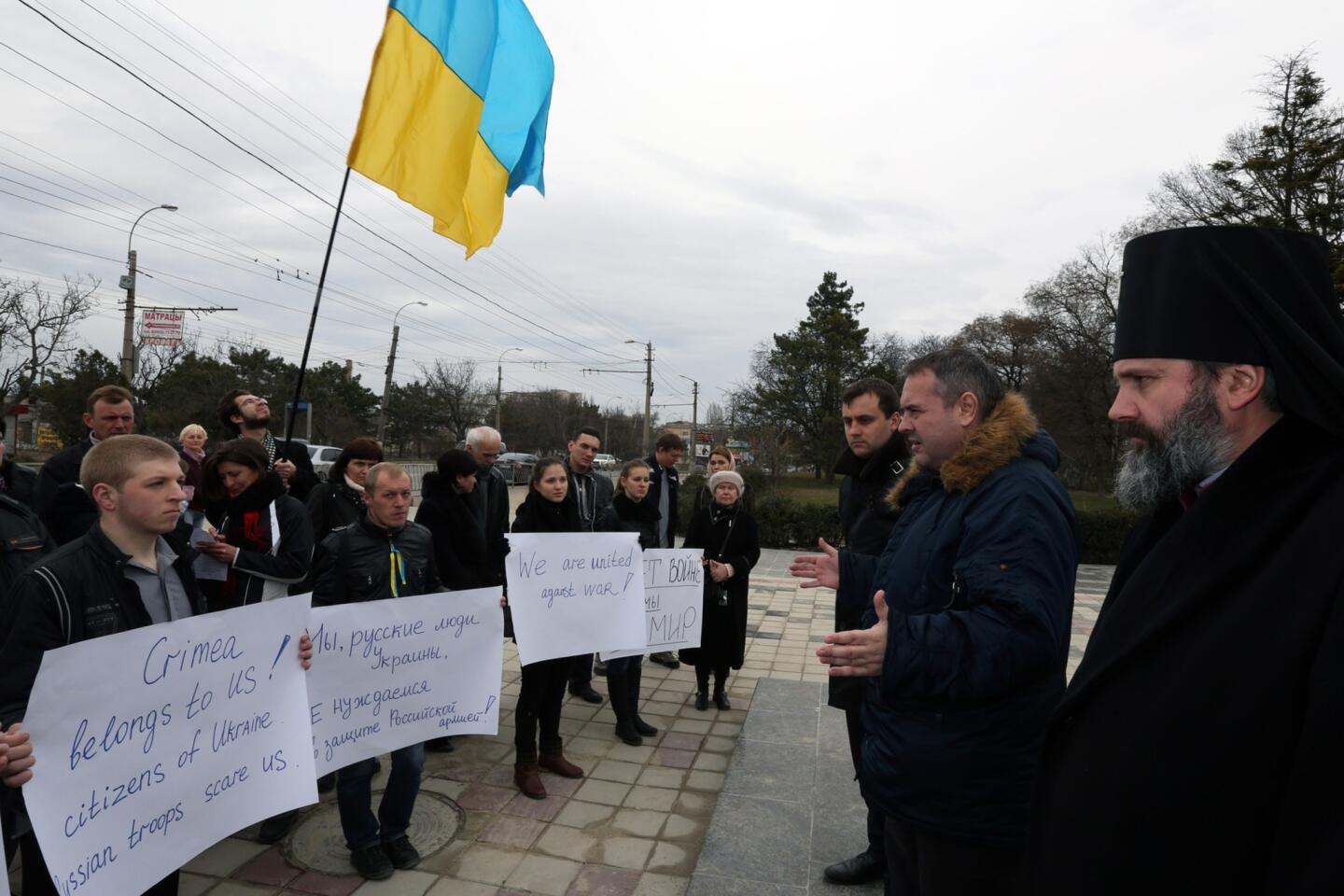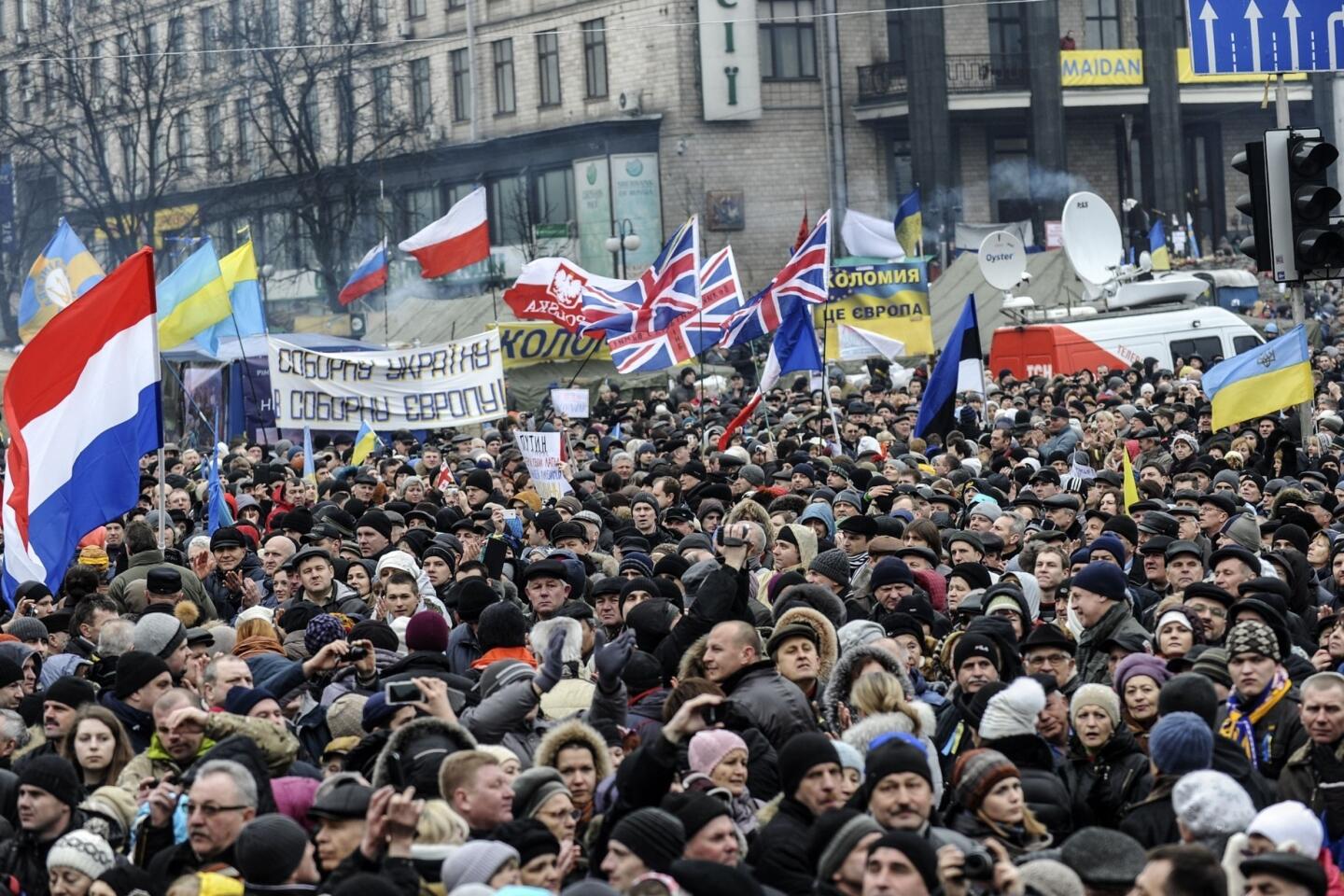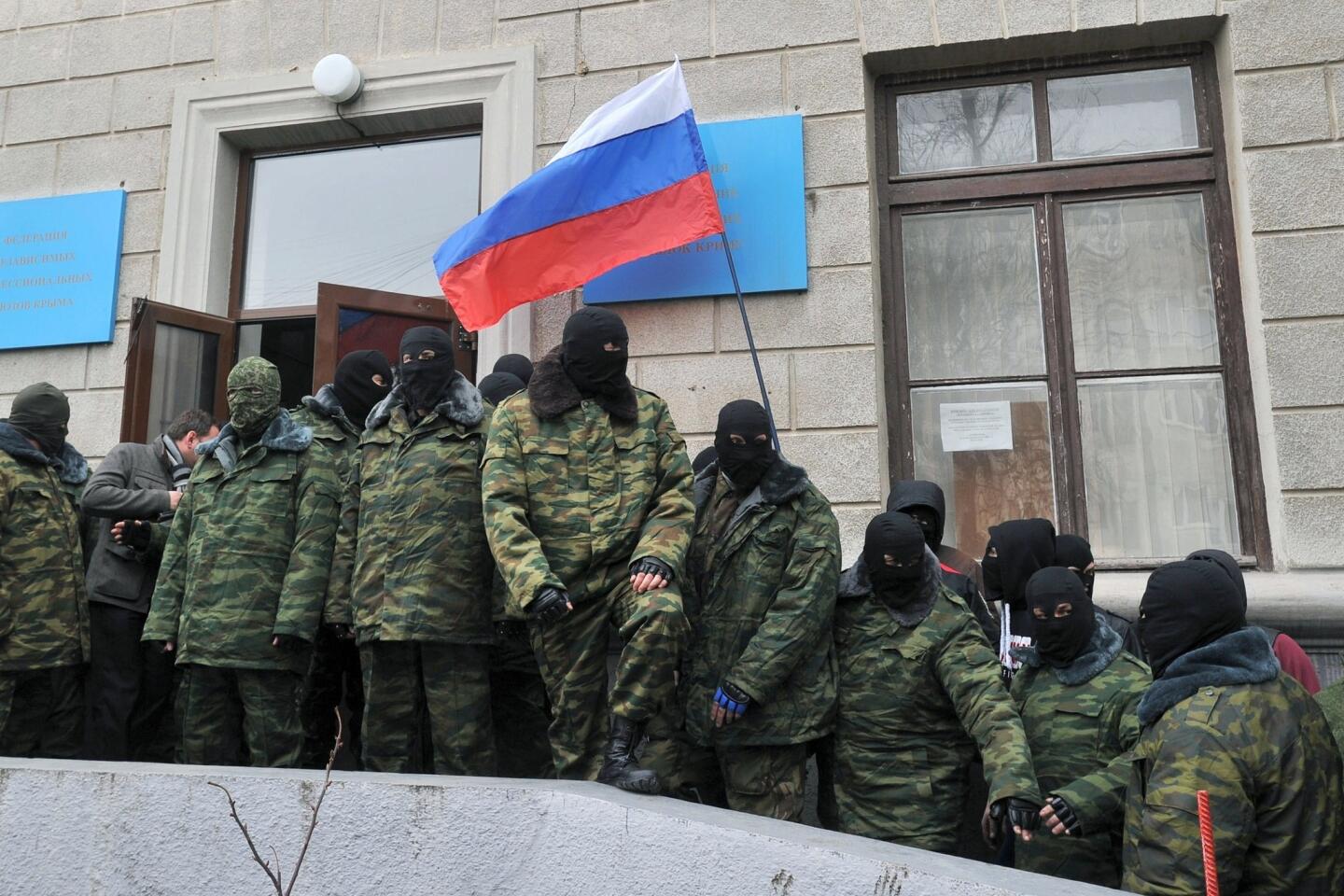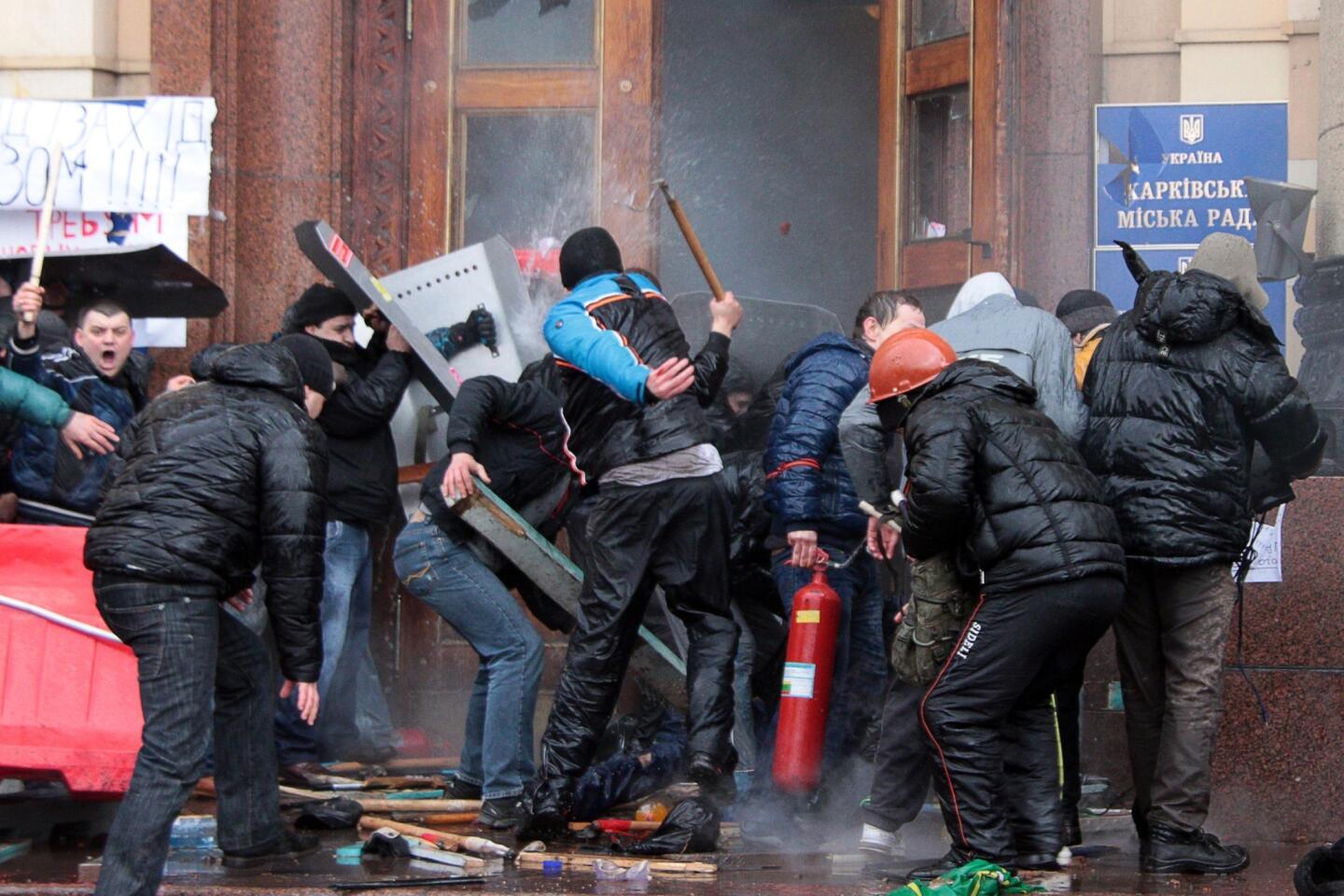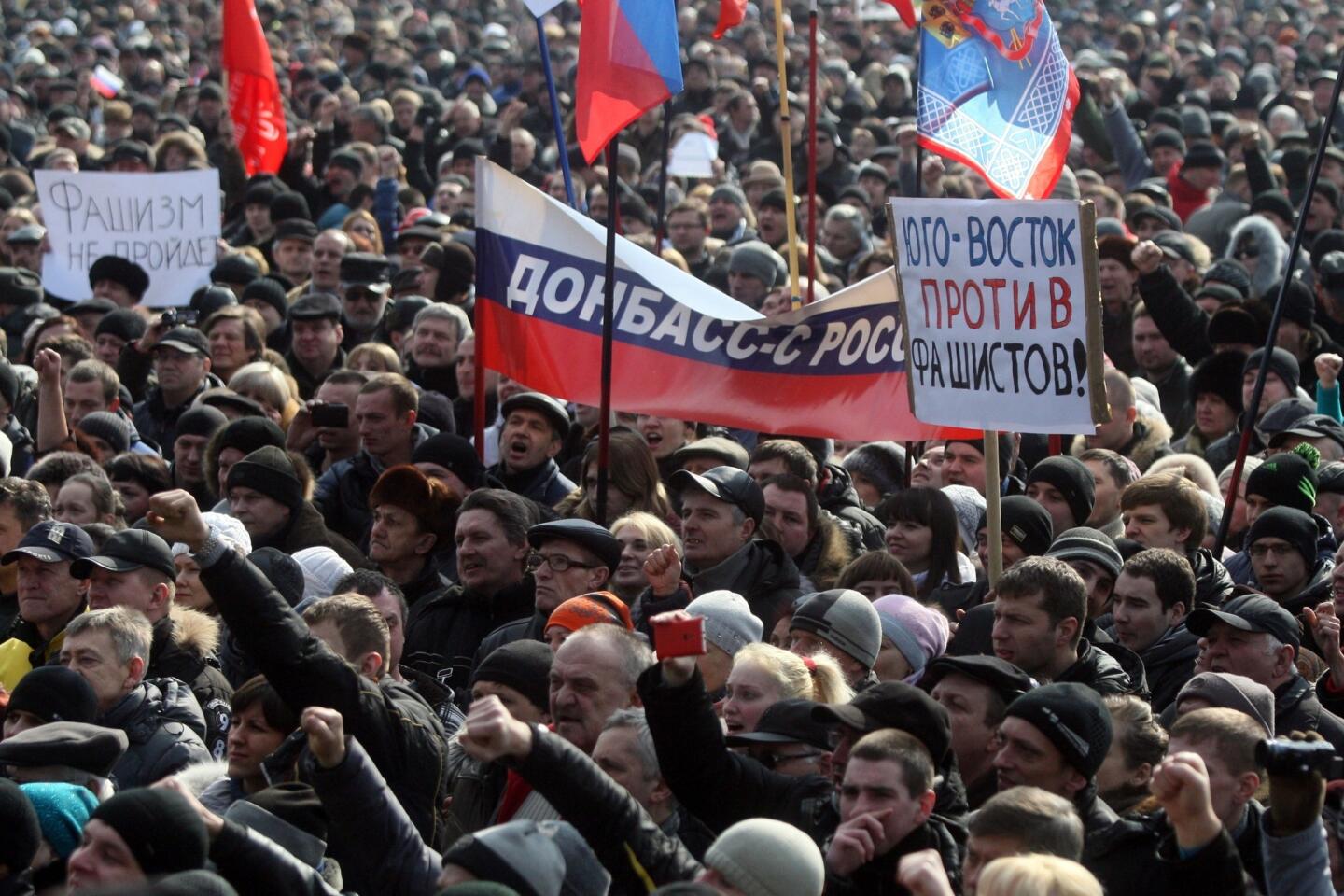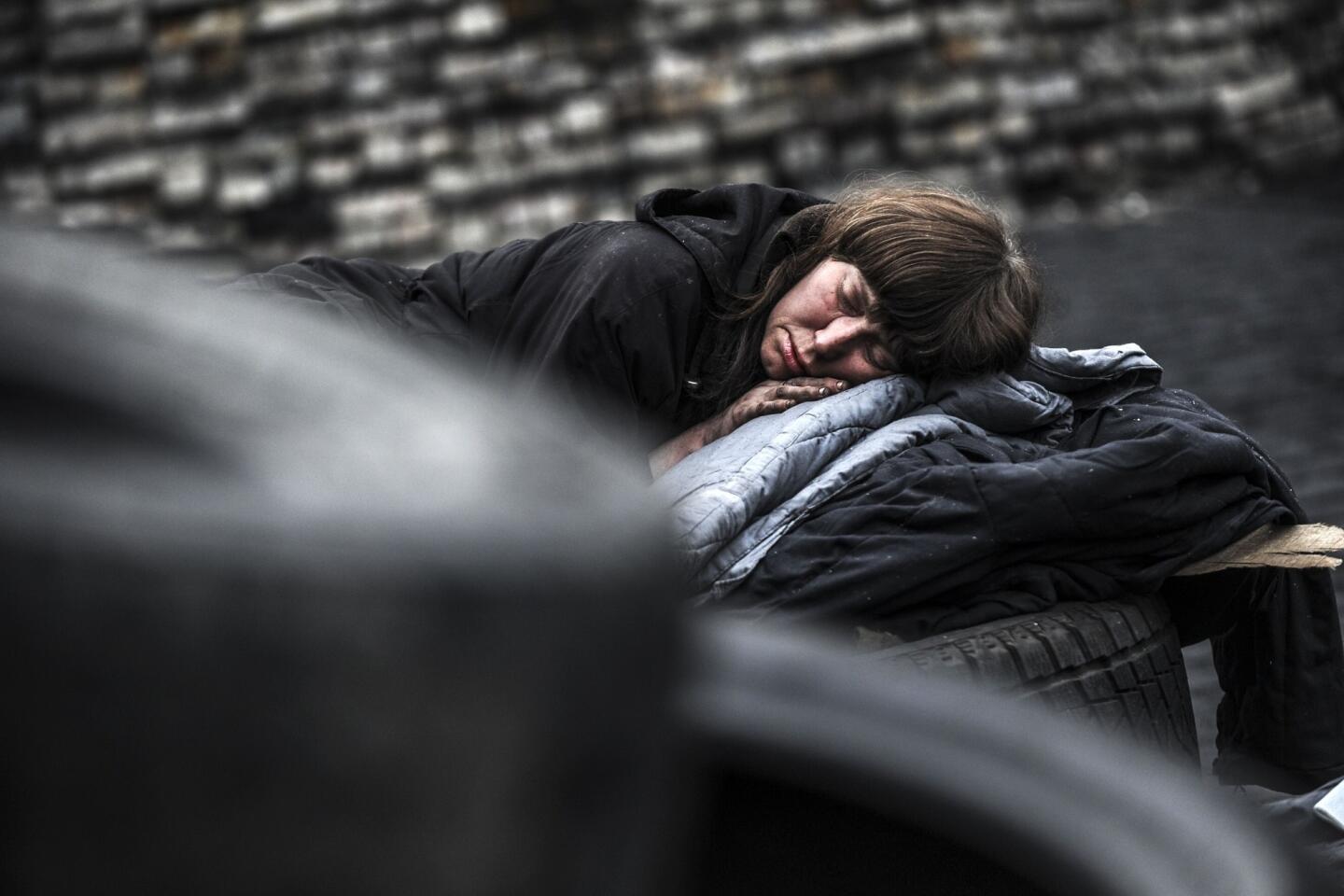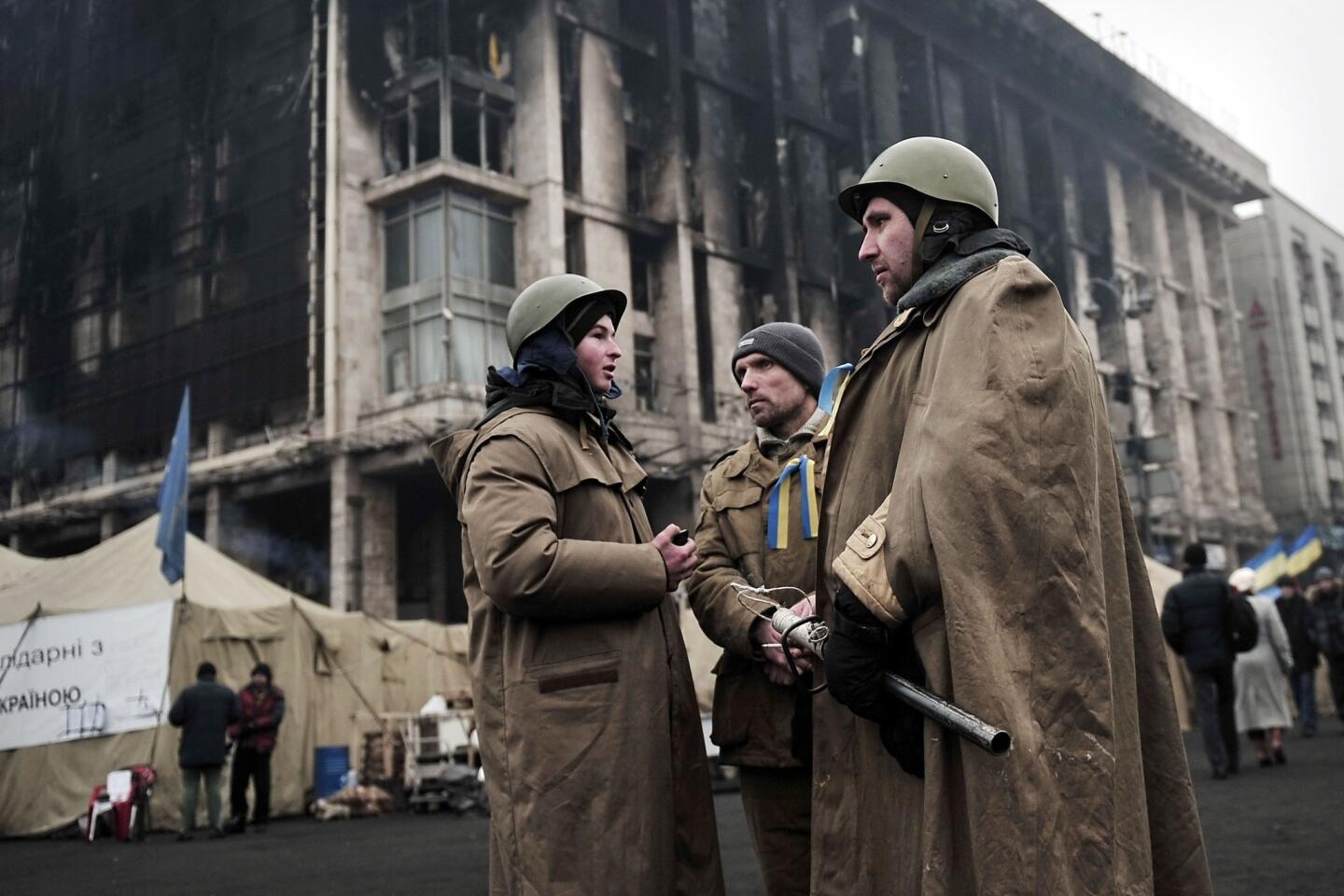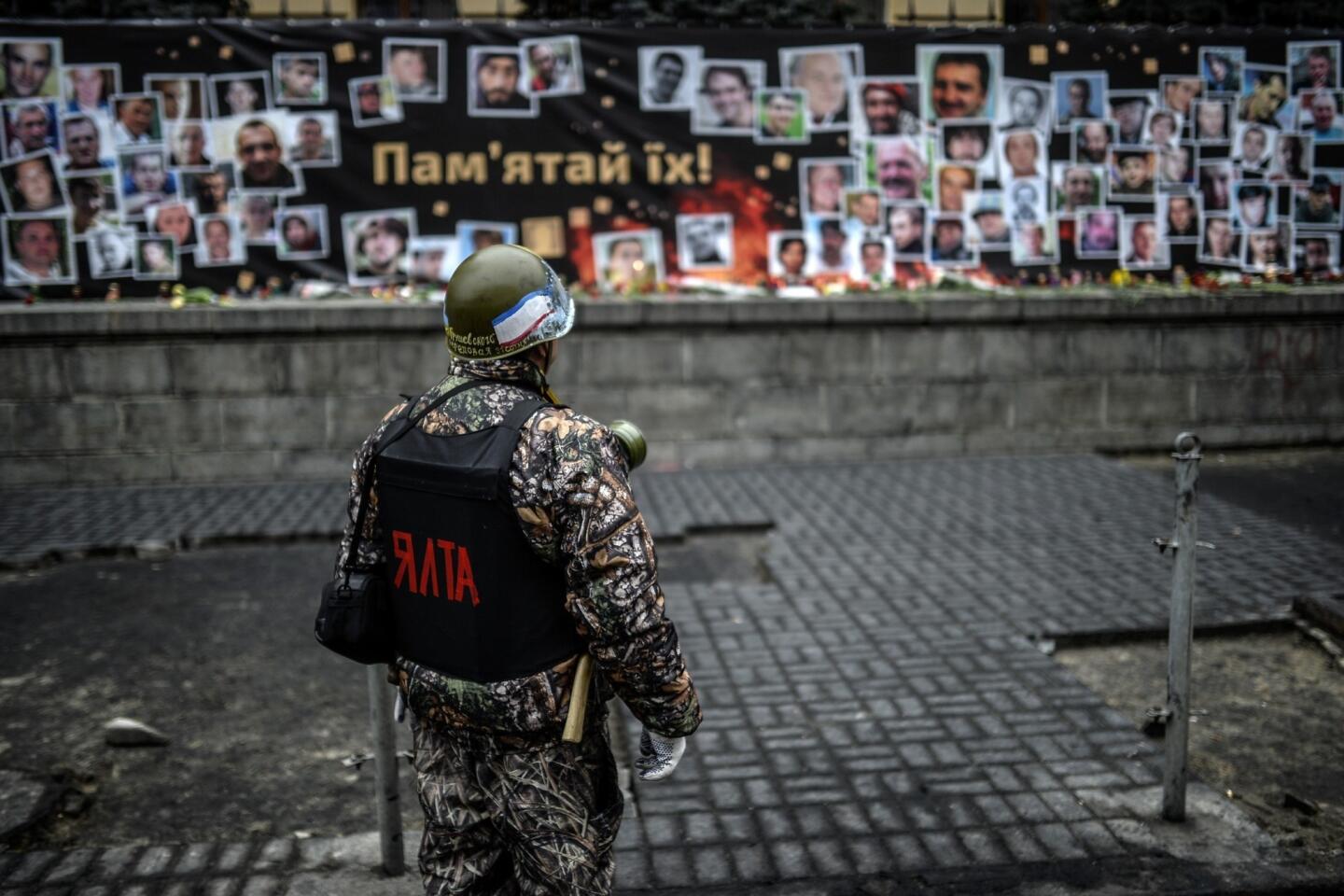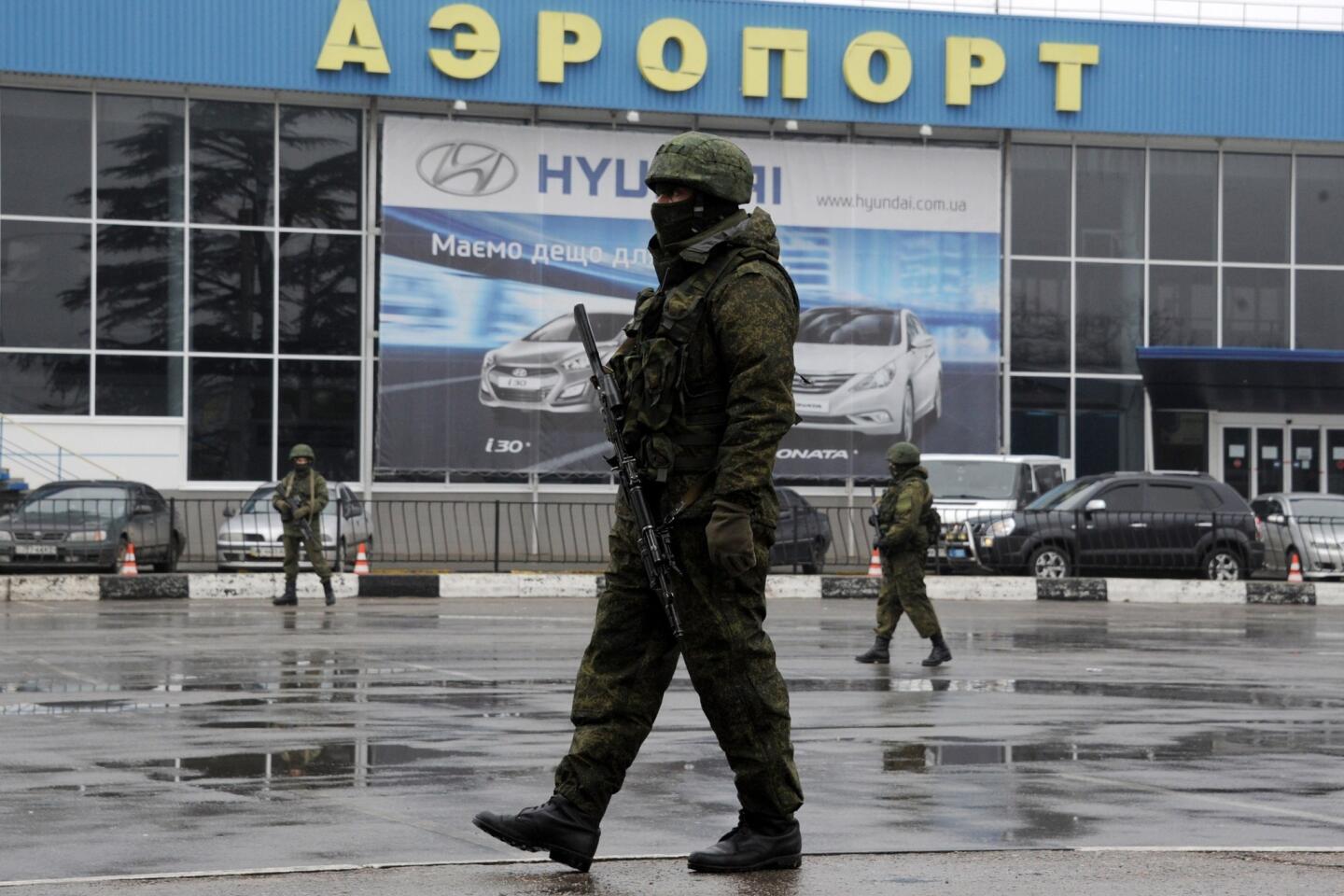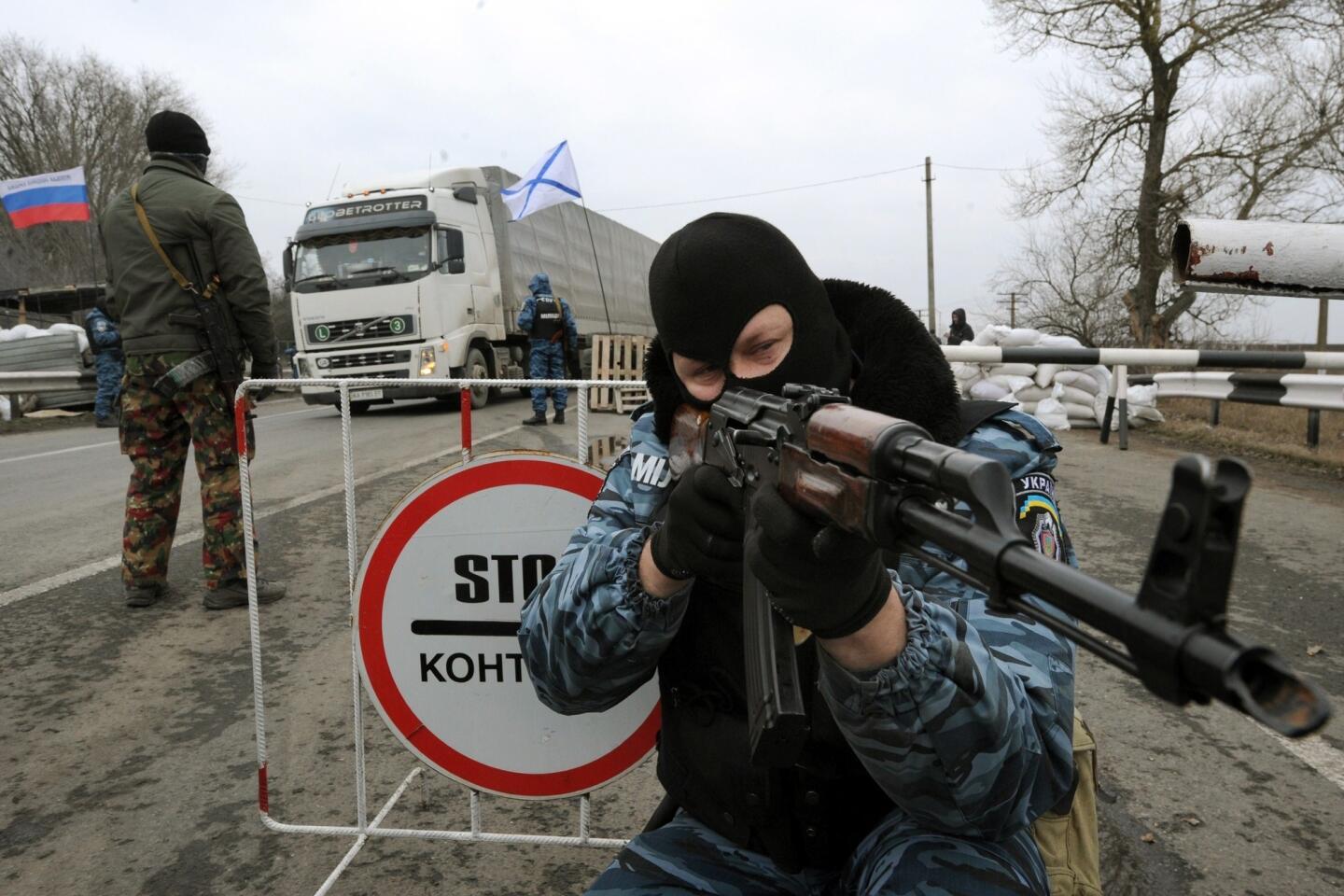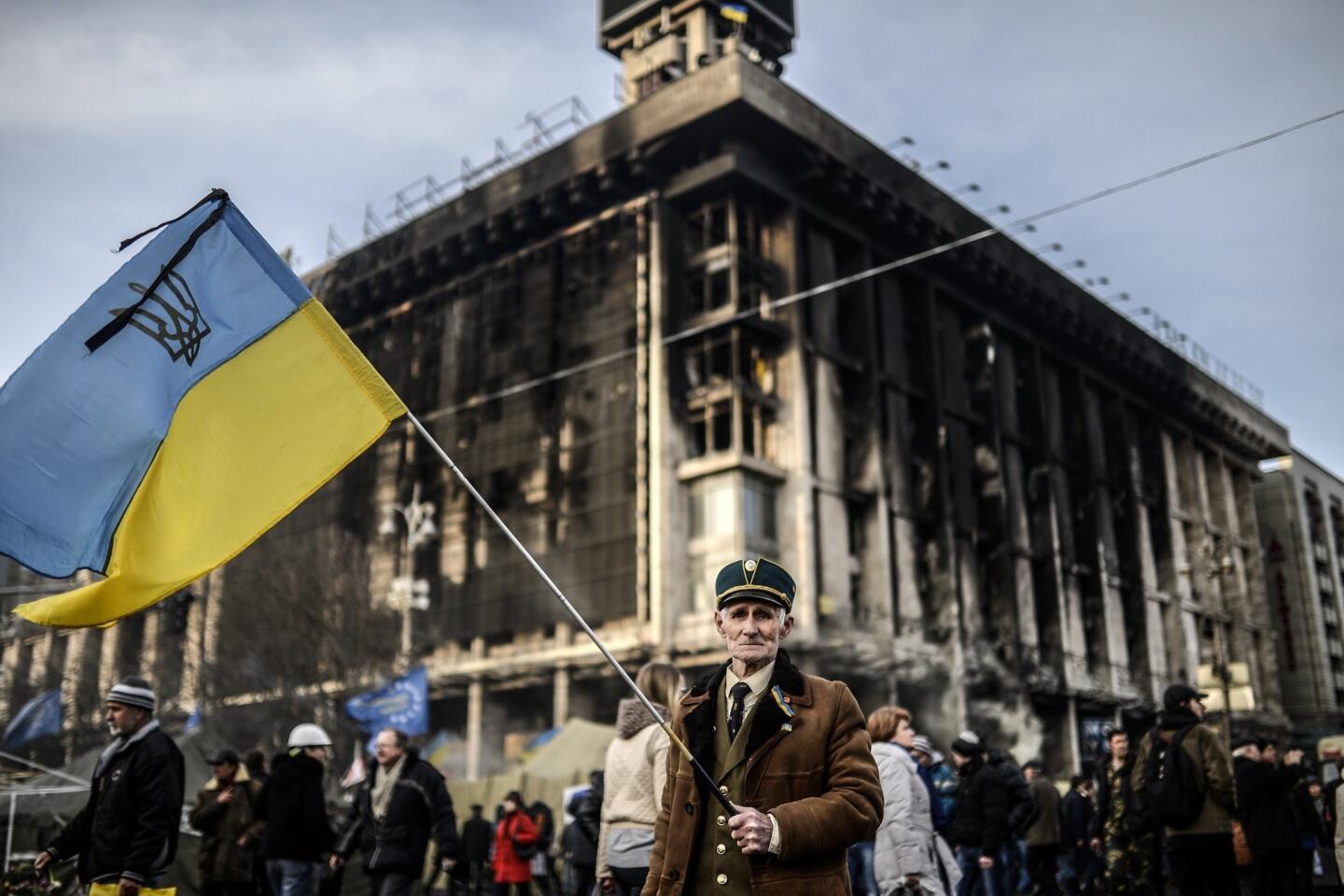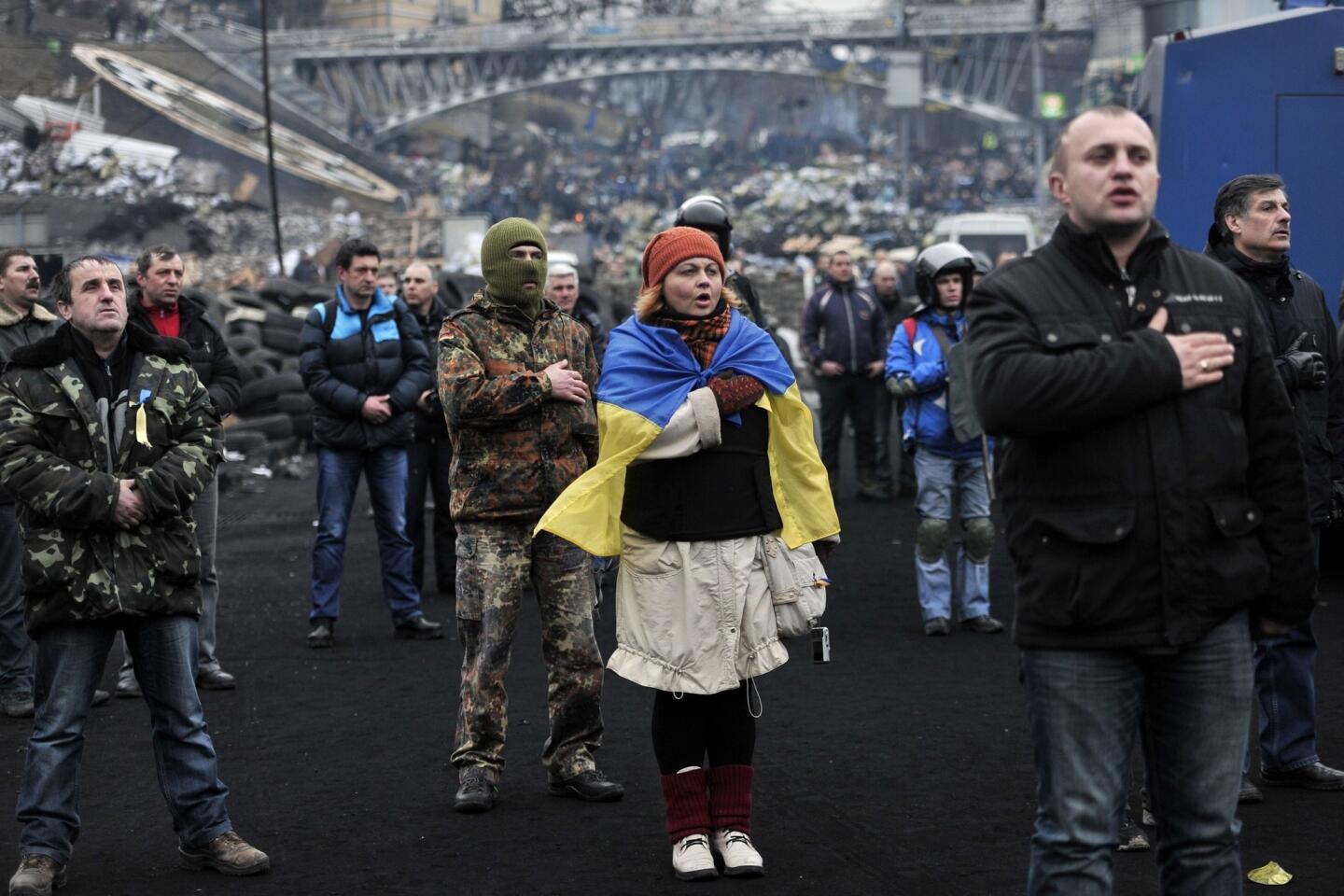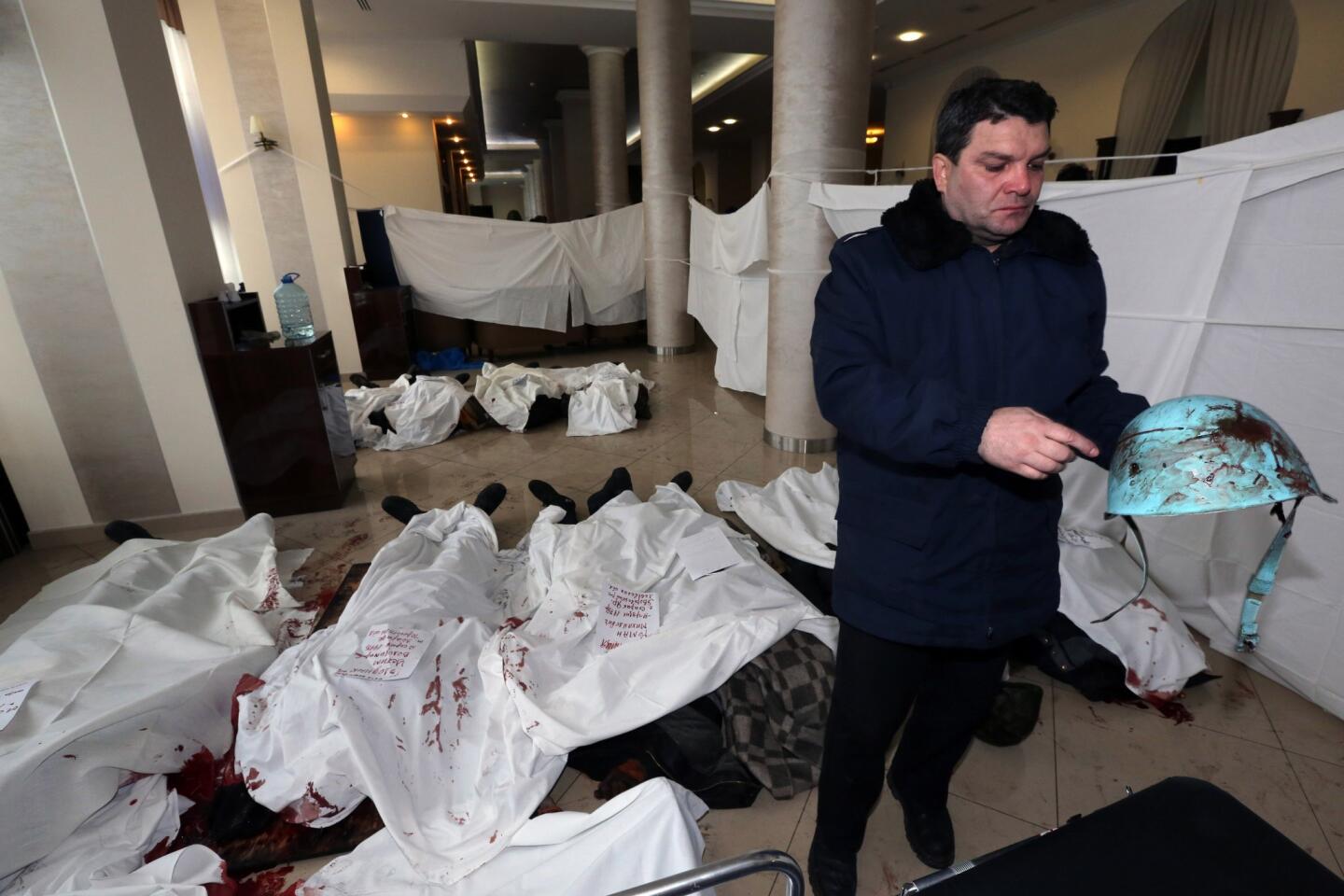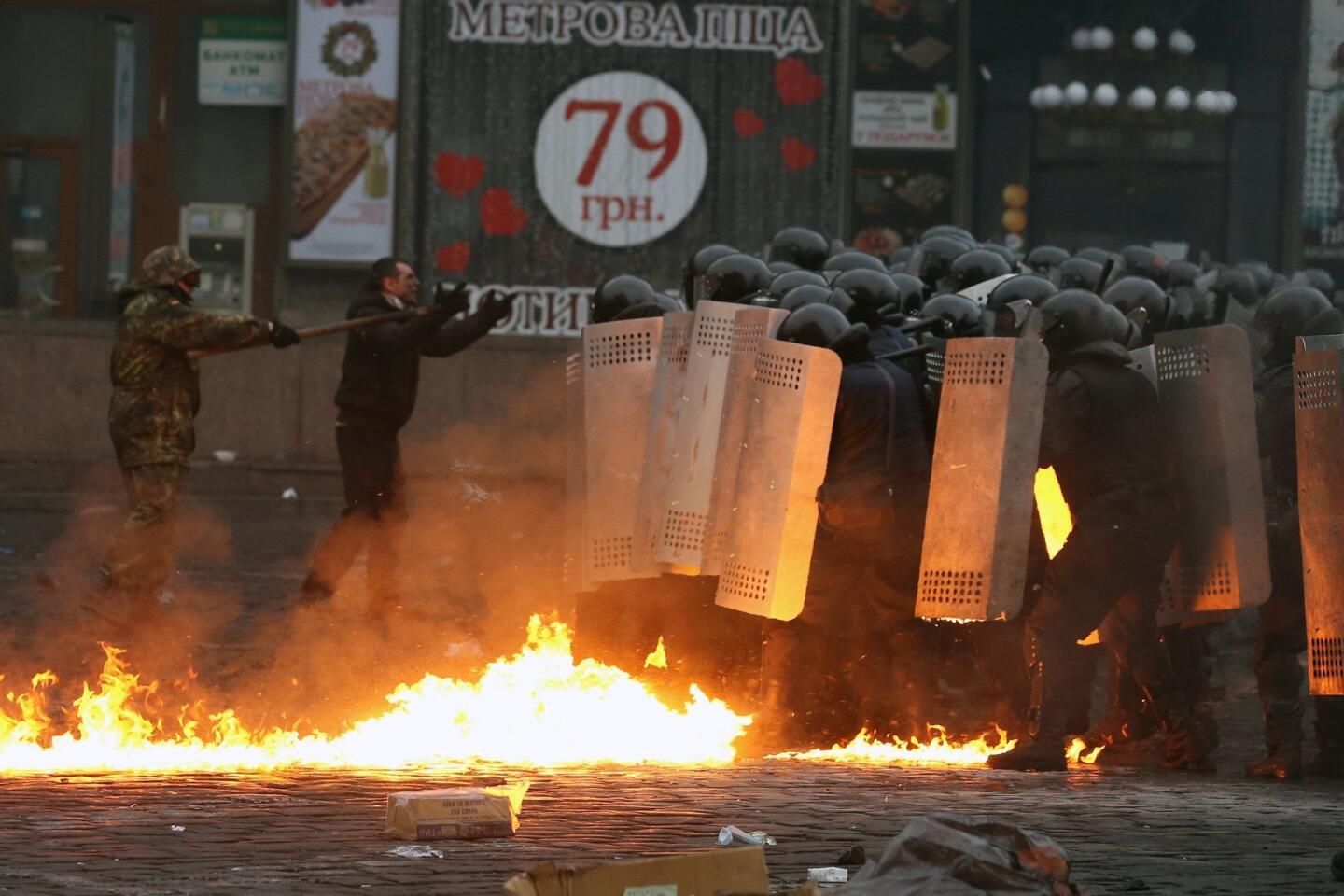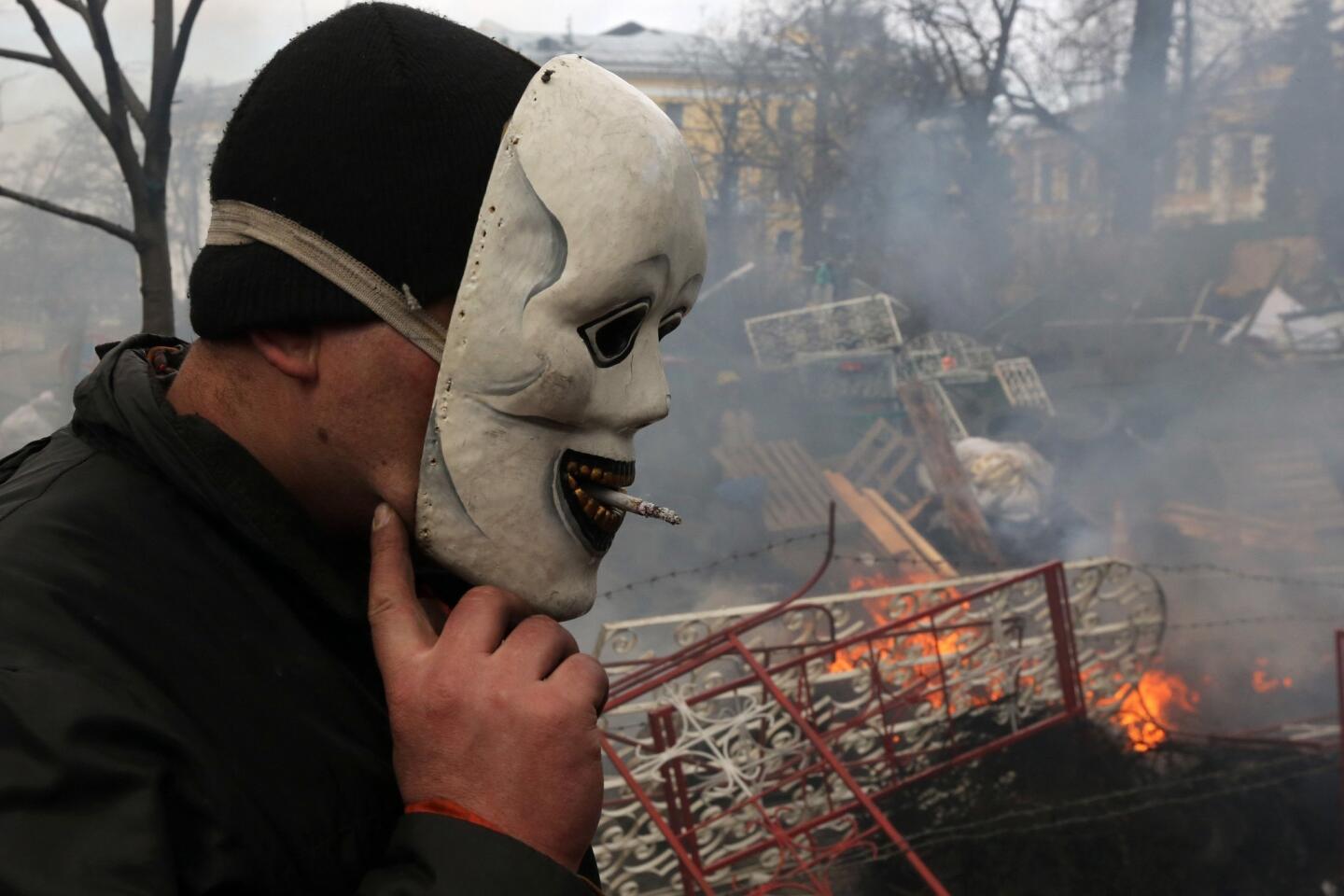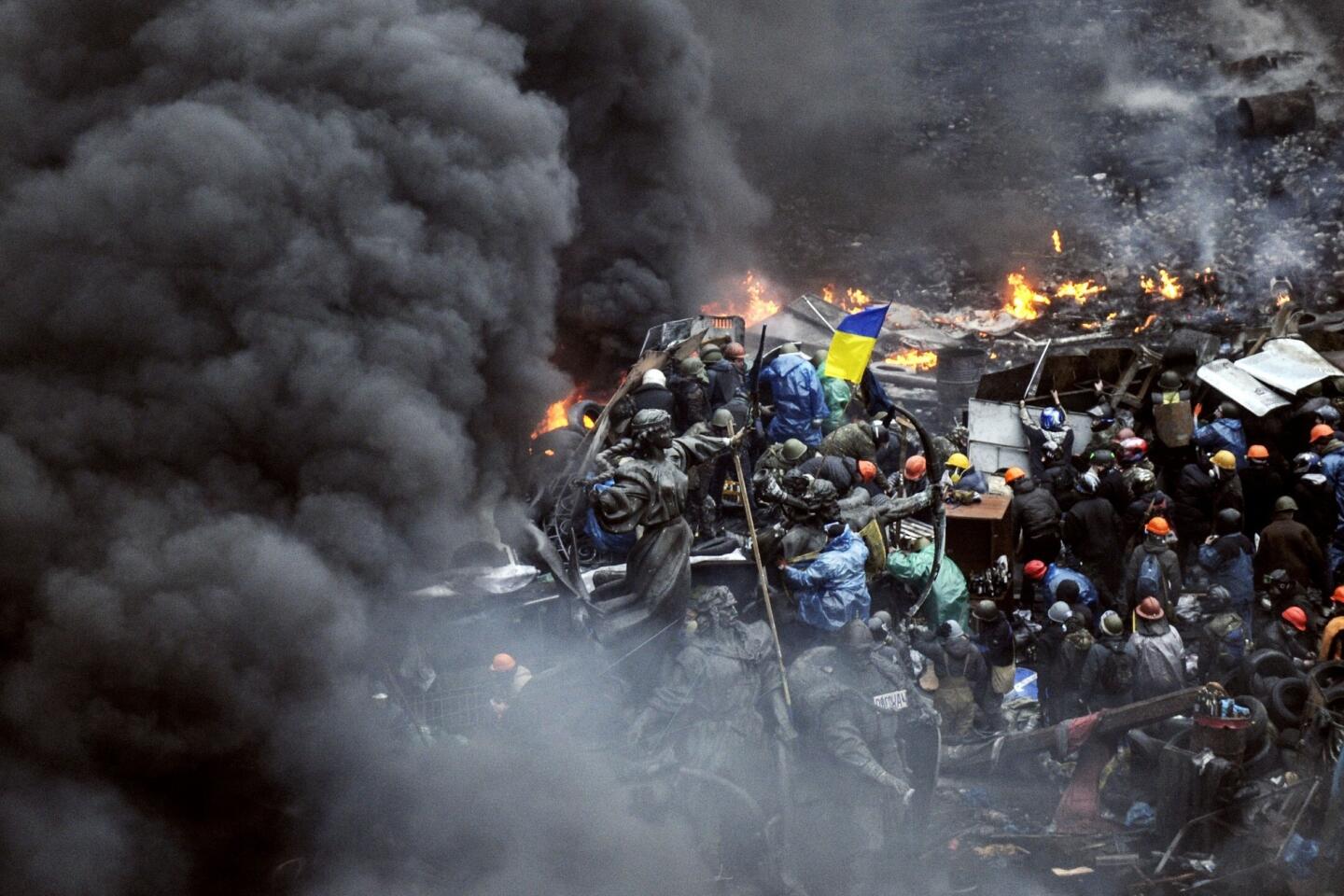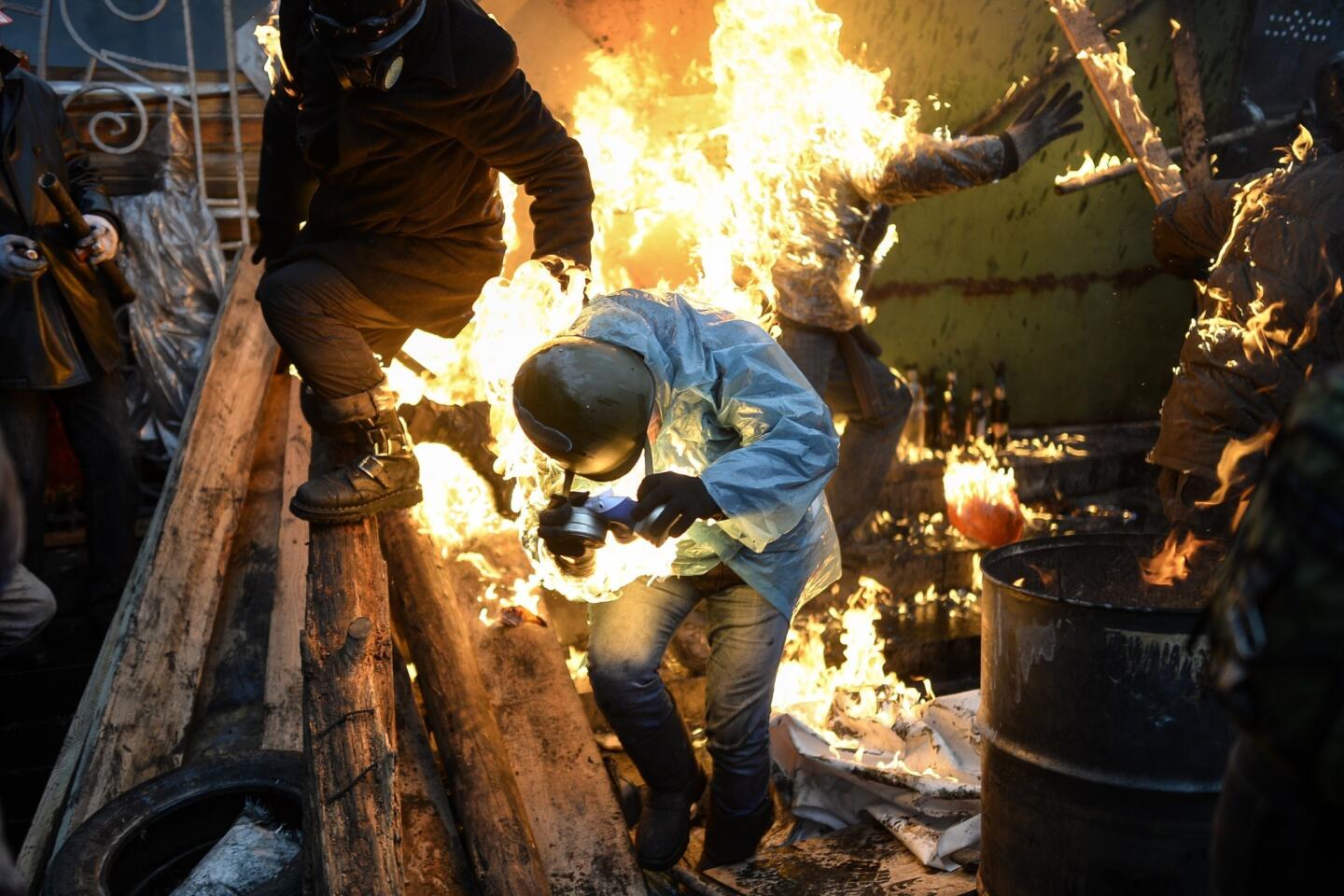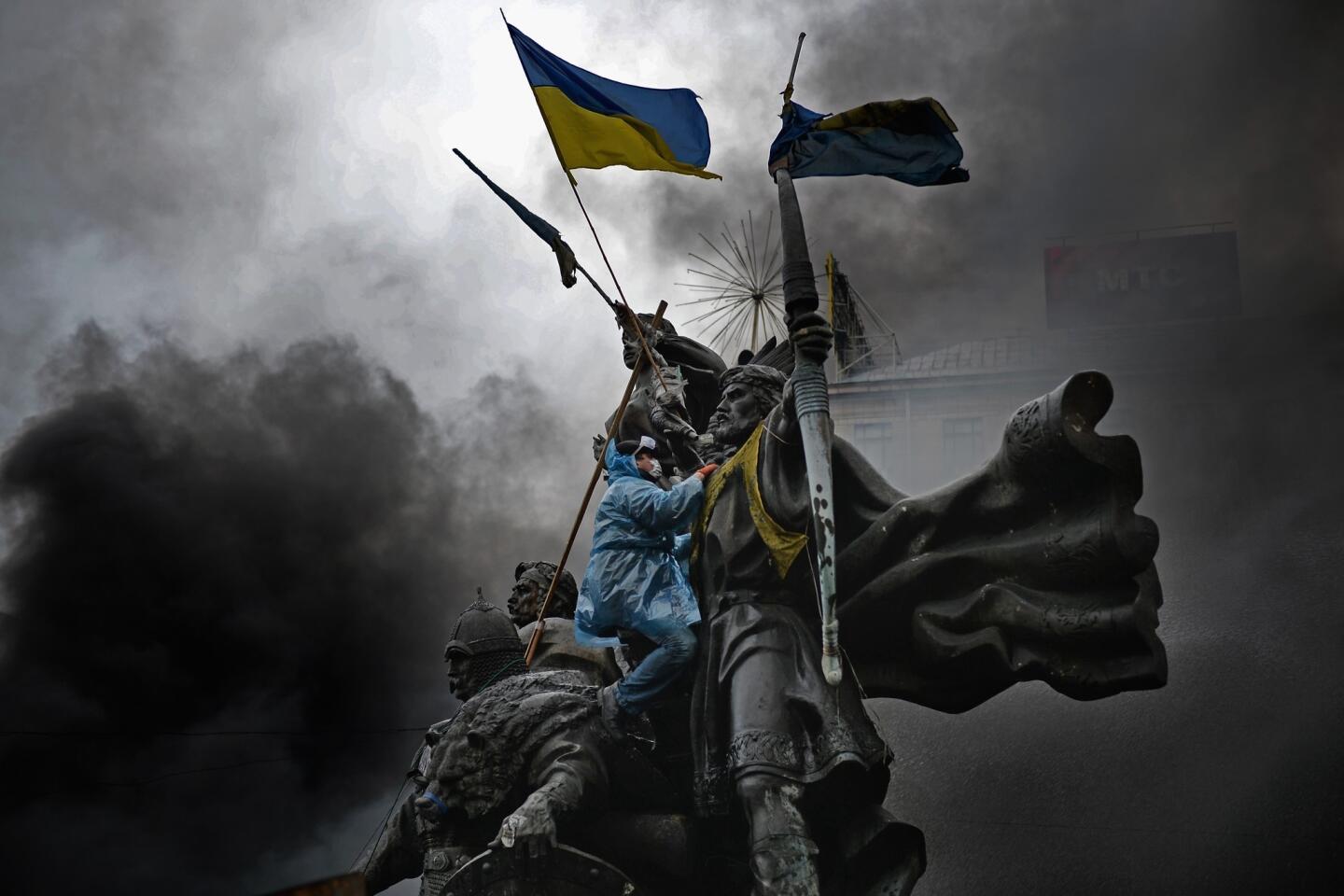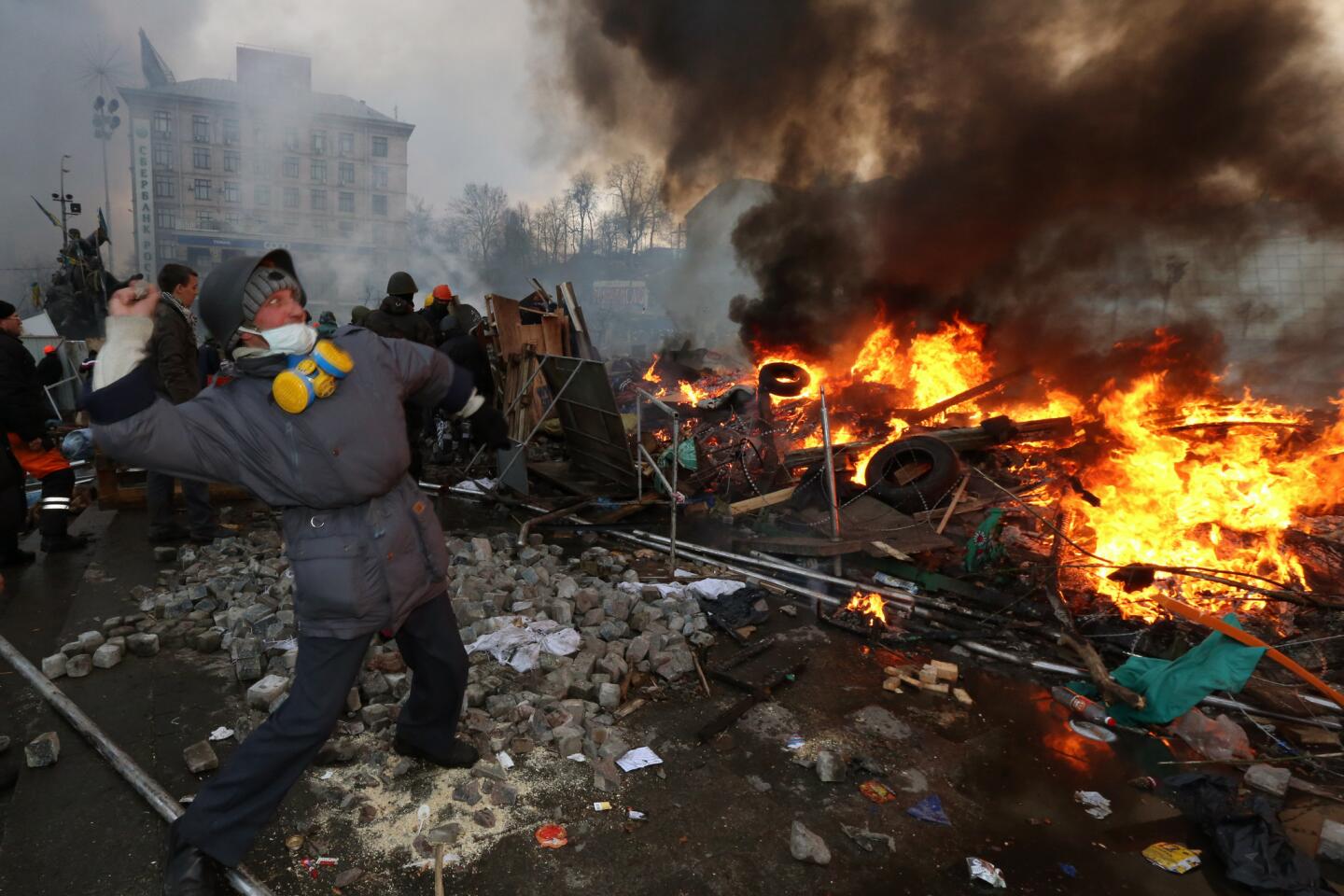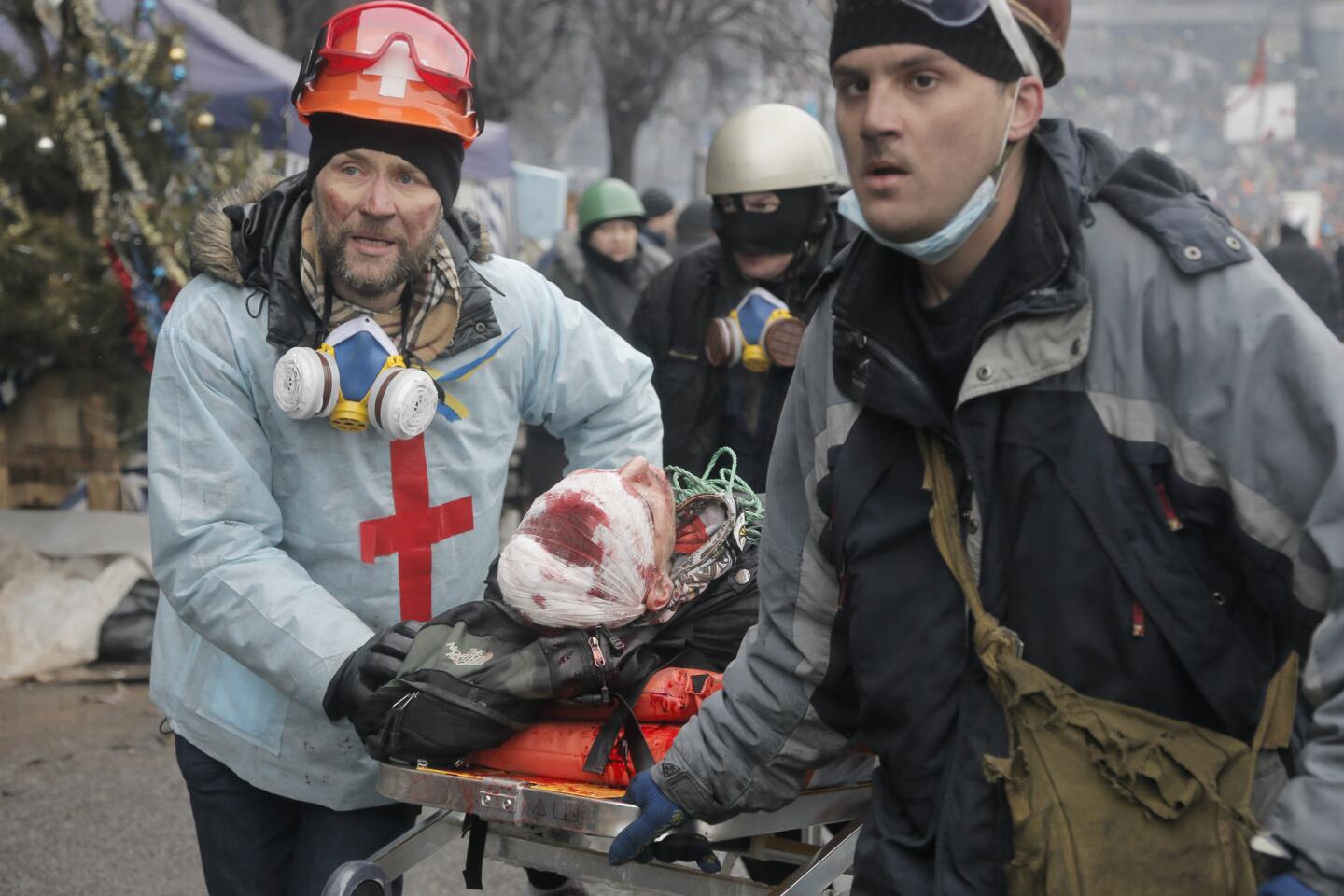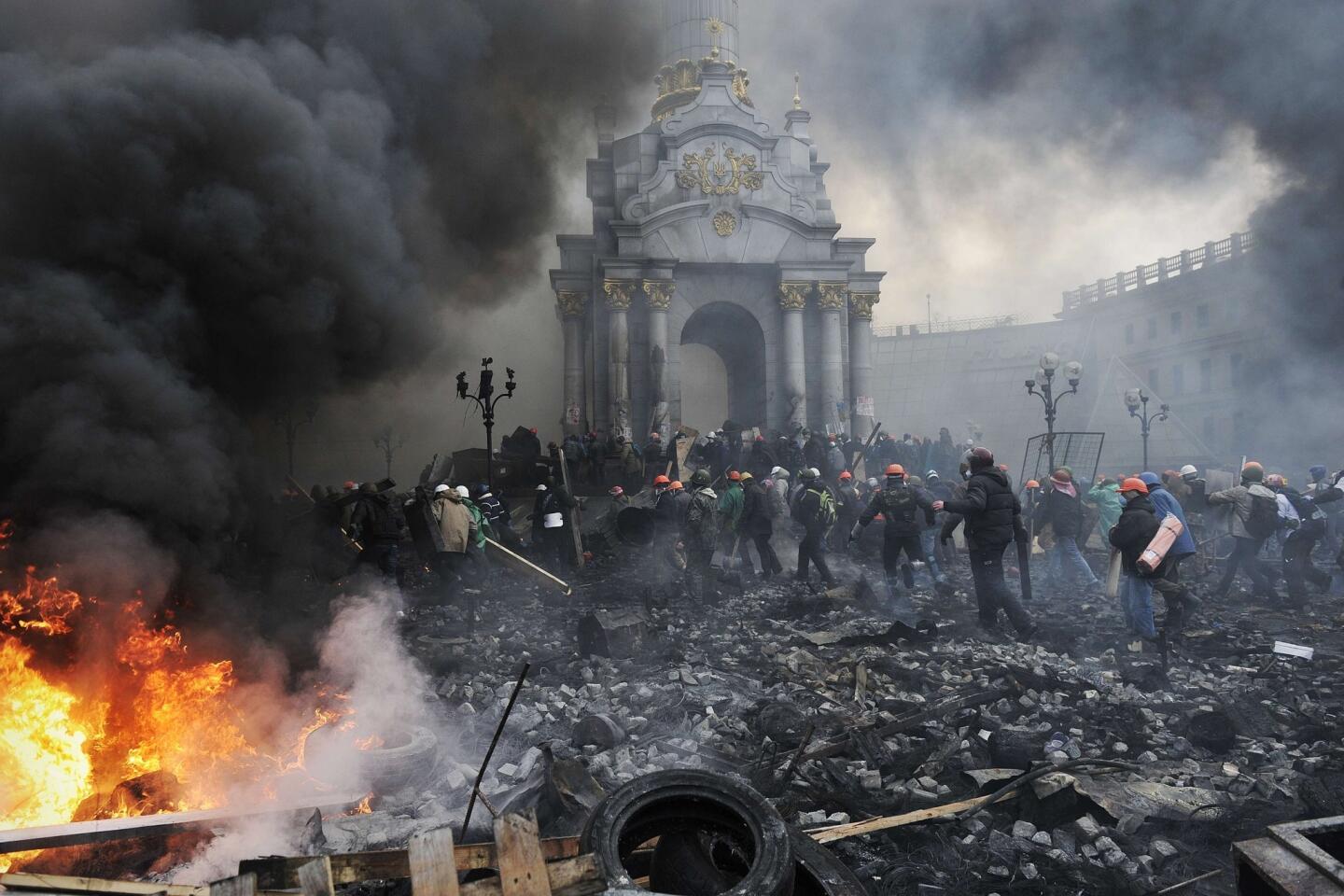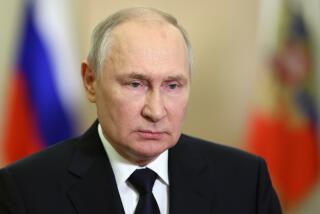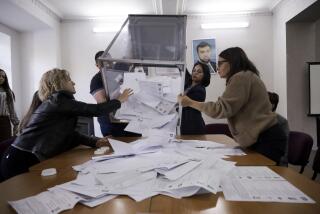New Crimea leaders move up referendum date
- Share via
KIEV, Ukraine -- Crimea’s new pro-Moscow premier, Sergei Aksenov, moved the date of the peninsula’s status referendum to March 30.
On Thursday, the Crimean parliament, which appointed Aksenov, had called for a referendum on May 25, the date also set for the urgent presidential election in Ukraine.
“In connection with a necessity we decided to speed up the holding of the referendum on the stauts of the Autonomous Republic of the Crimea,” Aksenov said Saturday in Simferopol at a new government session, the UNIAN information agency reported.
Earlier that day, Aksenov, head of the nationalist Russian Unity organization, appealed to Russian President Vladimir Putin “to render assistance in securing peace and tranquility on the territory of the Autonomous Republic of the Crimea,” UNIAN reported.
Mentioning some curious “disorders with use of firearms,” Aksenov assumed “temporary” command over Ukraine’s law enforcement structures, army and navy units stationed in the Crimea.
By law the police, army and navy are subordinated directly to Kiev.
Aksenov acknowledged Saturday that Russian troops were protecting key sites in Crimea.
“We have established cooperation with the Black Sea Fleet in protecting the important assets,” Aksenov said in televised remarks. “I am sure they can carry out tasks to protect public order.”
Earlier this week, Aksenov organized a pro-Russia rally in front of the parliament in Simferopol, at the same location and time when the Crimean Tatar community held their protest rally. A confrontation led to clashes resulting in two dead and 35 injured.
On Thursday, unidentified gunmen, believed to be Russian commandos, captured government buildings in Simferopol including the regional parliament, where shortly an urgent session was held behind closed doors. Lawmakers fired the previous government and appointed Aksenov head of the new one.
In the last regional legislature elections in 2010, the Russian nationalists headed by Aksenov gained only three seats in the 100-seat regional parliament.
On Saturday, Aksenov also made an unprecedented and illegitimate move by assuming personal control over all law enforcement structures, army and navy units stationed in Ukraine. Those who would obey the new order and serve under his command should quit the service, Aksenov said.
Heavily armed Russian military patrolling streets in the center of Simferopol still surround the government building and city airport, free-lance journalist Alexander Mnakatsanyan said
“At about 12:30 [p.m.] a group of masked gunmen broke the the door of Ukraine customs section in the aiport and rushed in,” Mnakatsanyan said in a phone interview from Simferopol. “There were screams and shouts inside and sounds of commotion but no shooting. Ukraine police stationed inside the airport building didn’t interfere.”
The interim government in Kiev said they won’t fall for provocations and compared the presence of Russian troops in Ukraine with Russian troops invading South Ossetia during the brief war between Russia and Georgia in 2008. Two Georgian breakaway republics – South Ossetia and Ablhazia – assisted by the Russian military then declared independence, which was immediately recognized by Russia and a handful of other countries.
“The presence of the Russian troops [in the Crimea] is a provocation, and we demand that the Russian military immediately return to their bases of regular deployment,” Ukraine Prime Minister Arseny Yatsenyuk said Saturday in televised remarks opening an urgent session of the new Cabinet.
“Russian partners, stop provoking a civil confrontation in Ukraine and observe the basic agreements between Ukraine and the Russian Federation.”
Ukraine will do its best to preserve its territorial integrity, Yatsenyuk said.
Russia is acting cynically and ruthlessly but it still tries to shroud its actions in some semblance of legitimacy, political scientist Igor Popov said.
“Now it is becoming clear they needed to rescue [ousted President Victor] Yanukovich and have him under Moscow’s protection to attach legitimacy to their actions,” Popov, head of the Politika Analytical Center, a Kiev-based think tank, said in an interview with The Times.
“The Kremlin keeps saying that Yanukovich is still Ukraine’s legitimate president and as such he endorsed the setting up of Moscow’s puppet government in the Crimea, which in turn begs Moscow for assistance”.
The new Crimean government is trying to hold a referendum on the status of the peninsula as soon as possible while Russian troops are still there and Kiev and Washington can’t figure out how to get them out.
More to Read
Sign up for Essential California
The most important California stories and recommendations in your inbox every morning.
You may occasionally receive promotional content from the Los Angeles Times.
